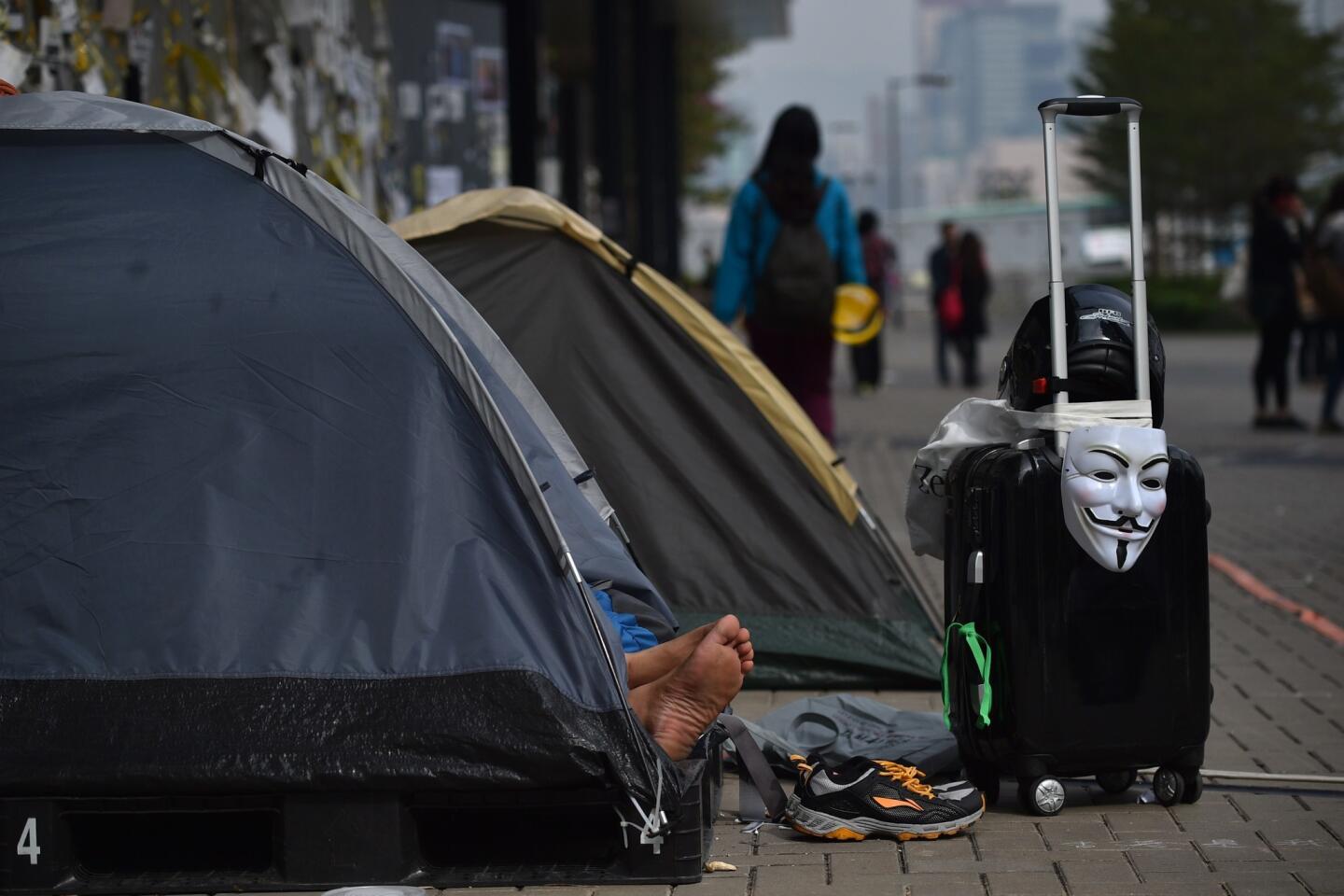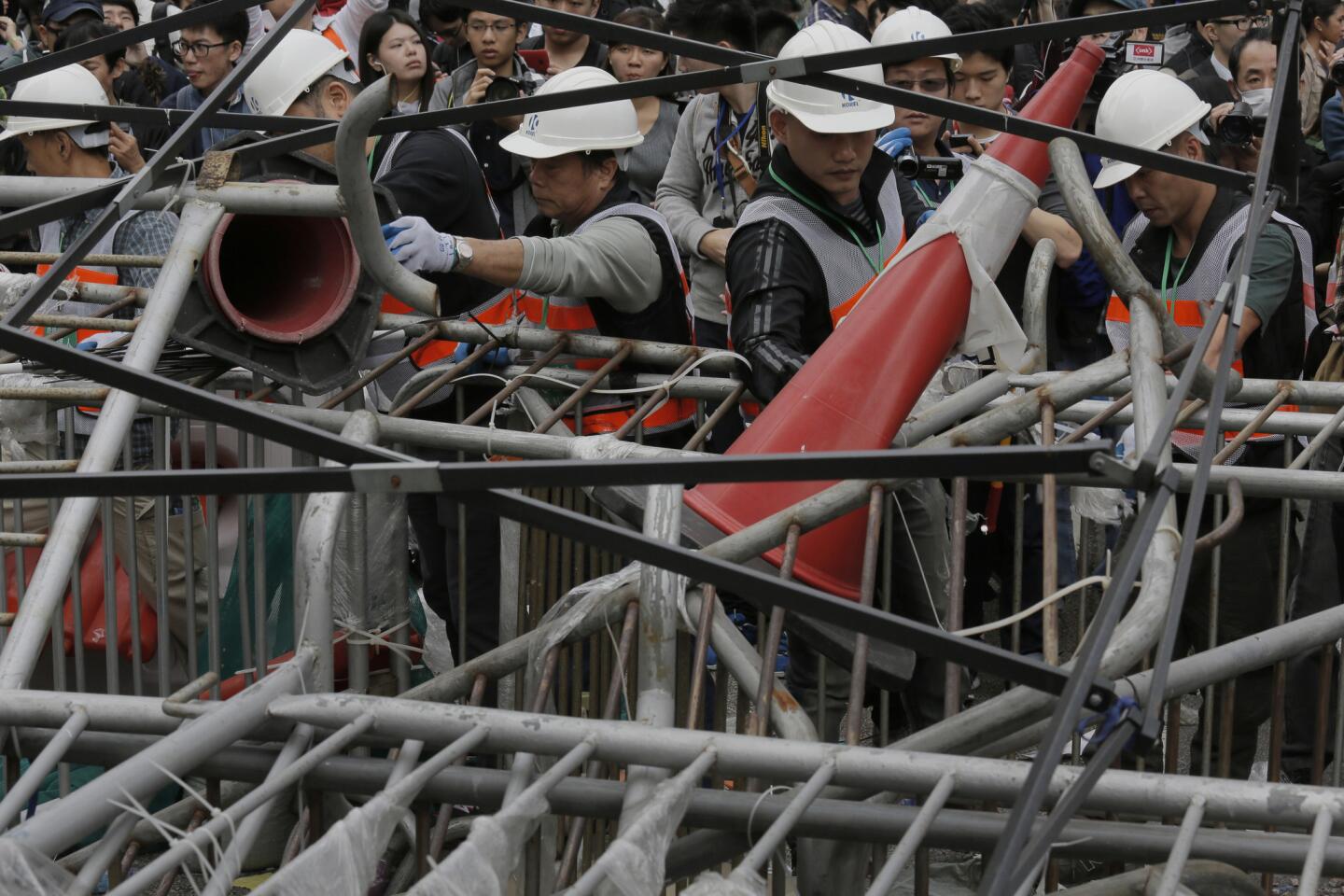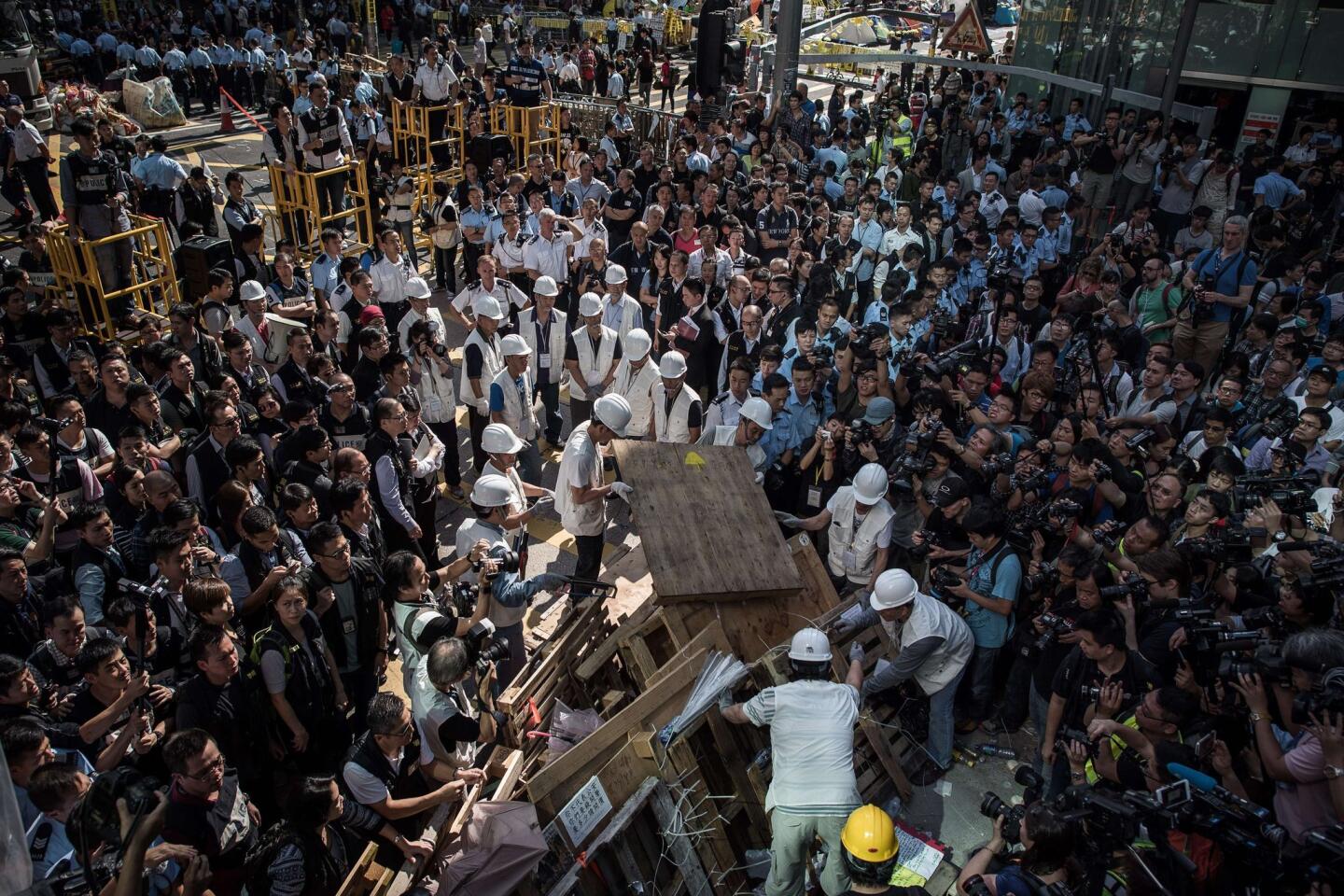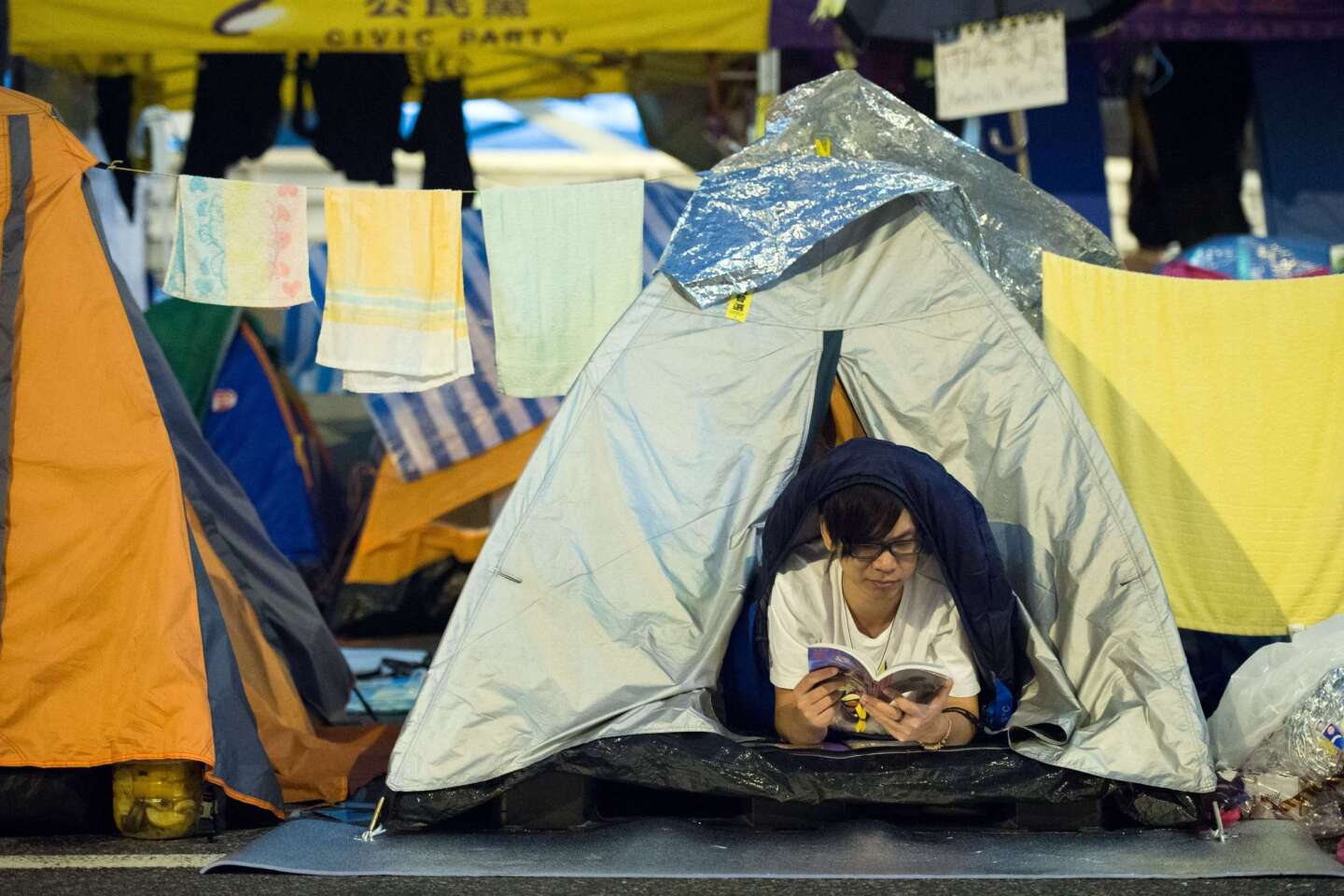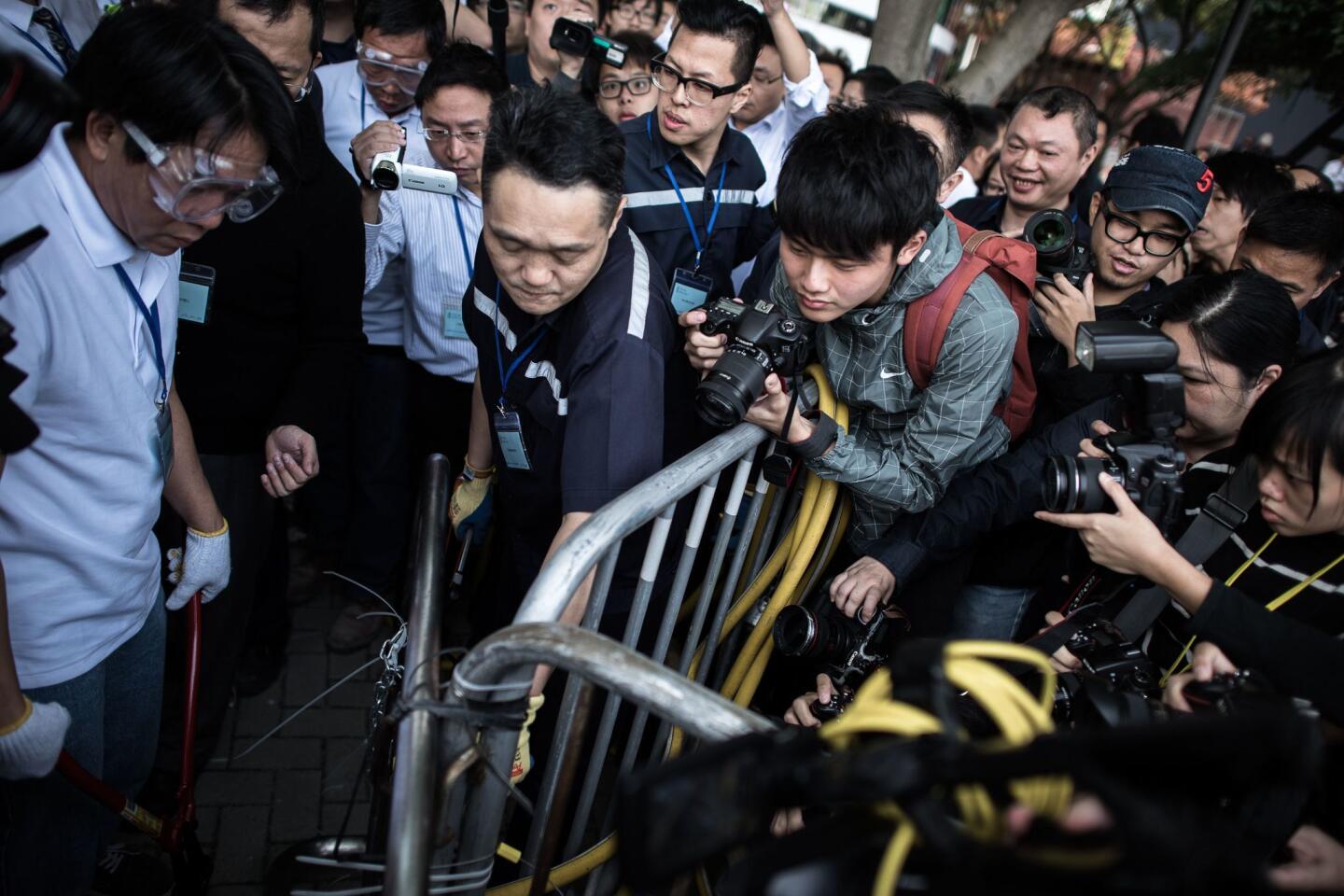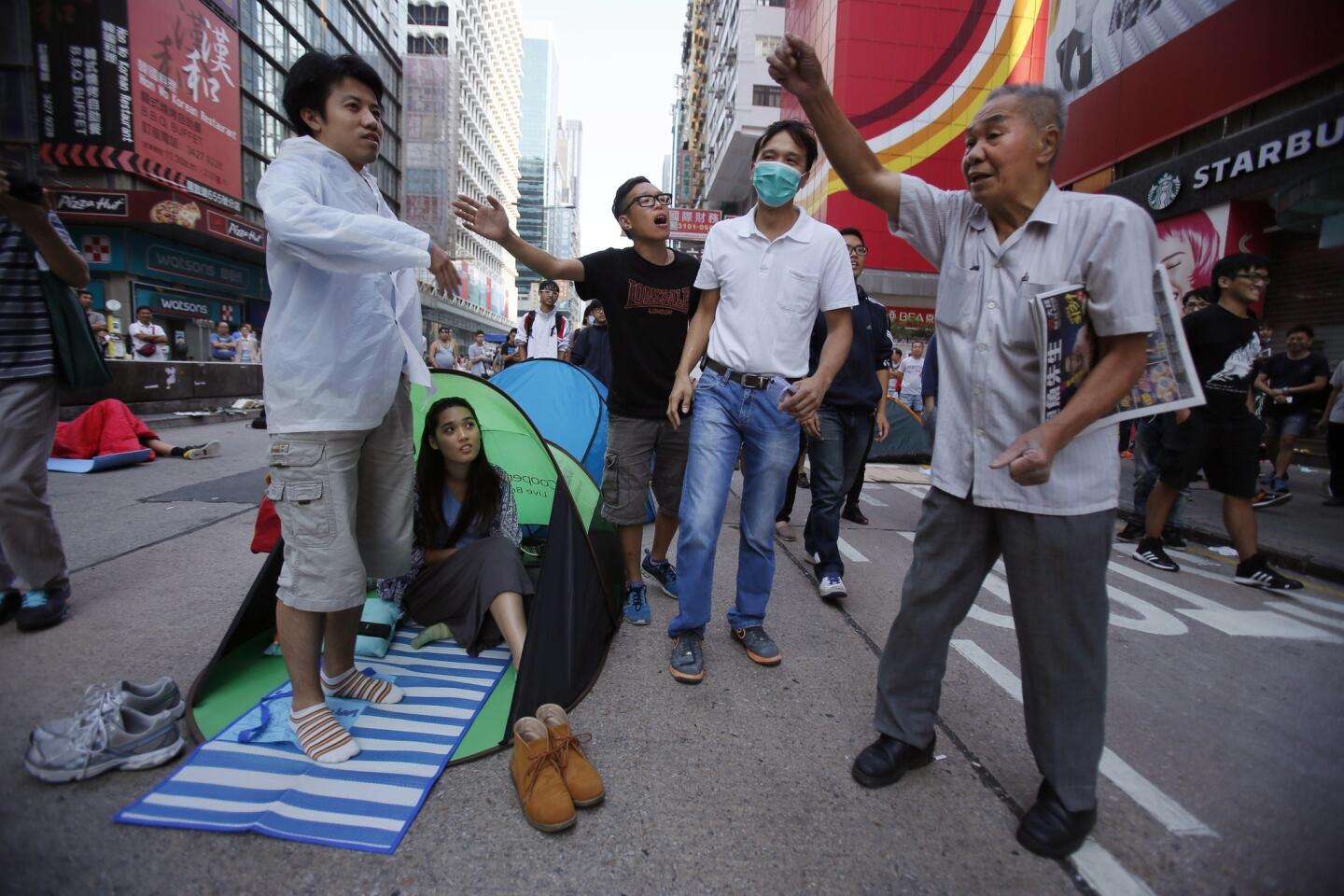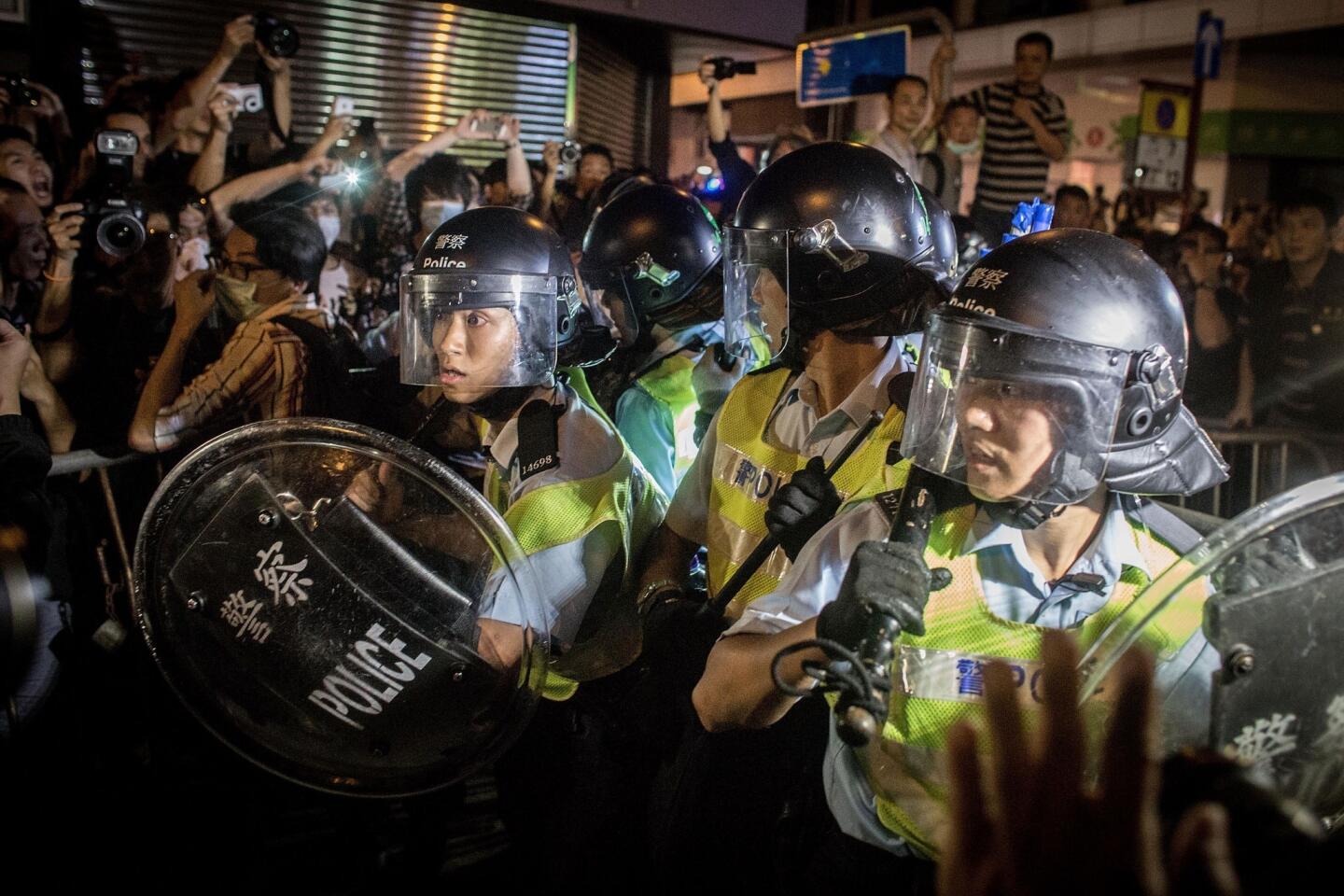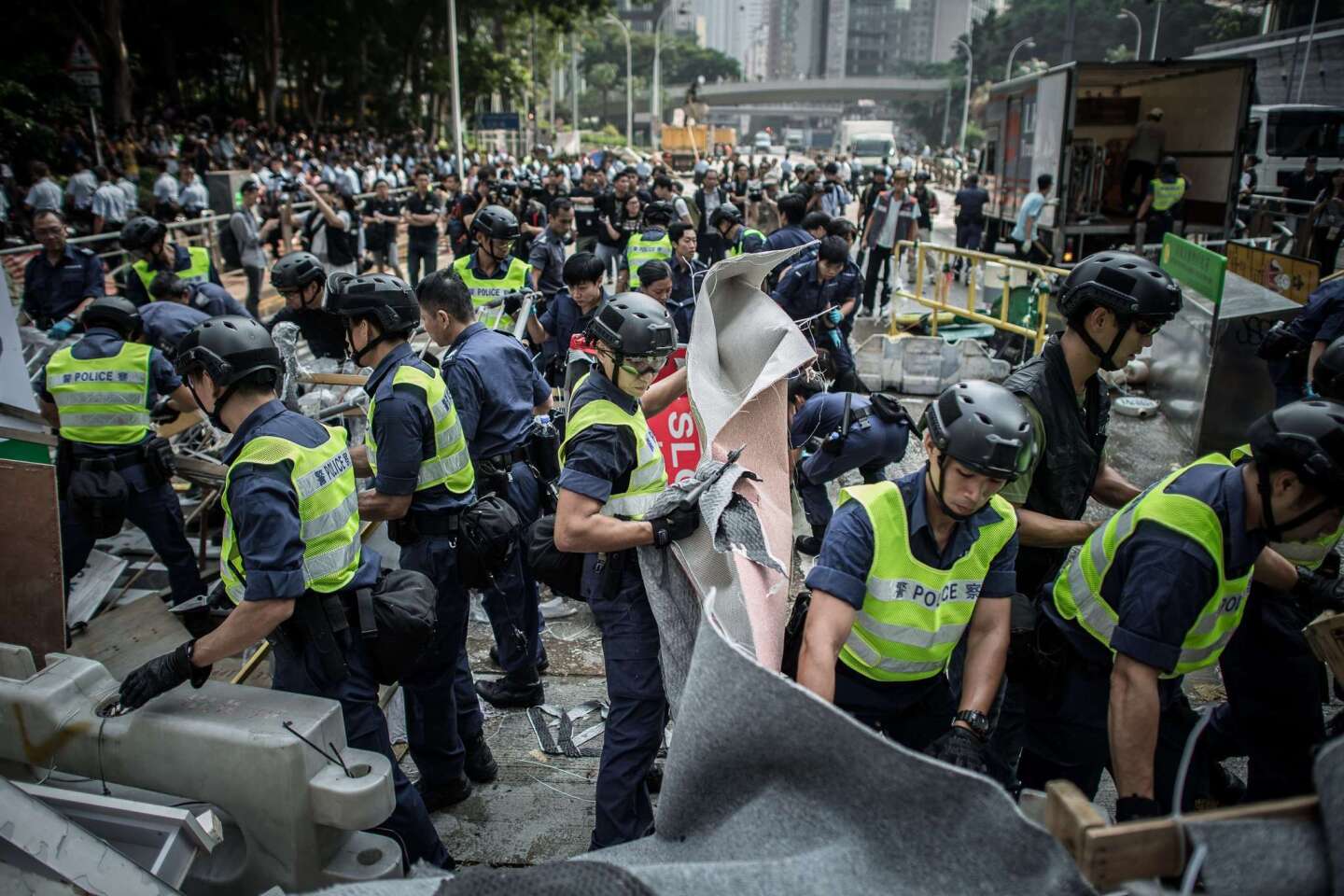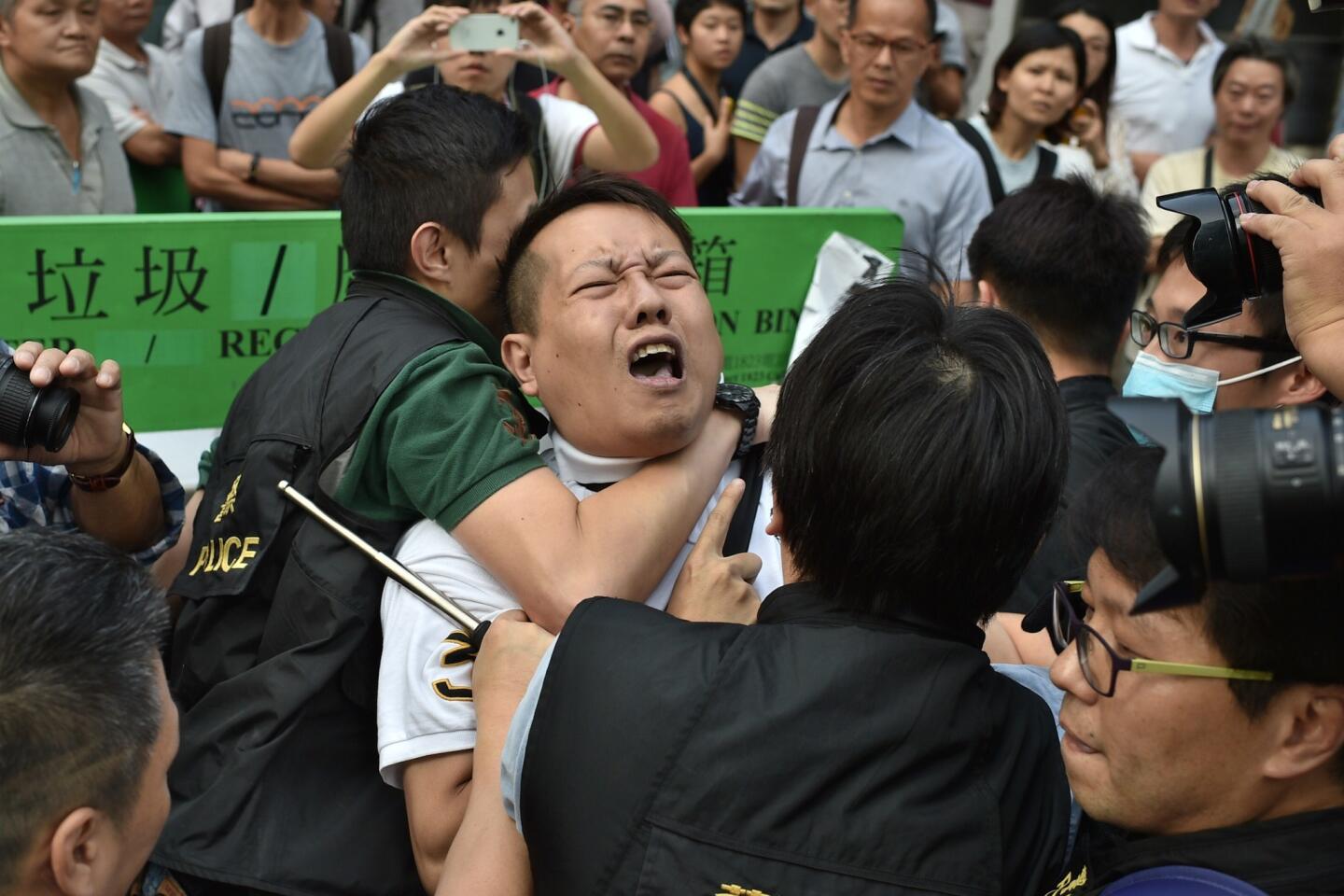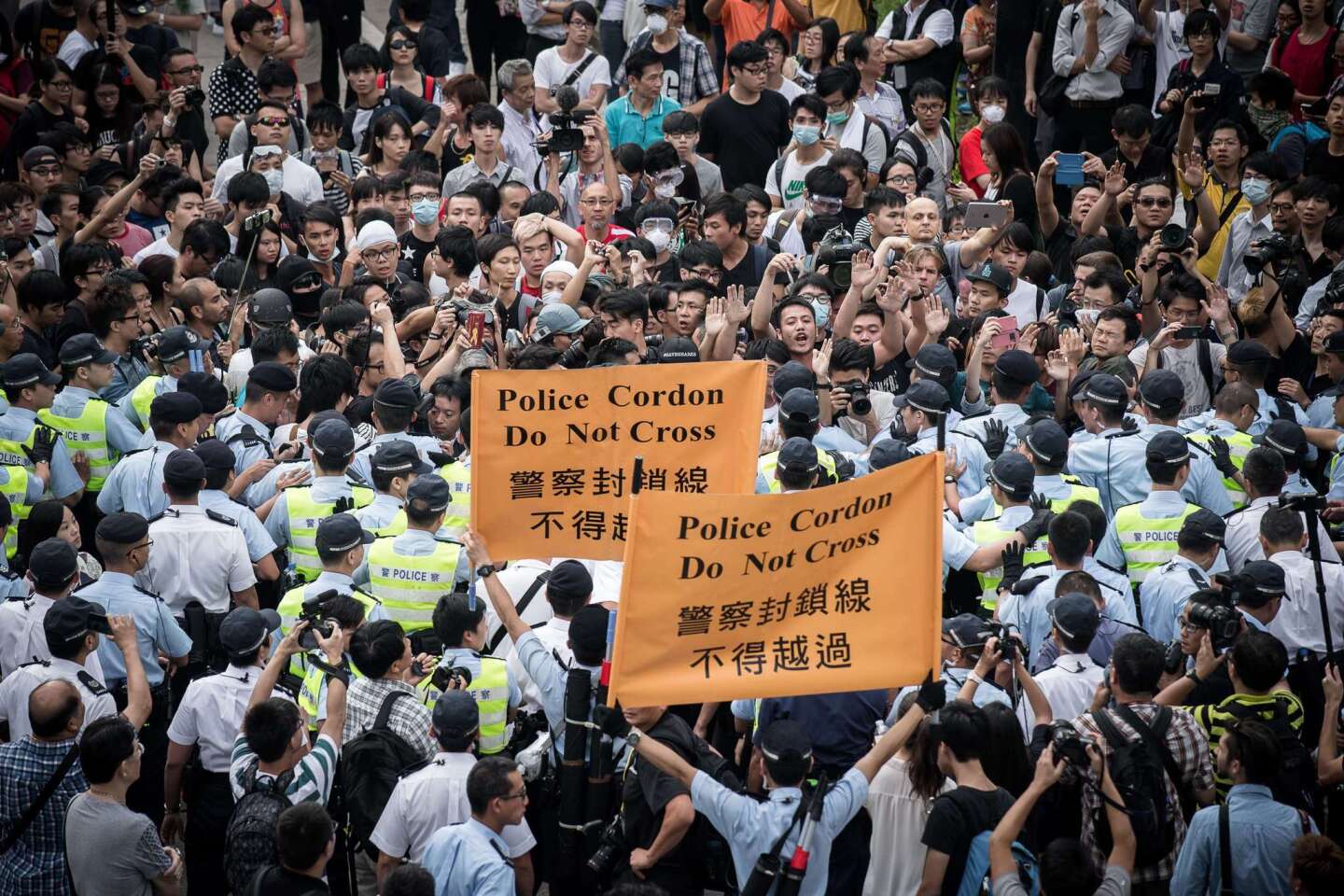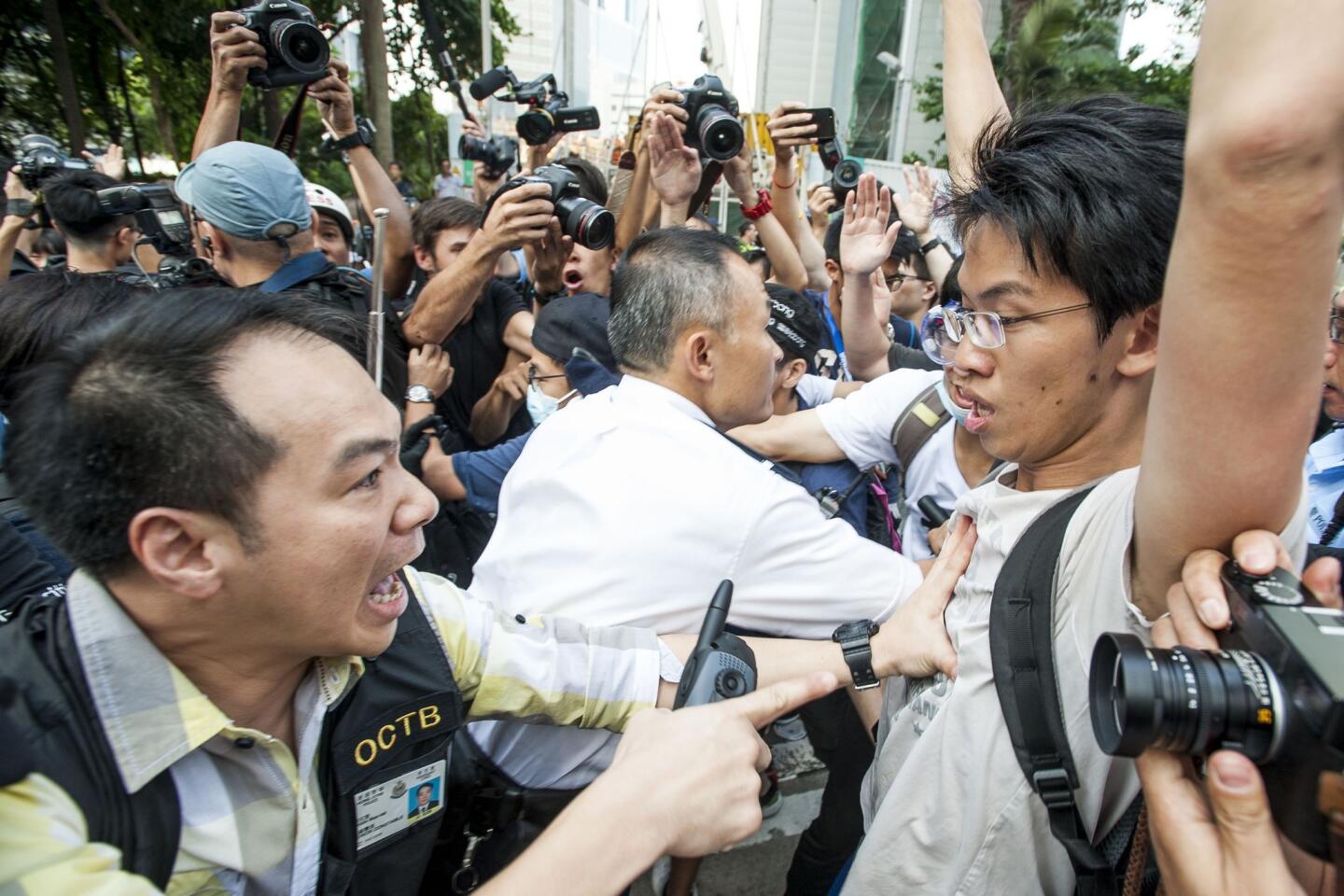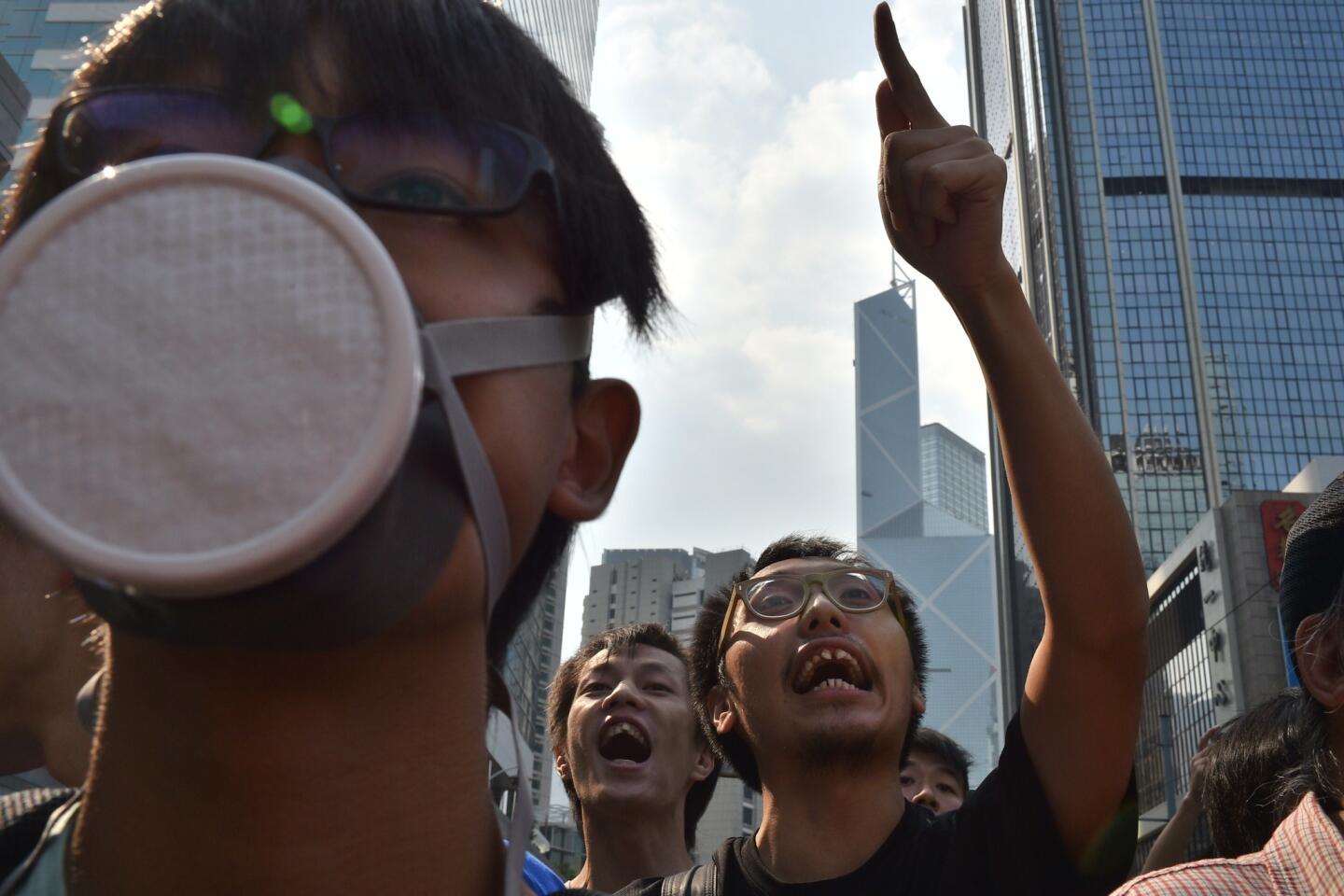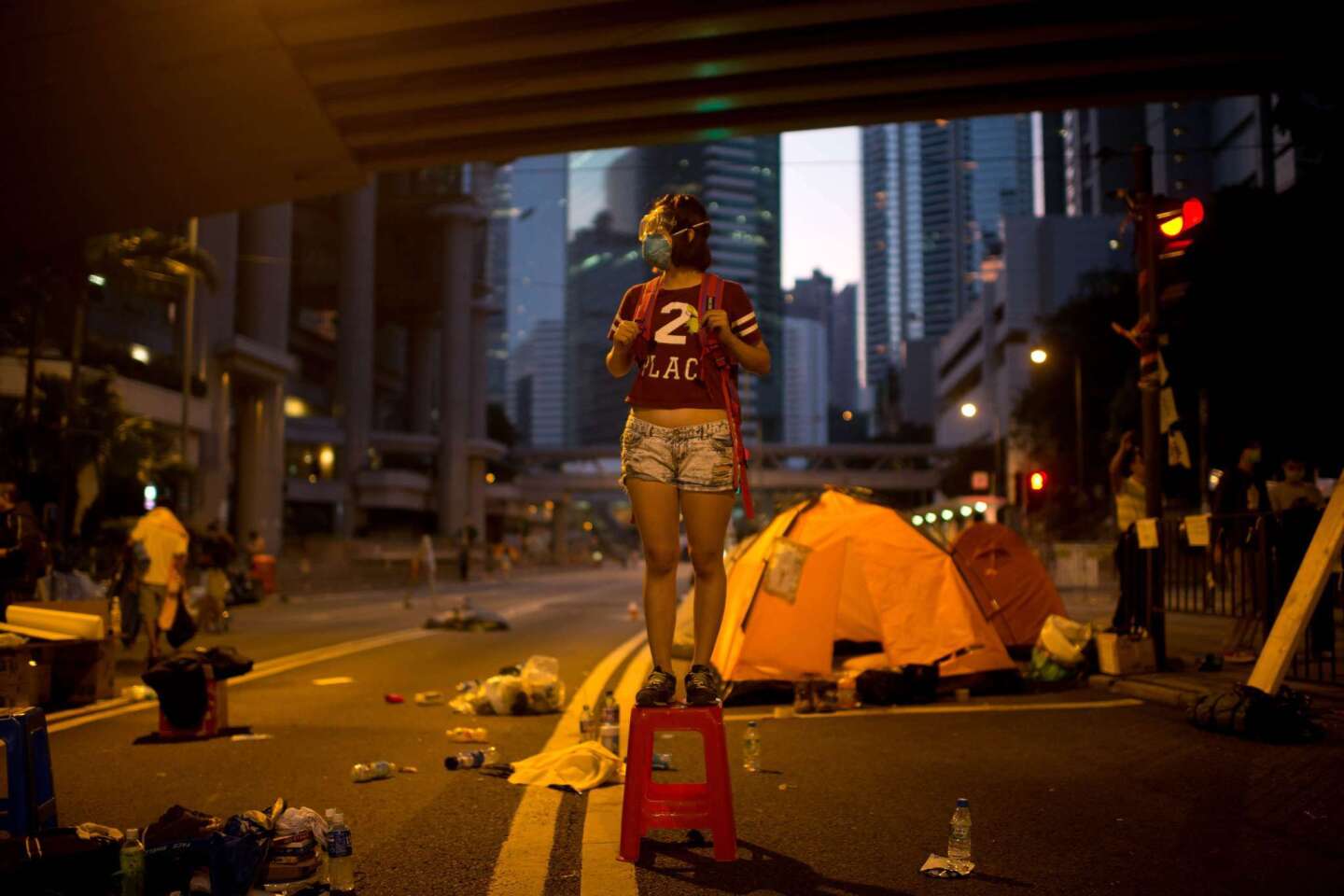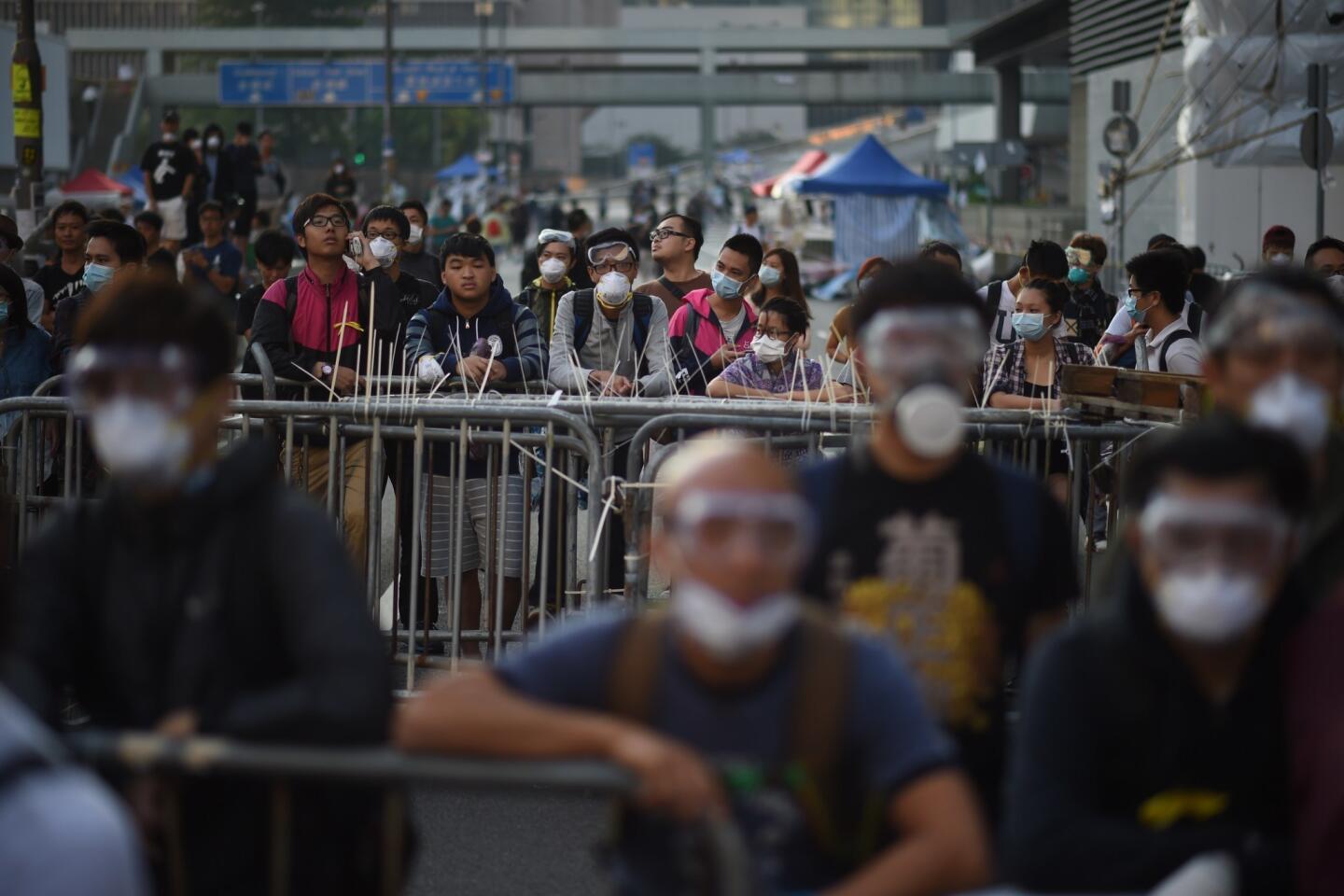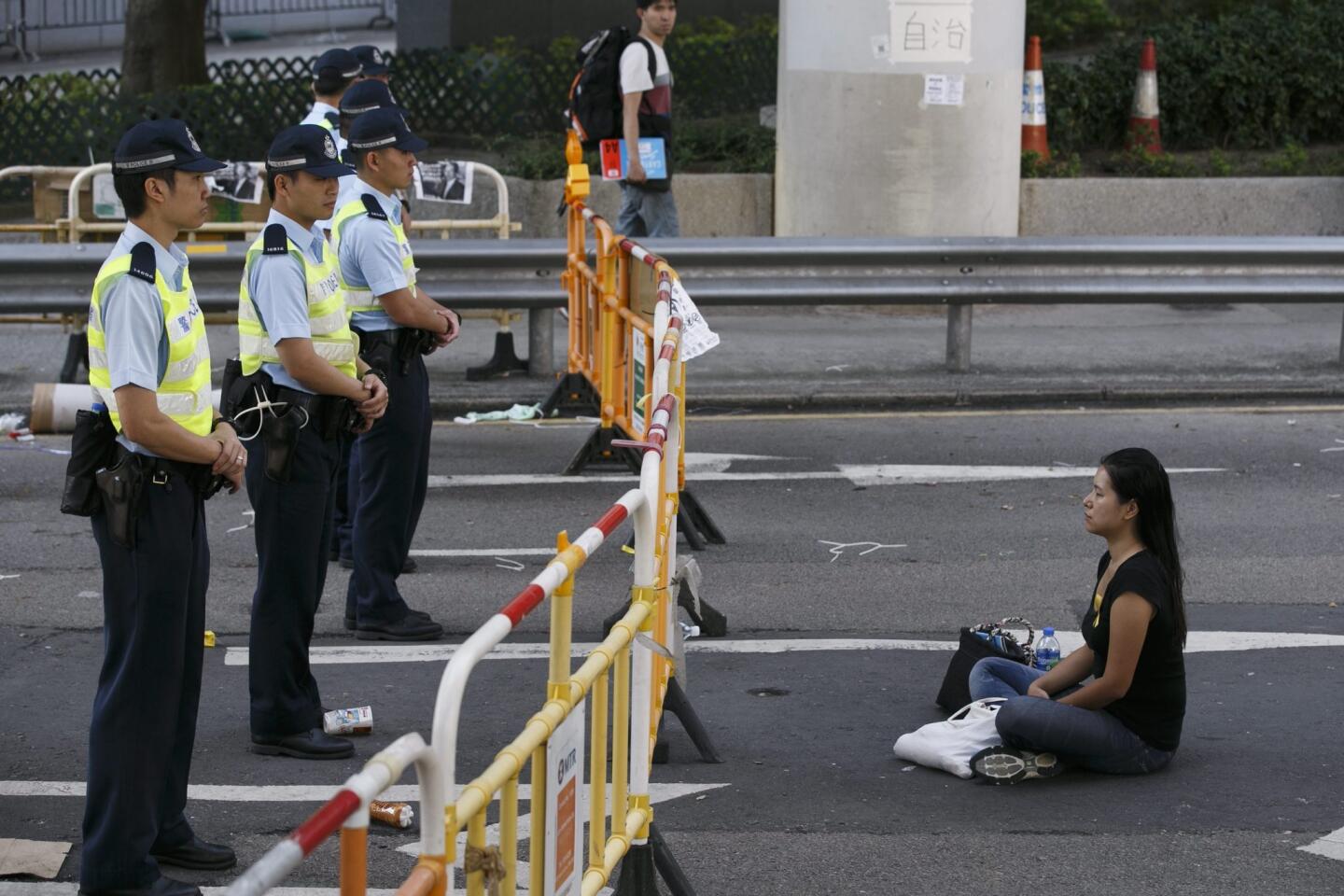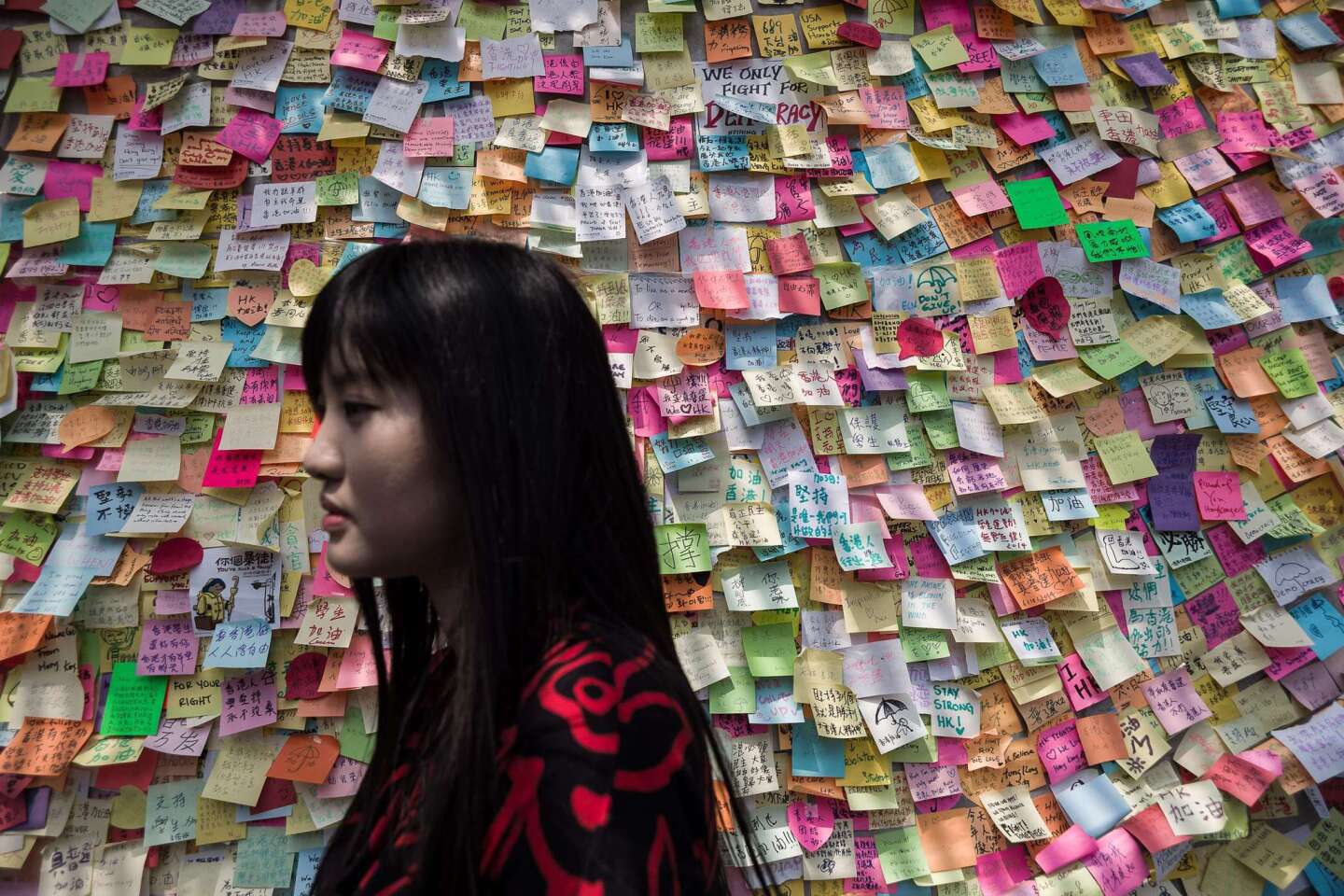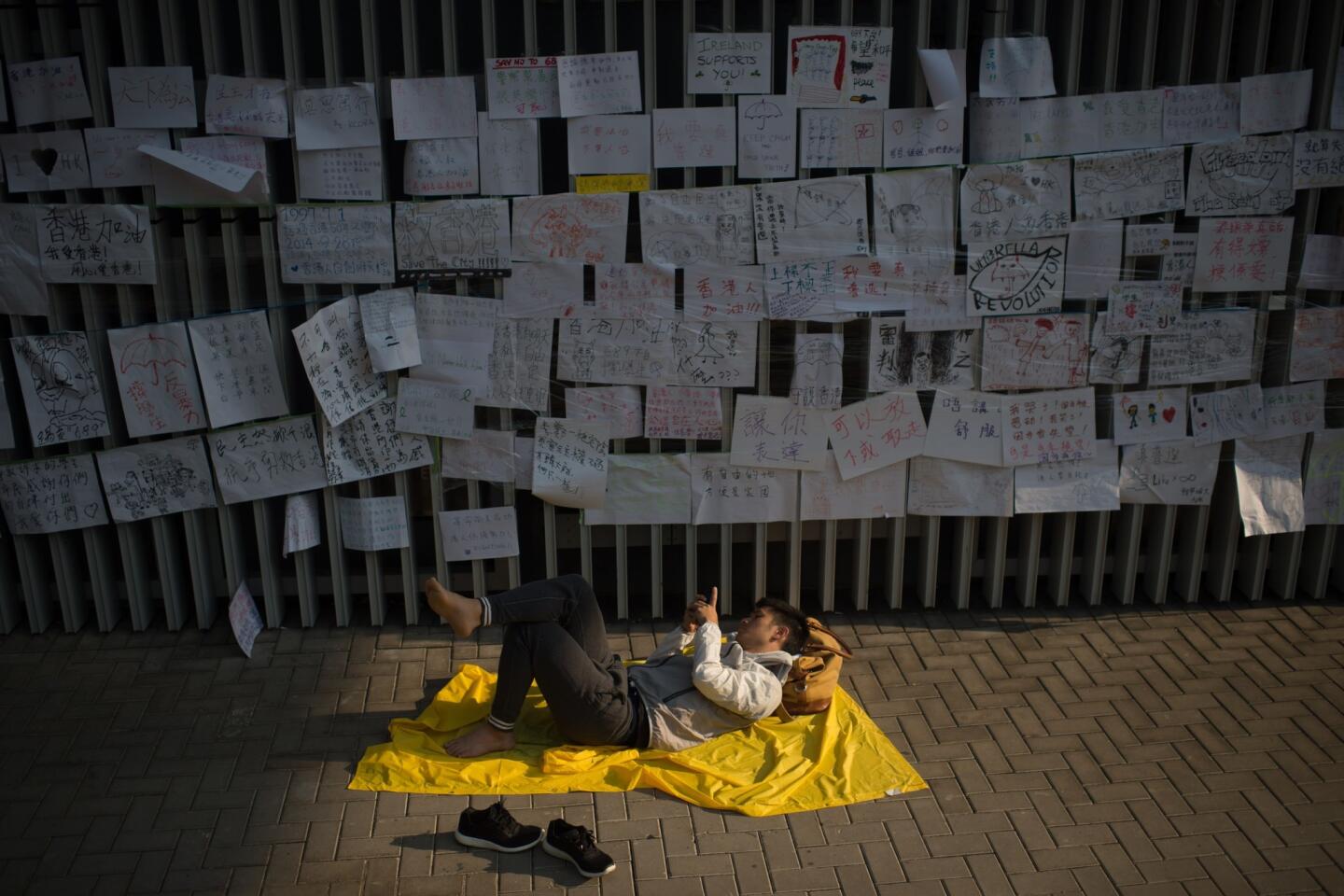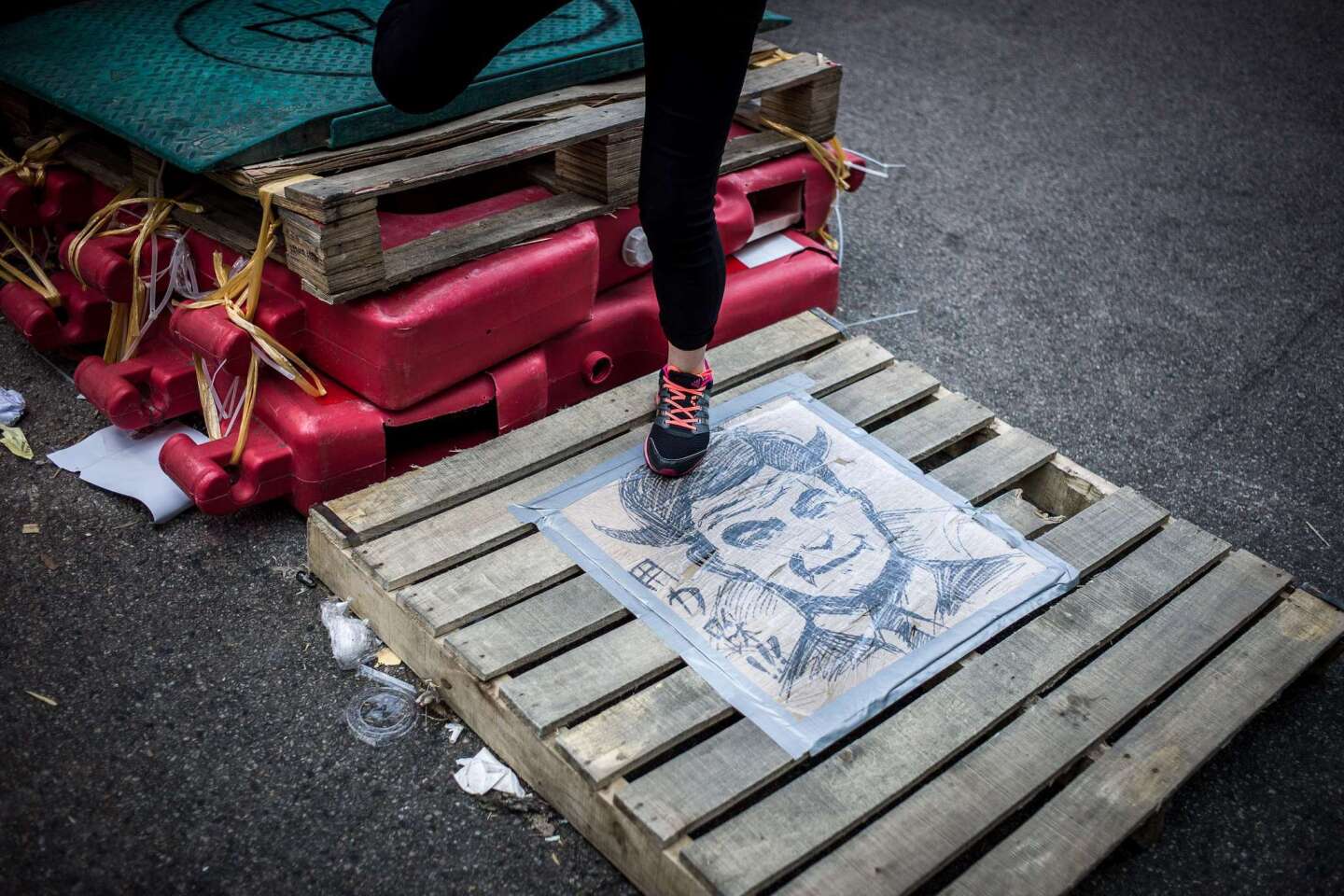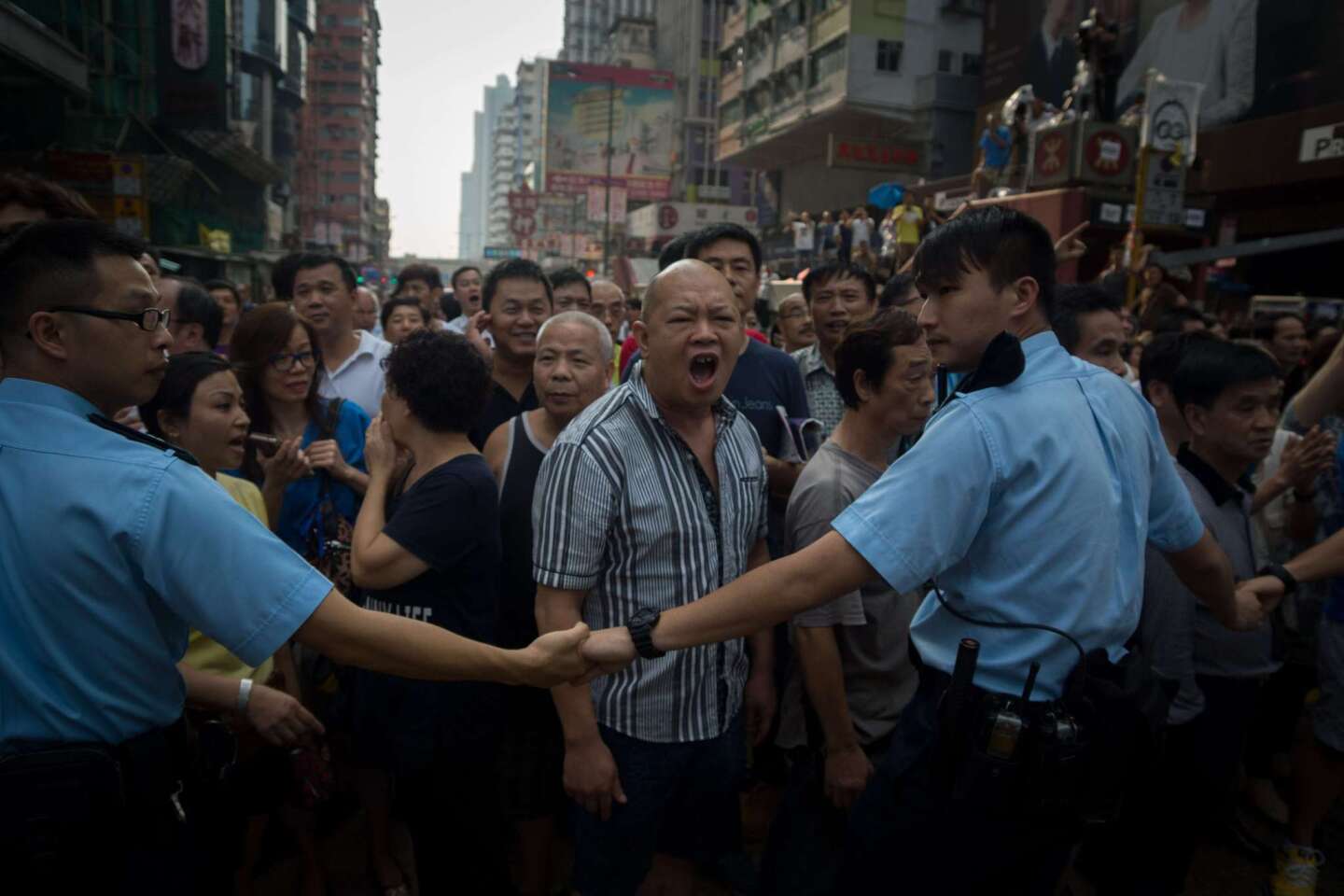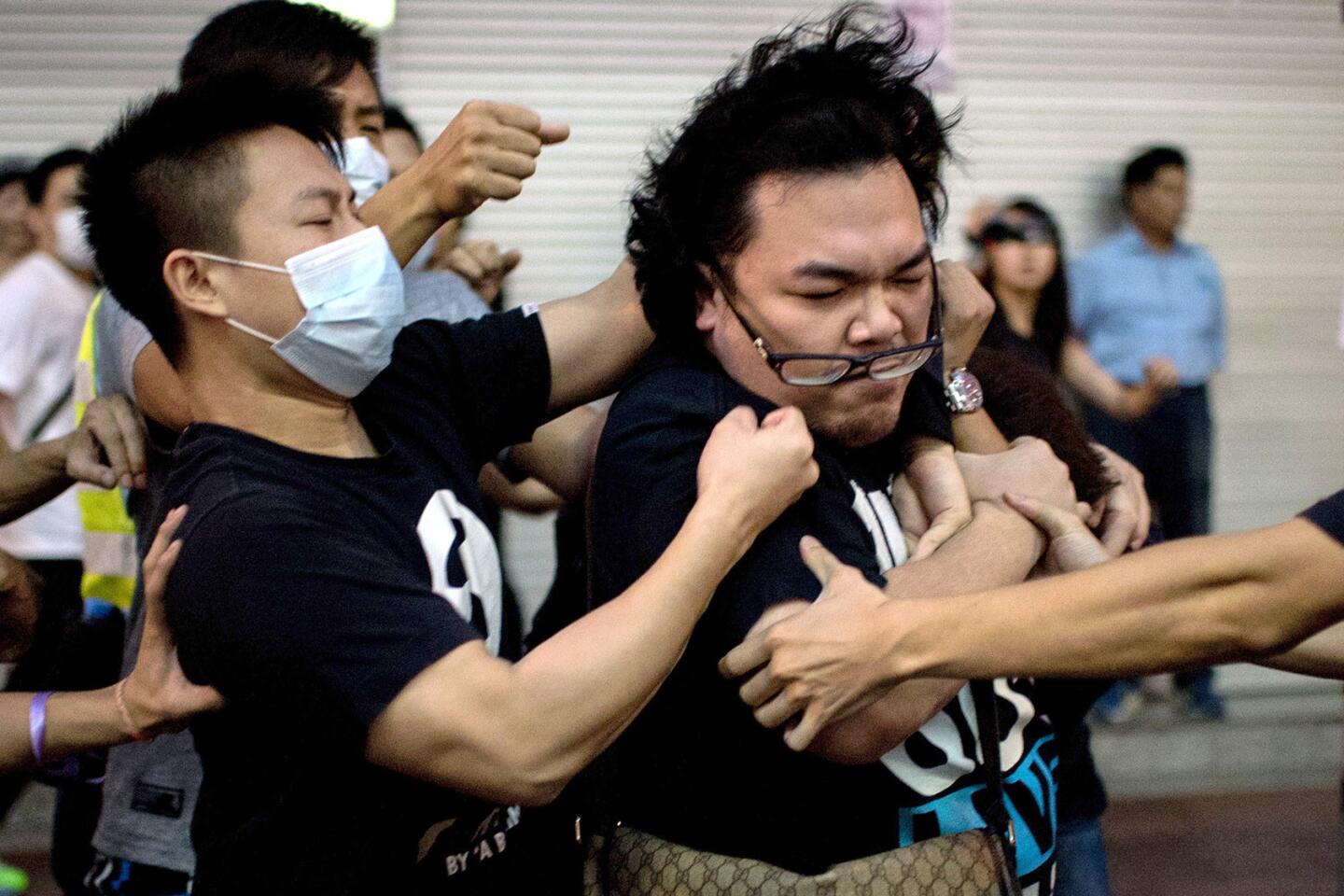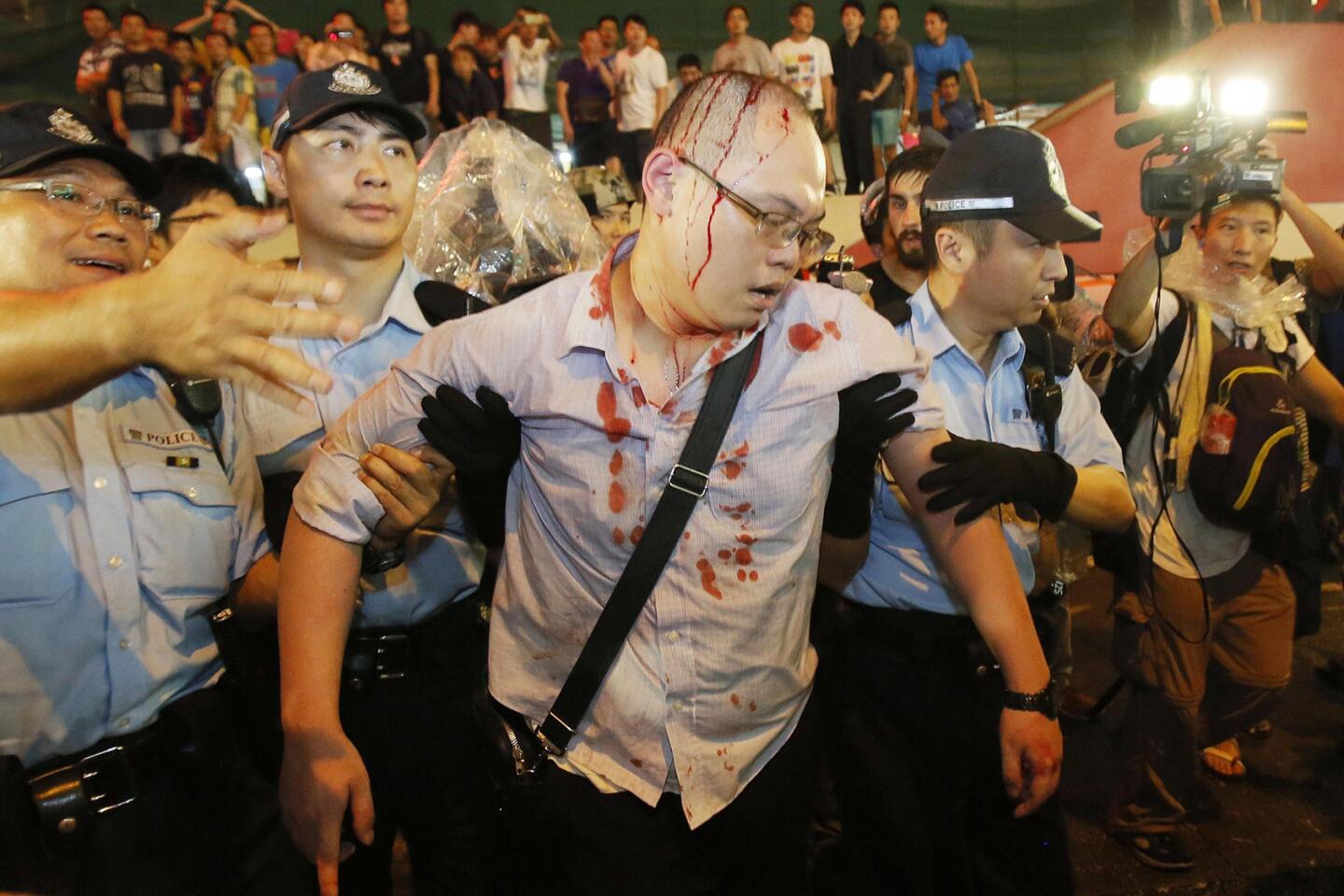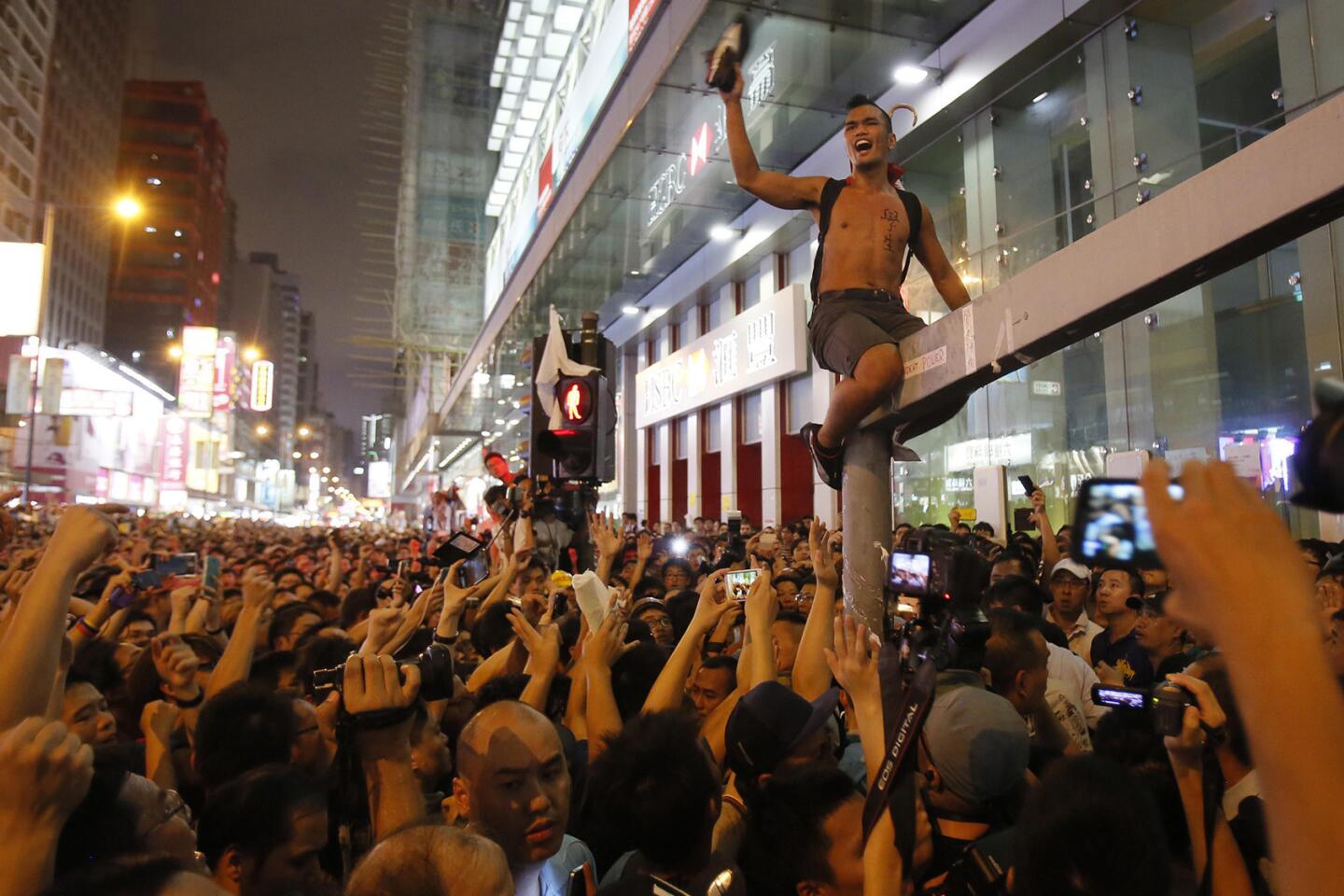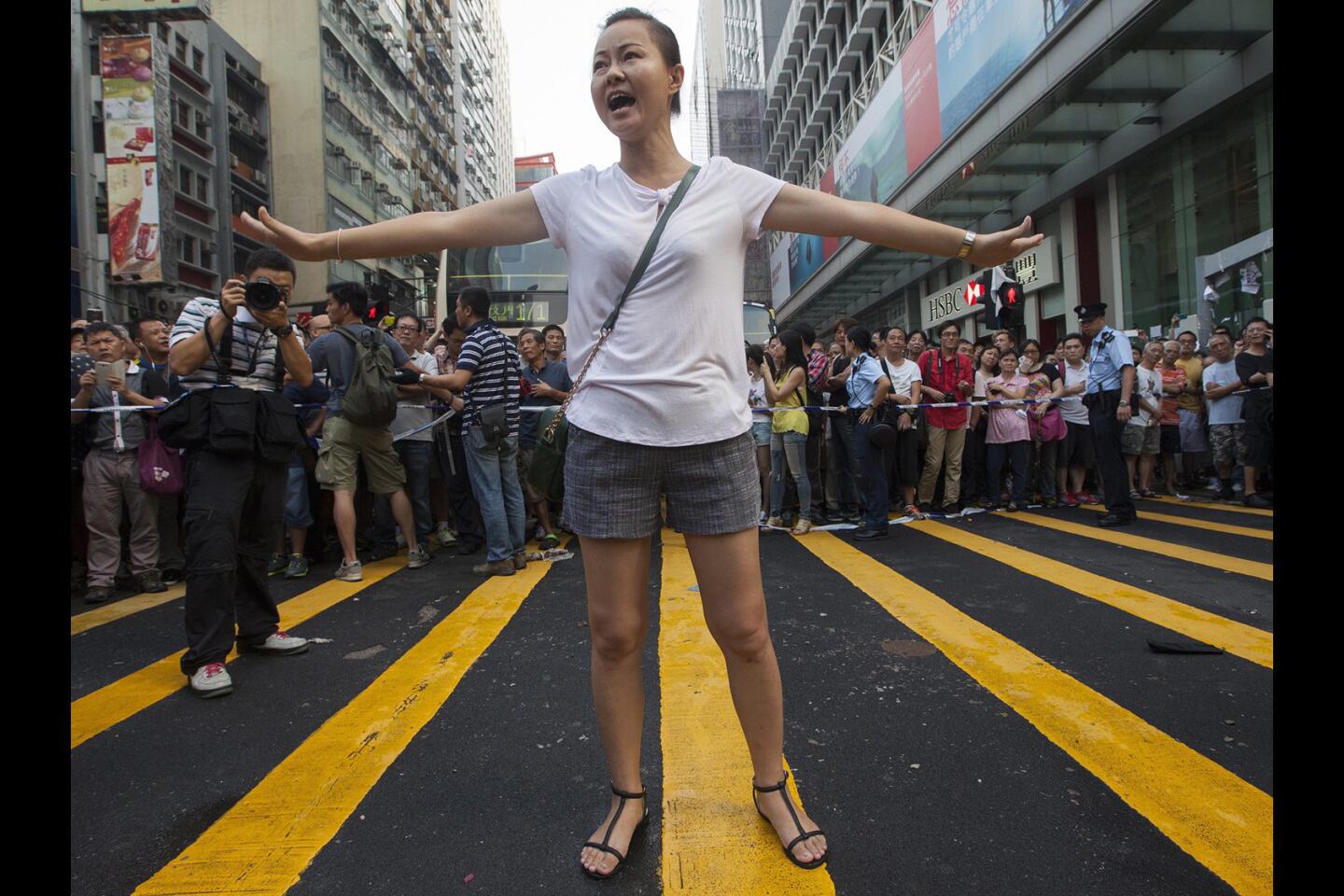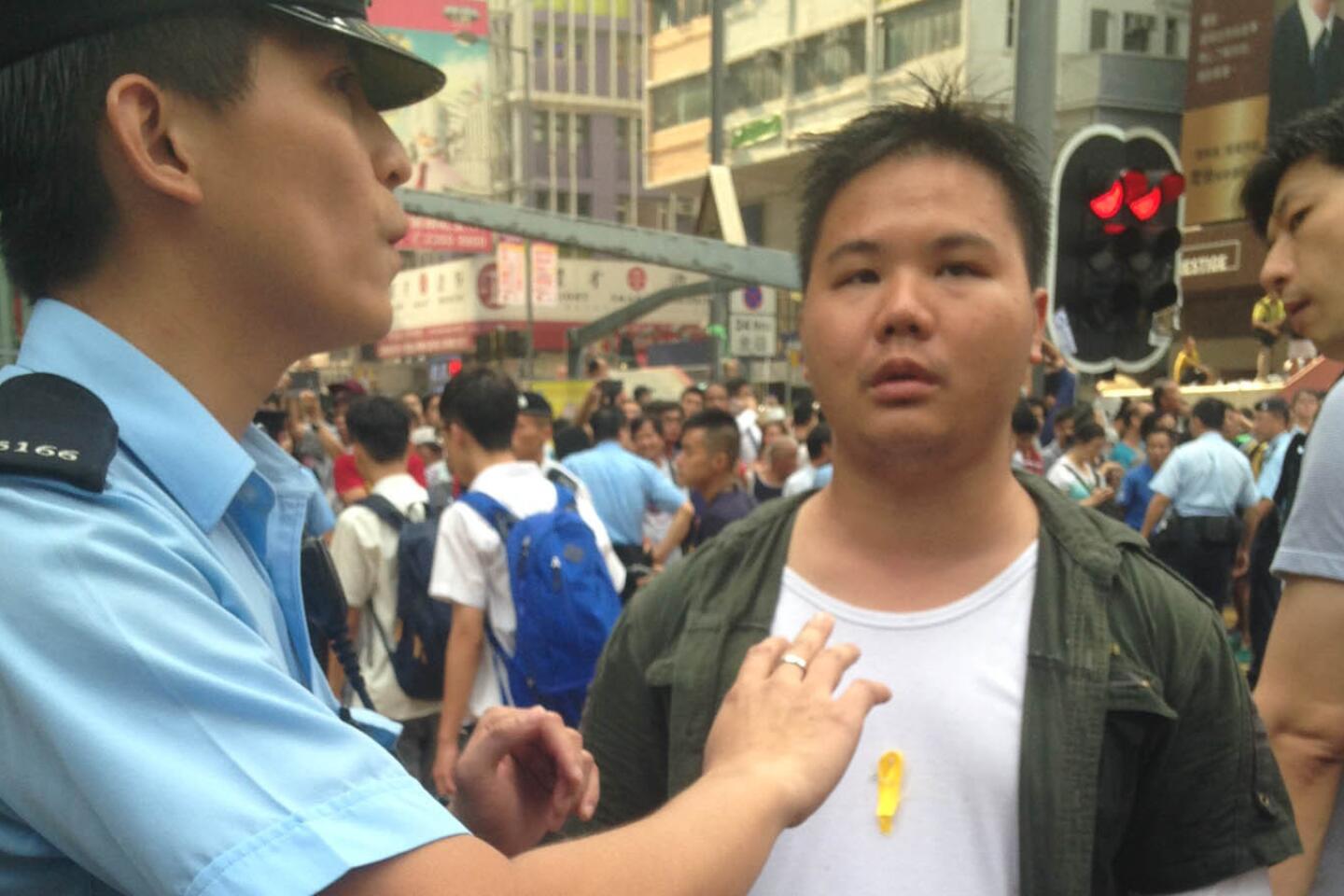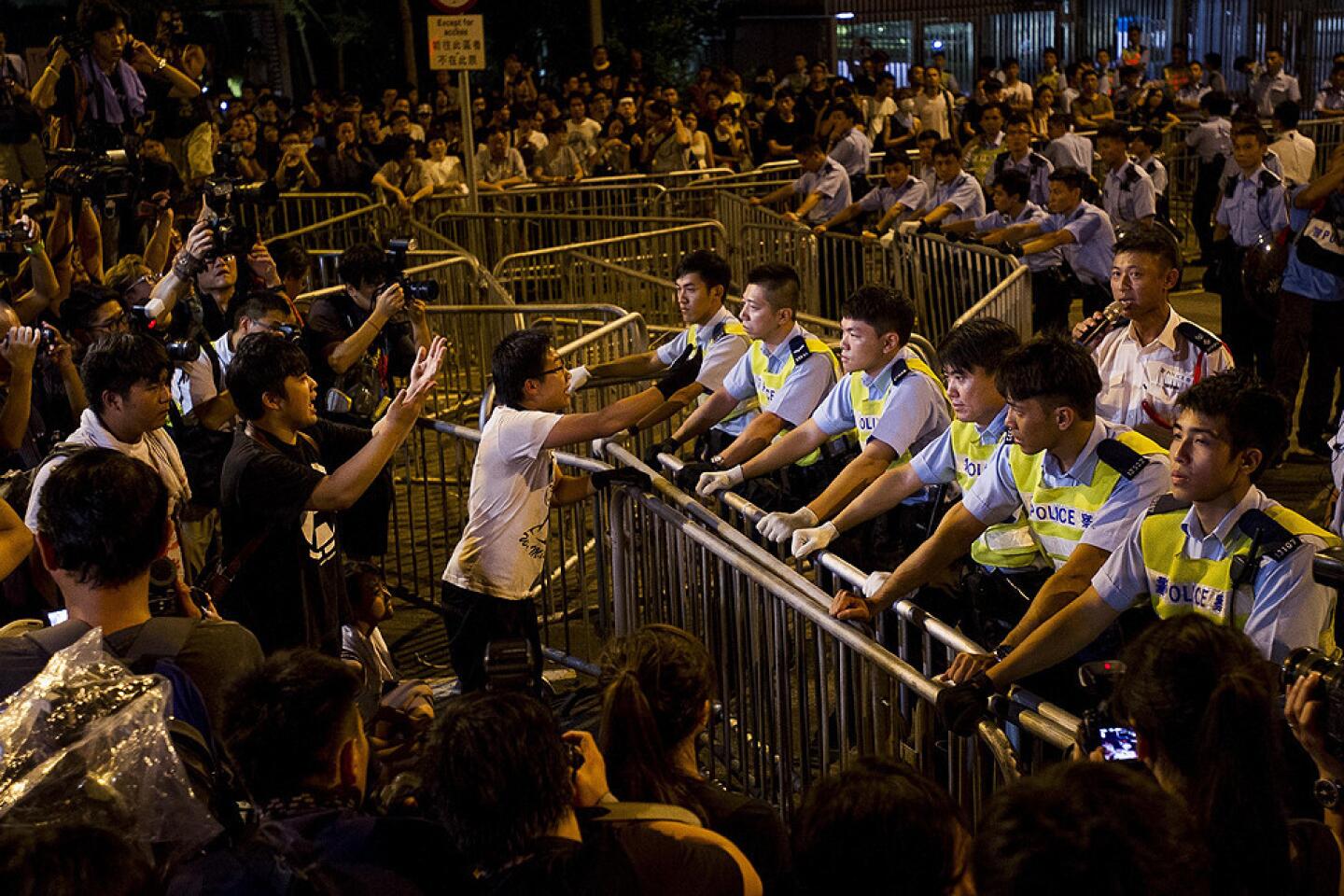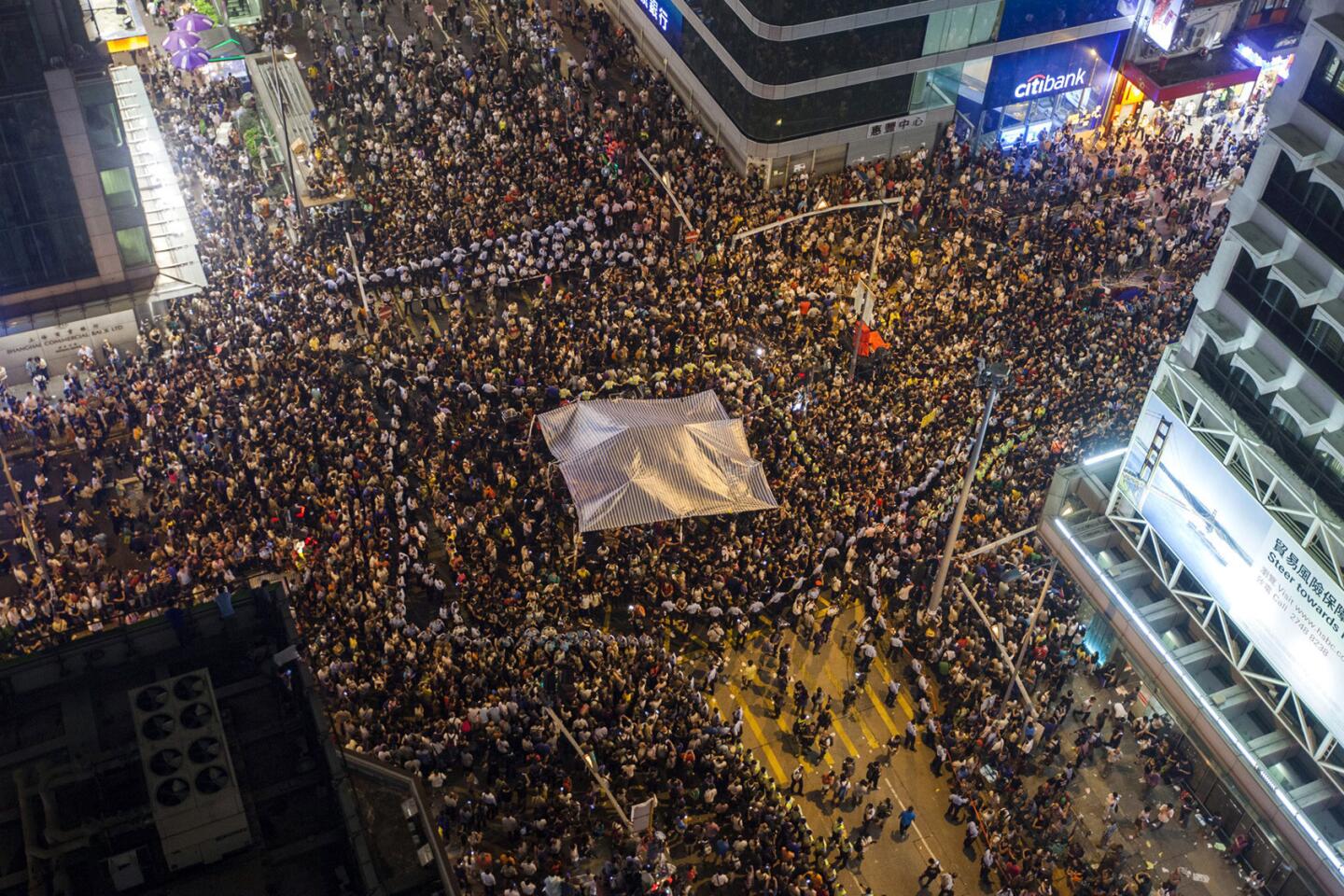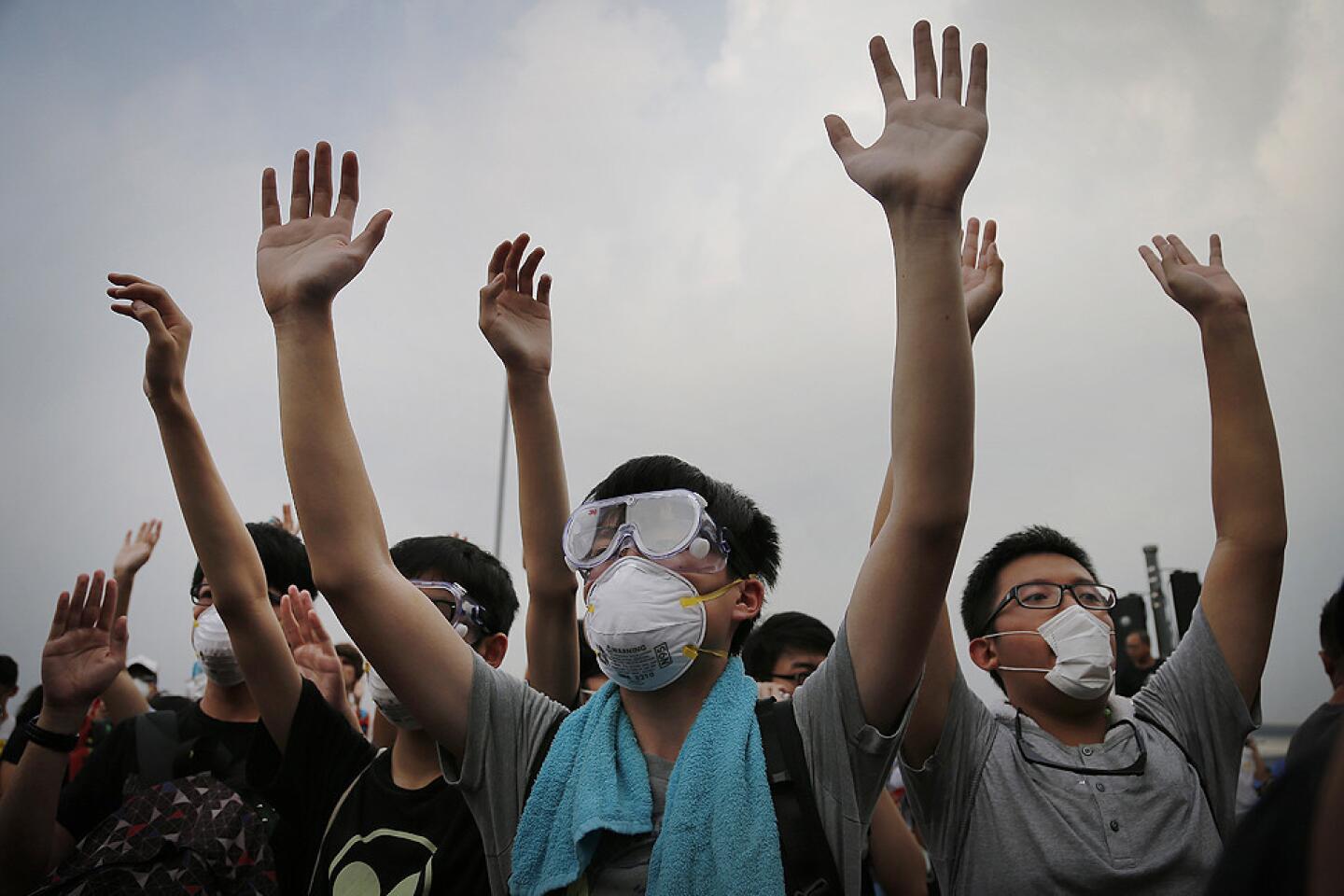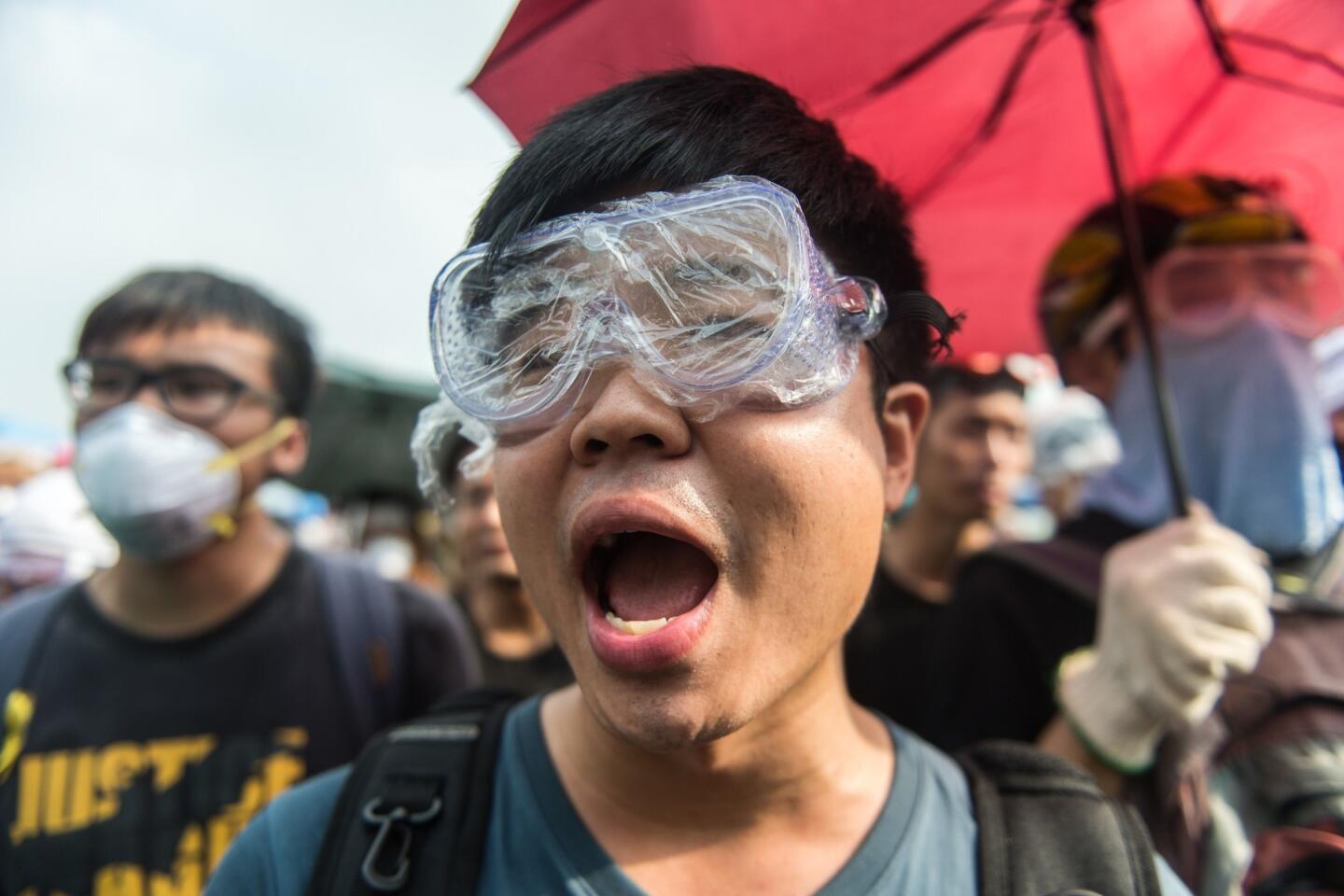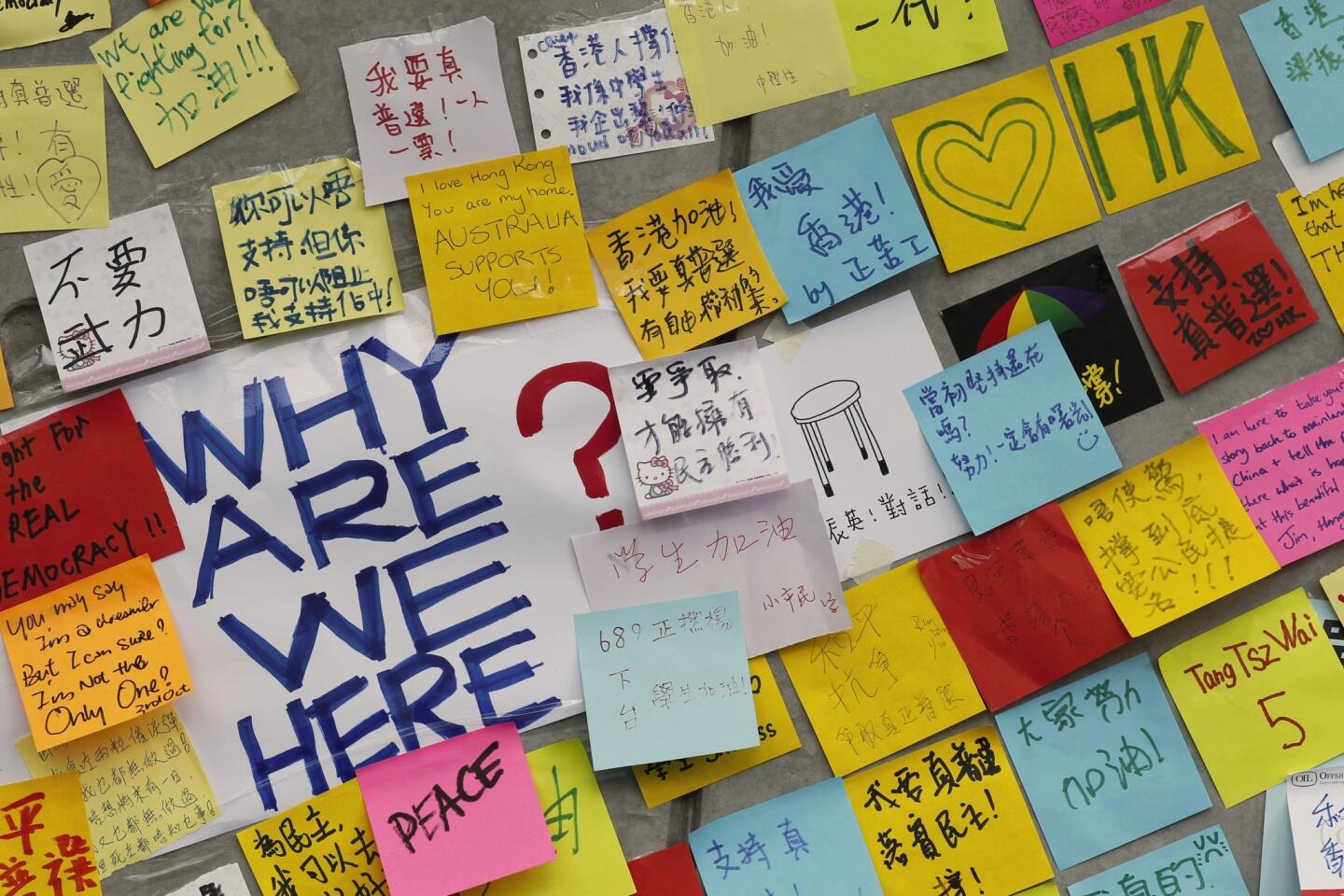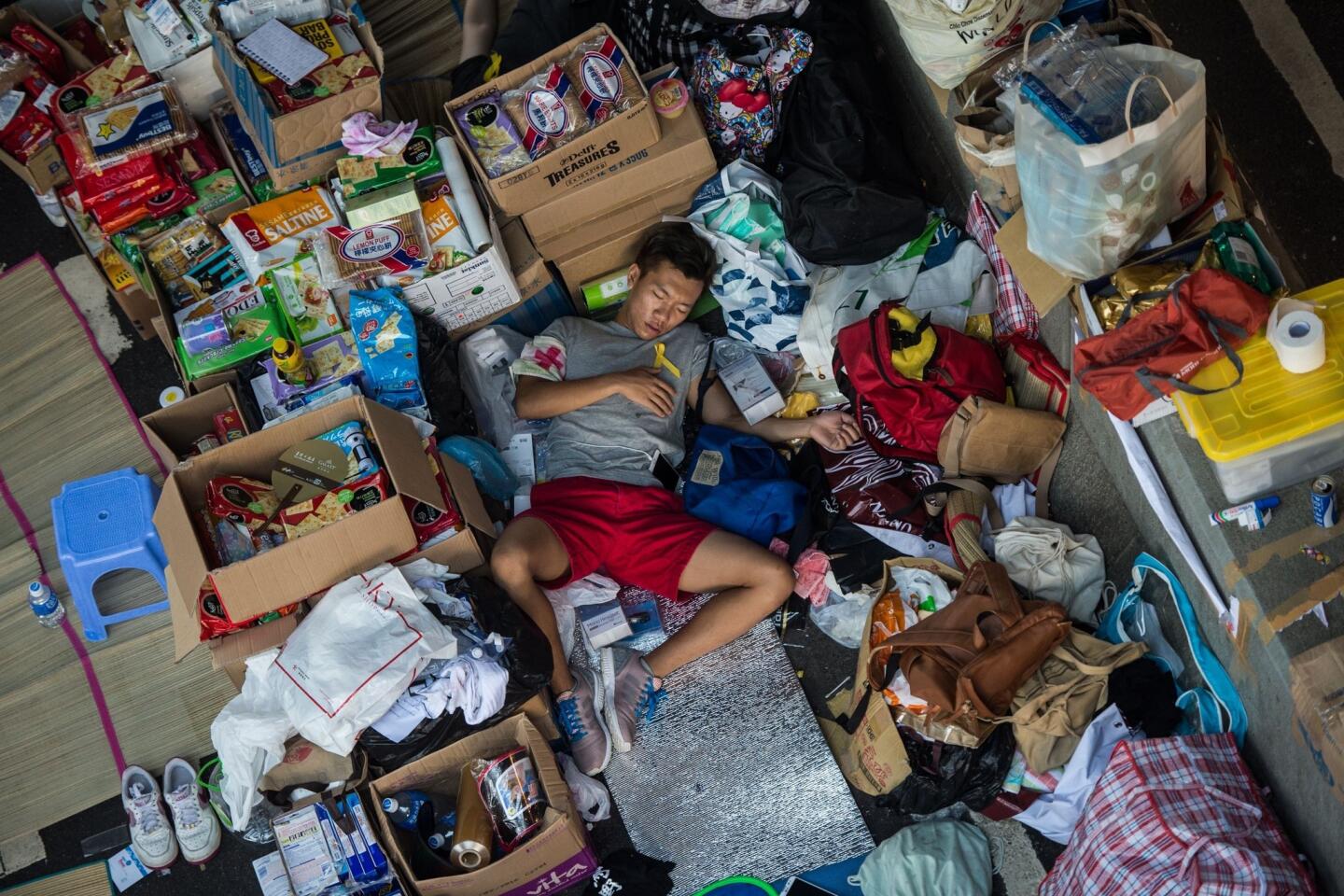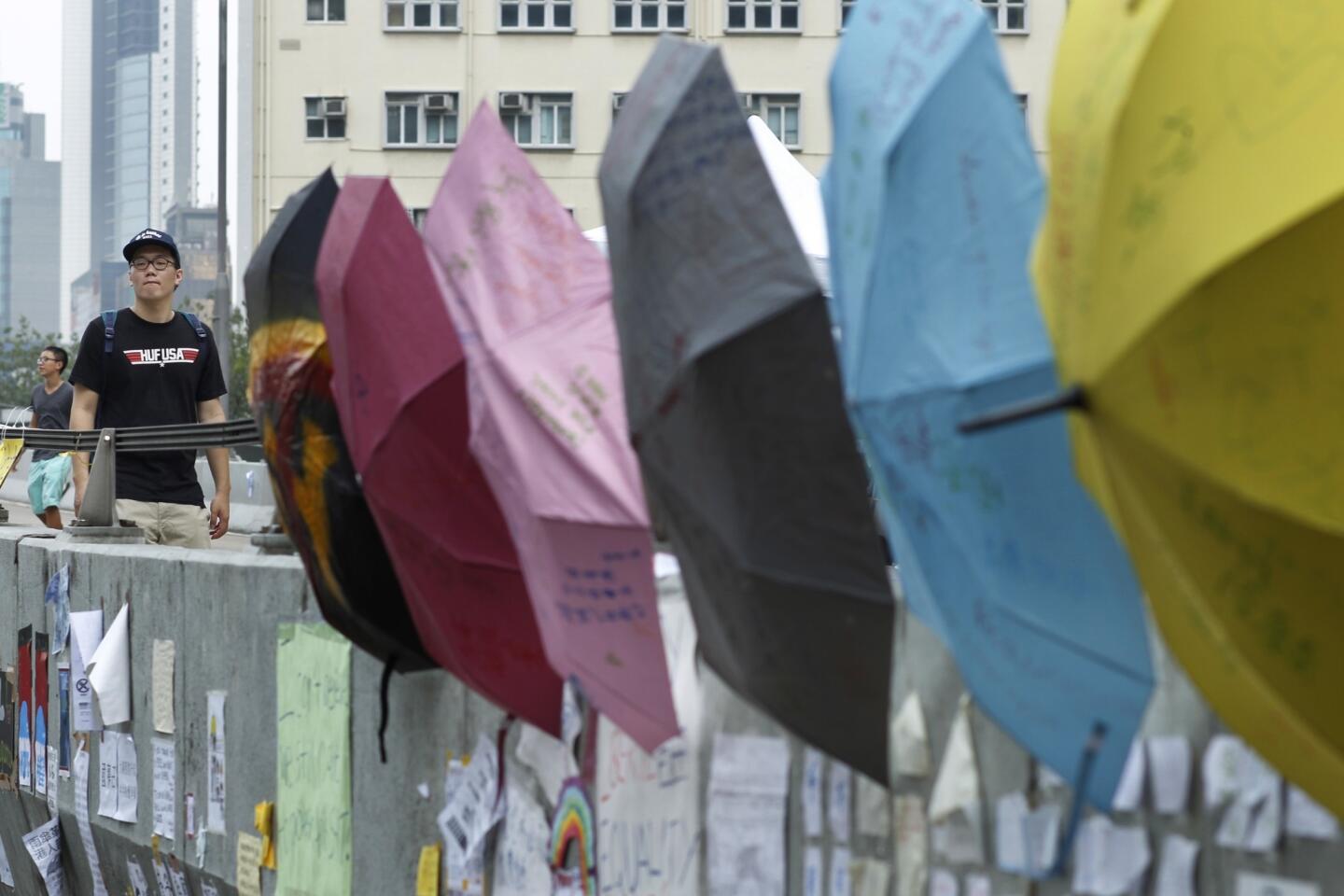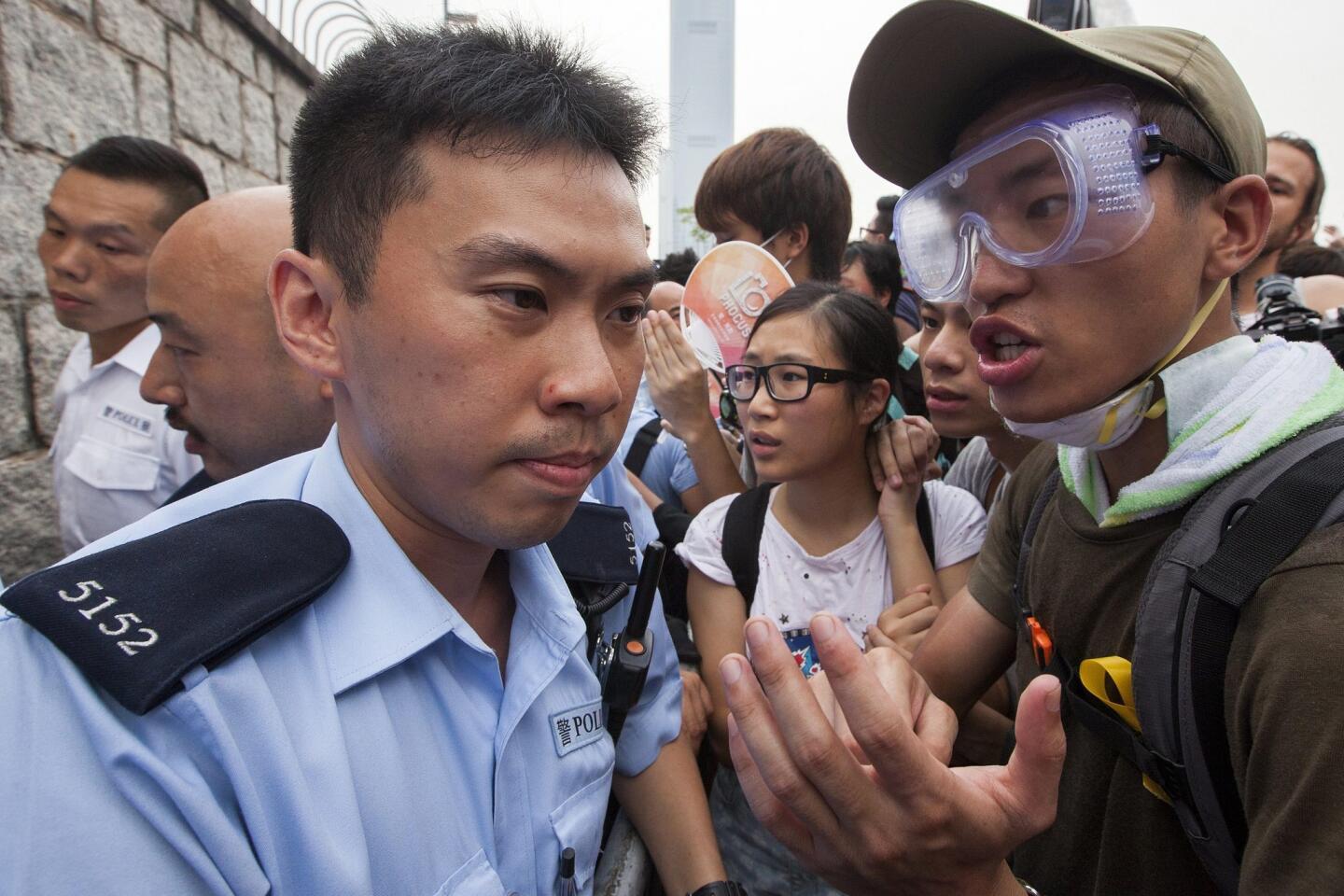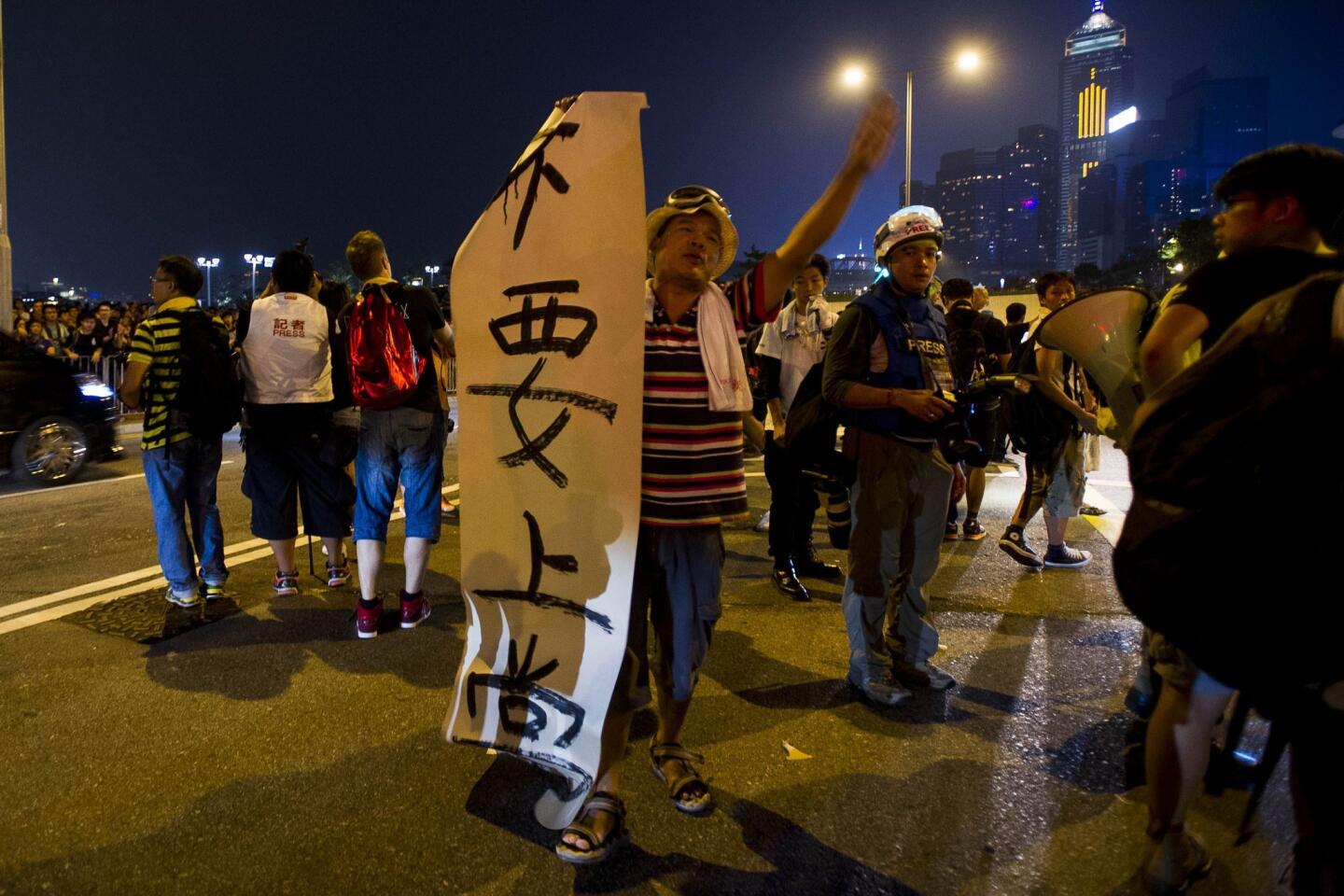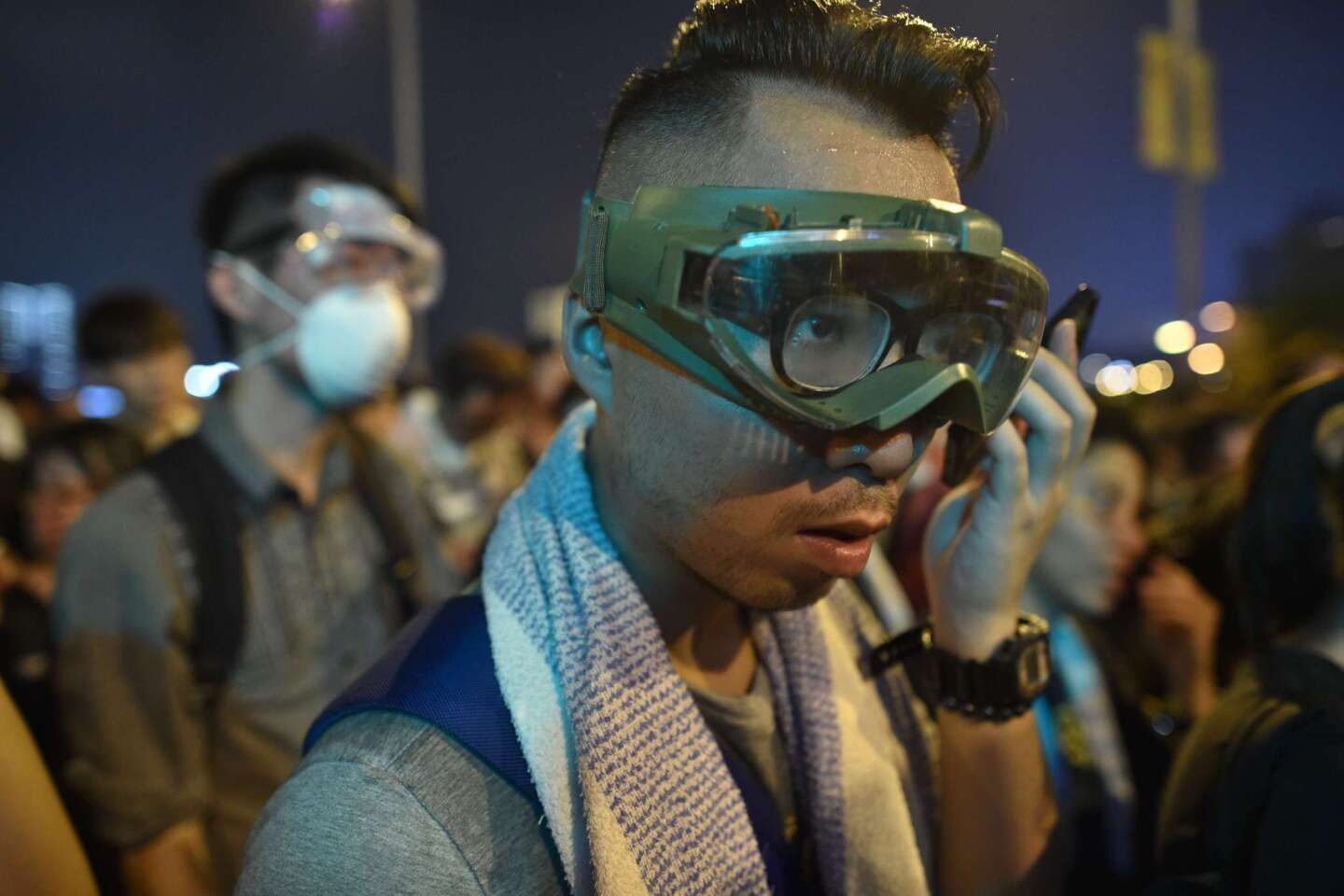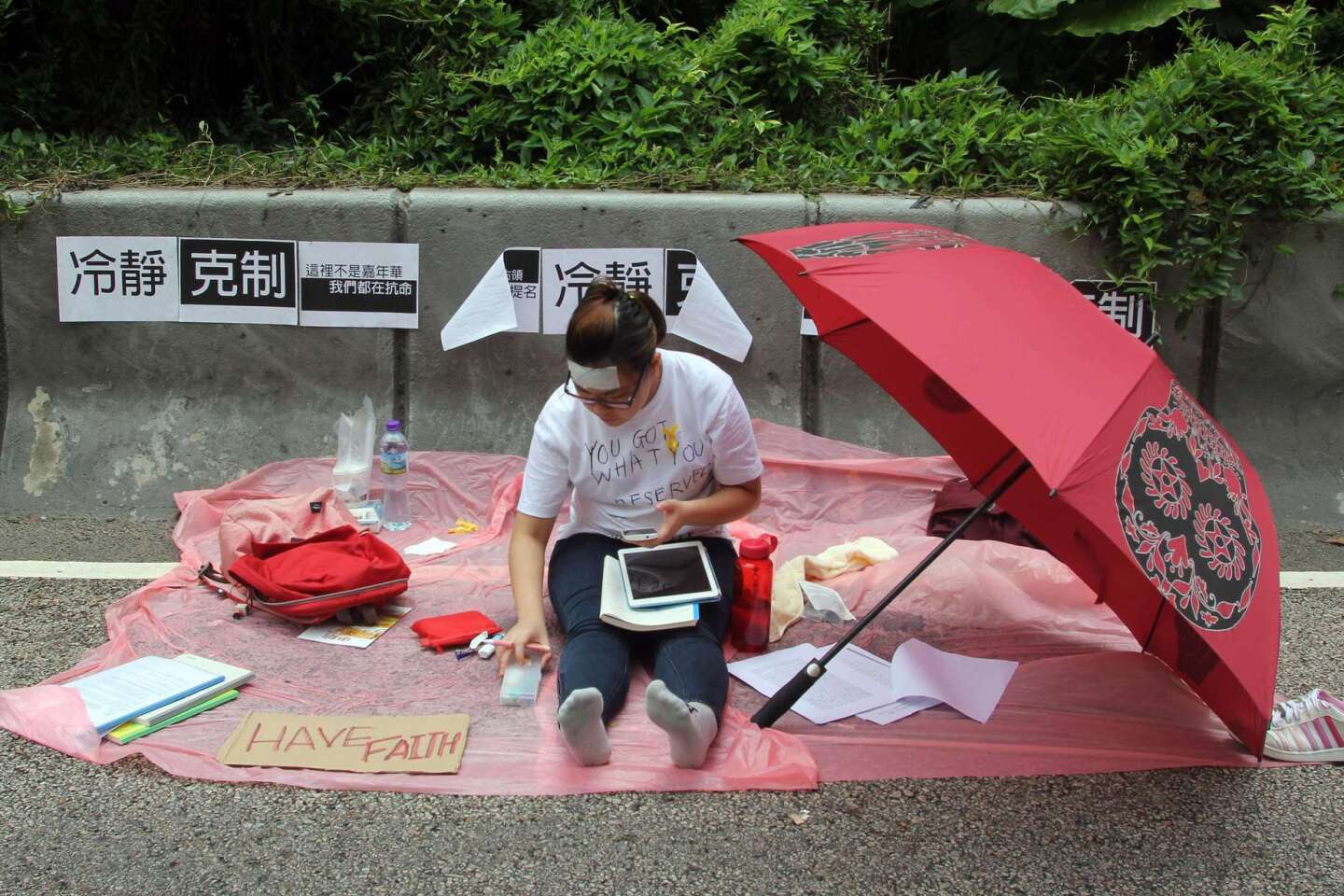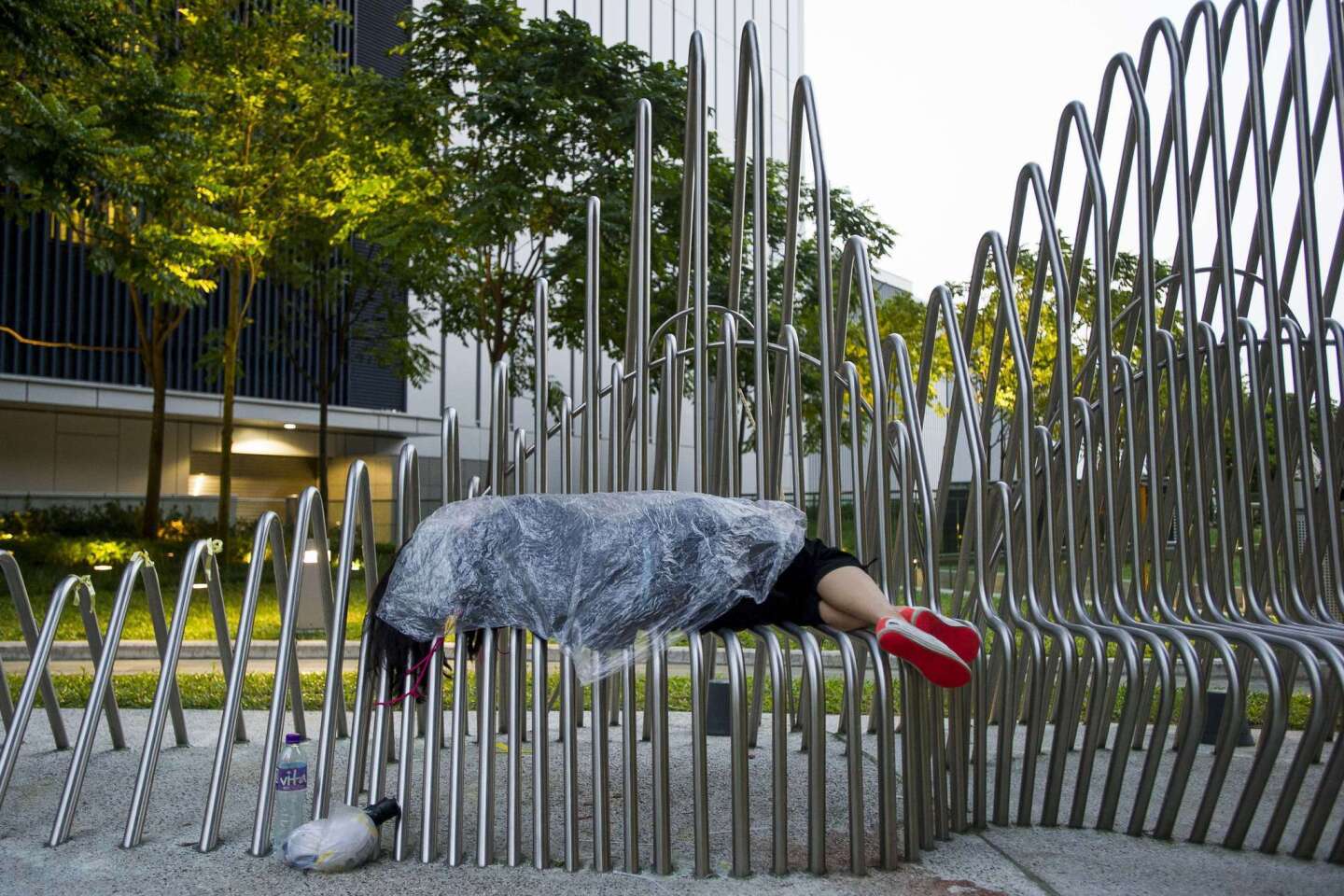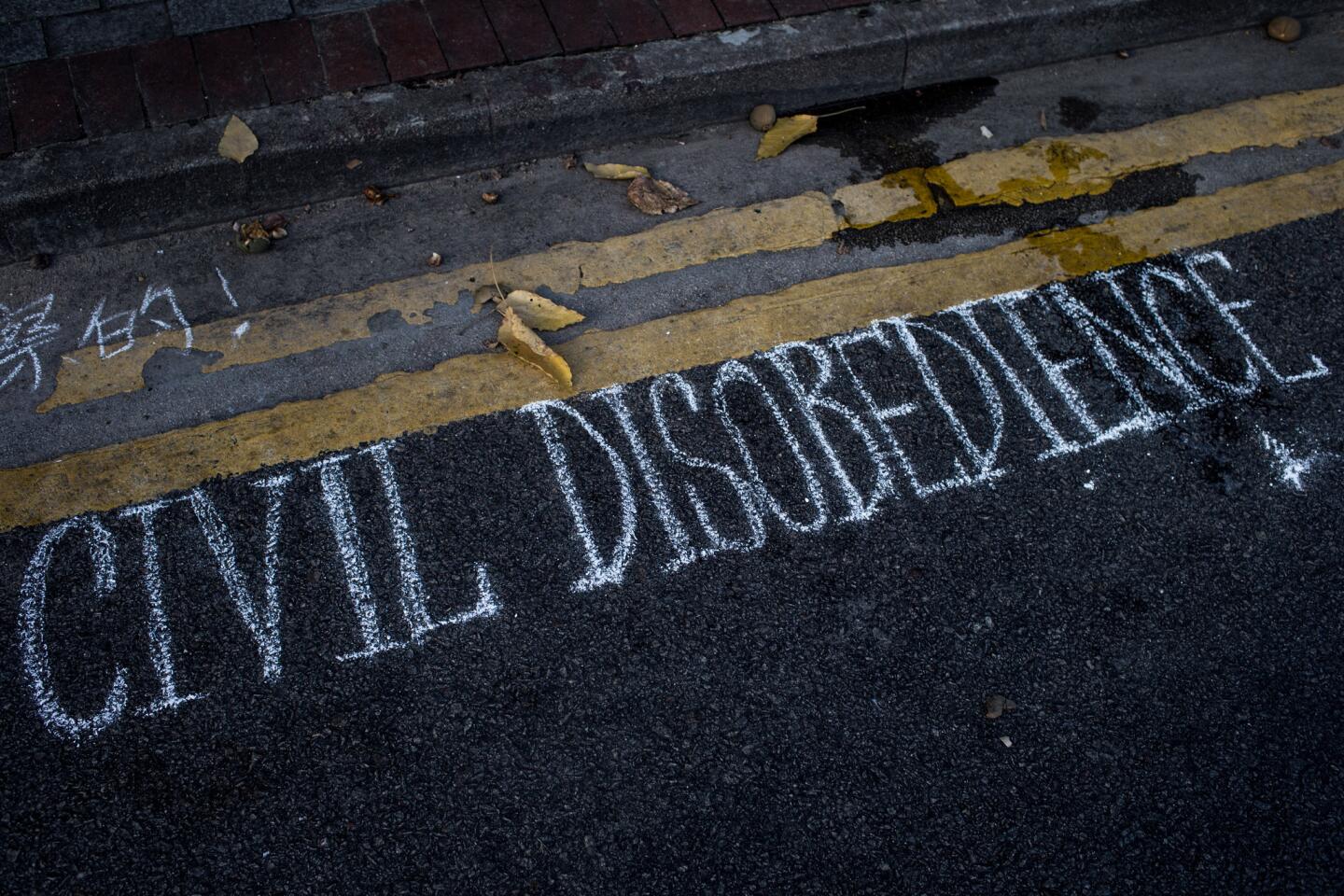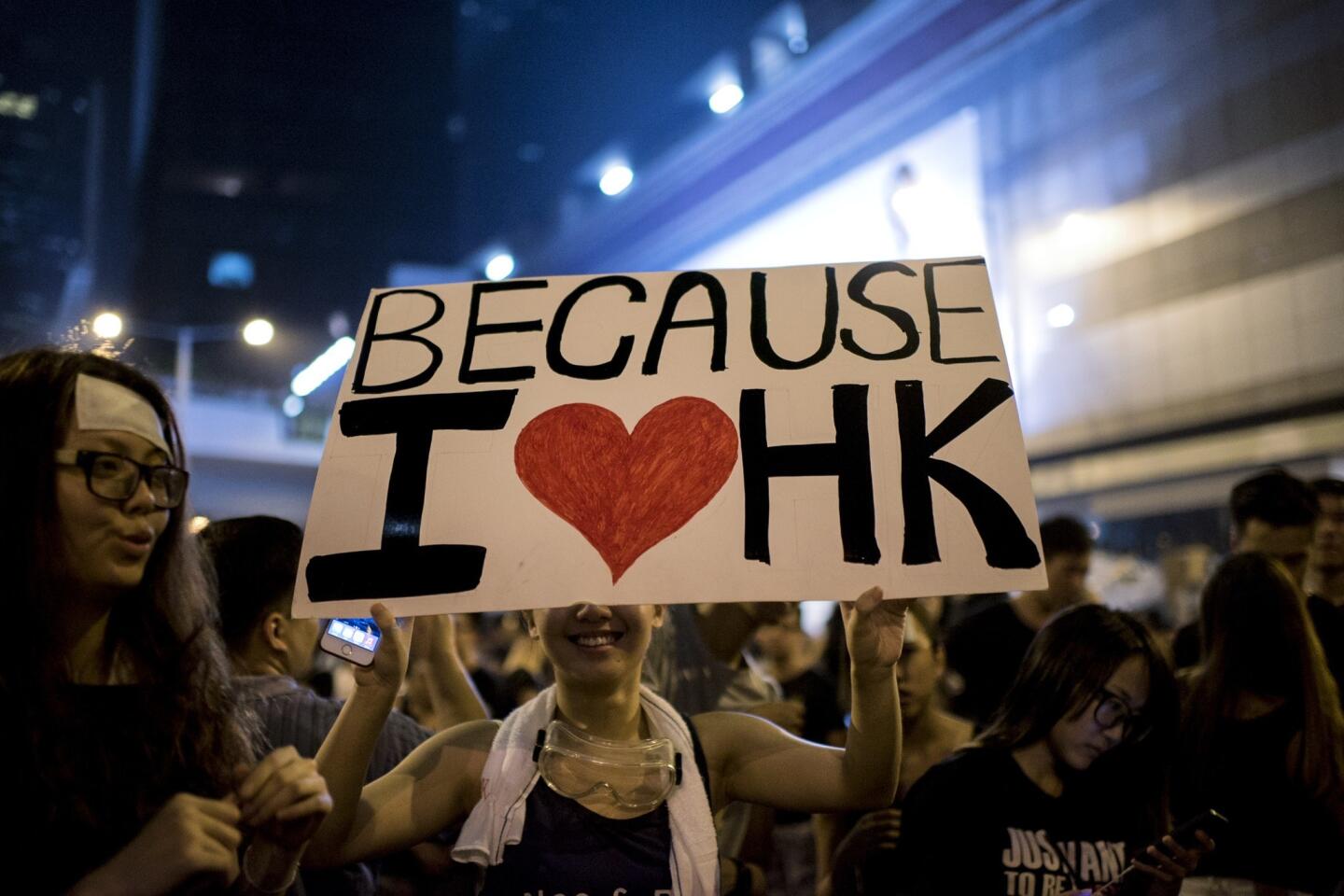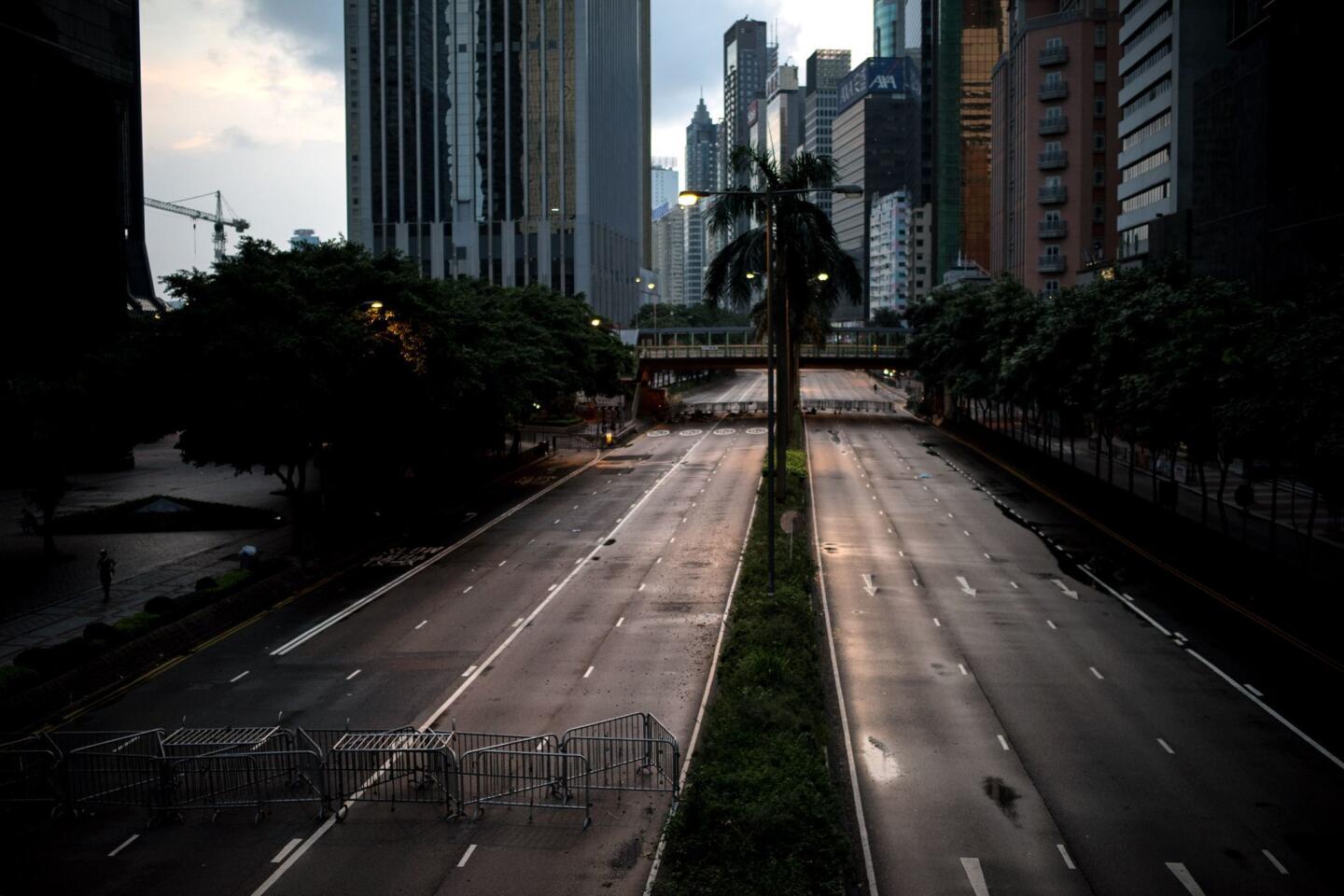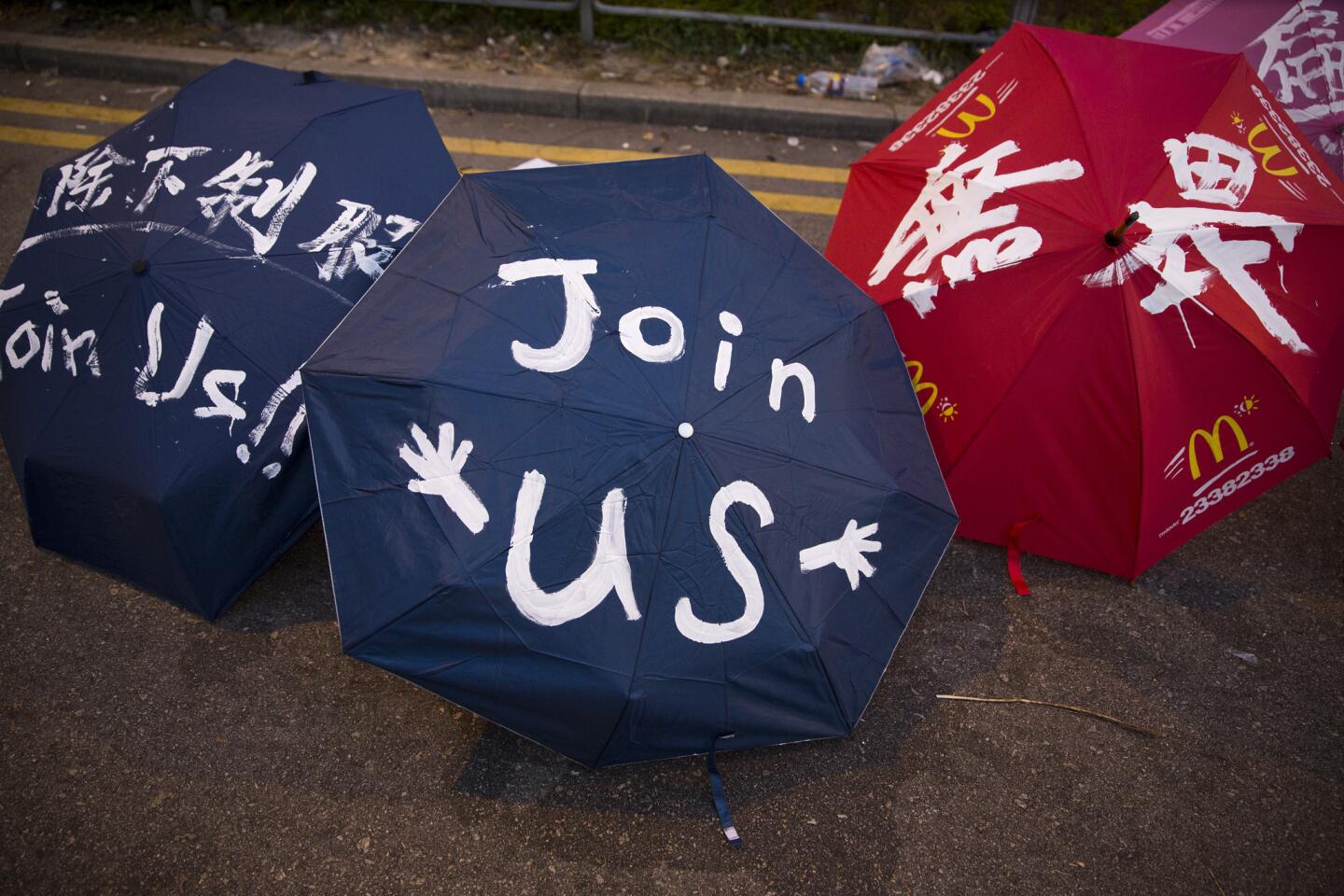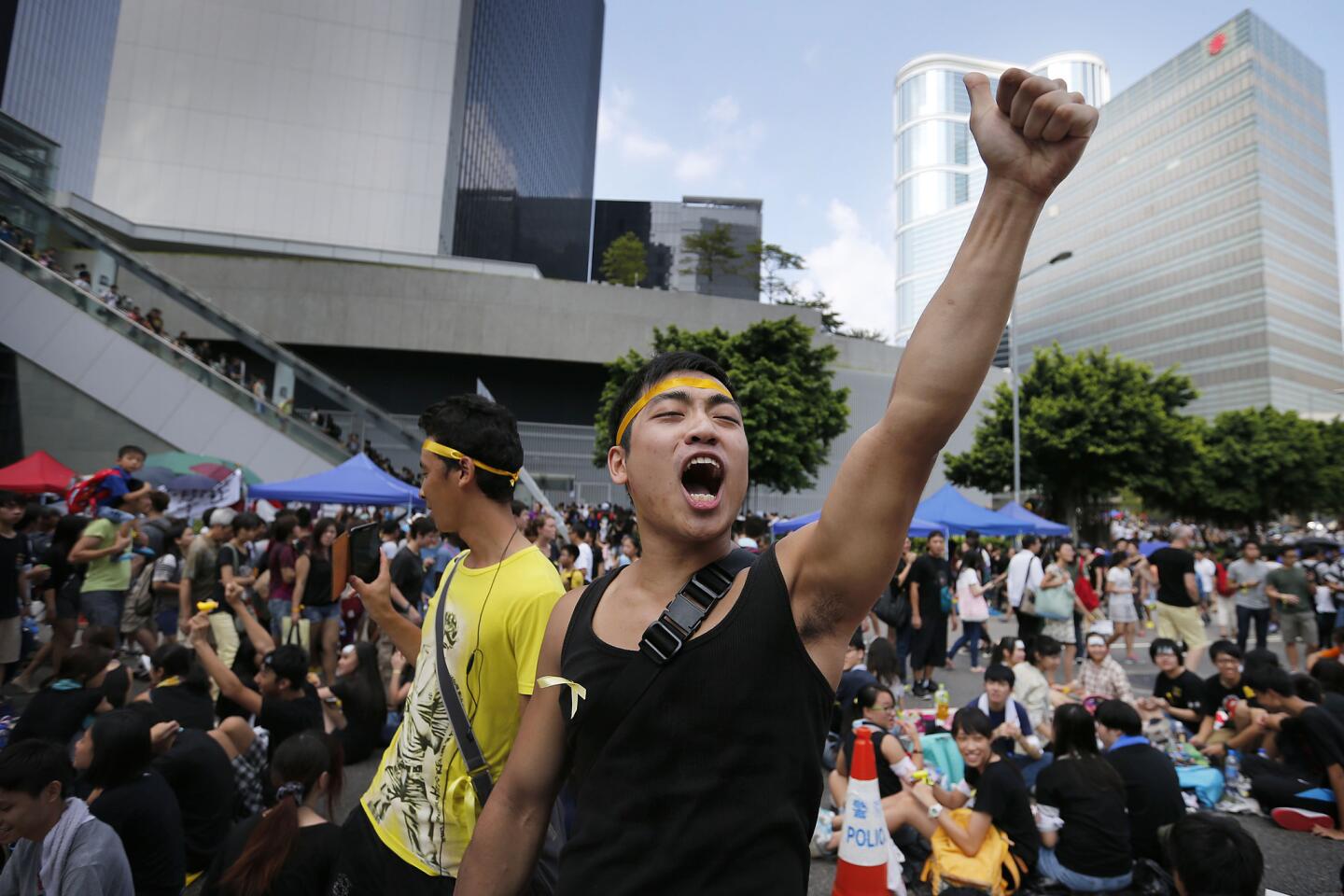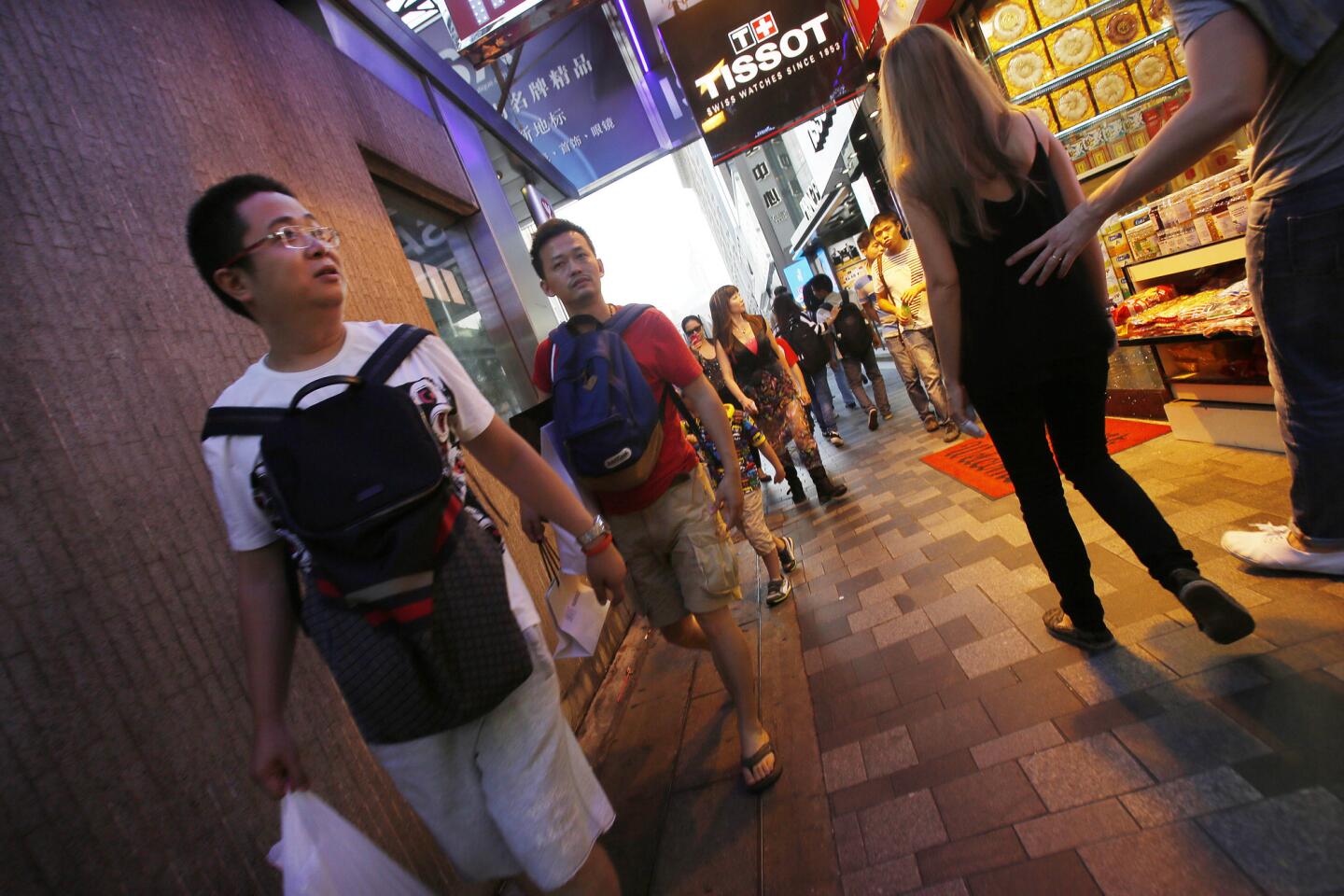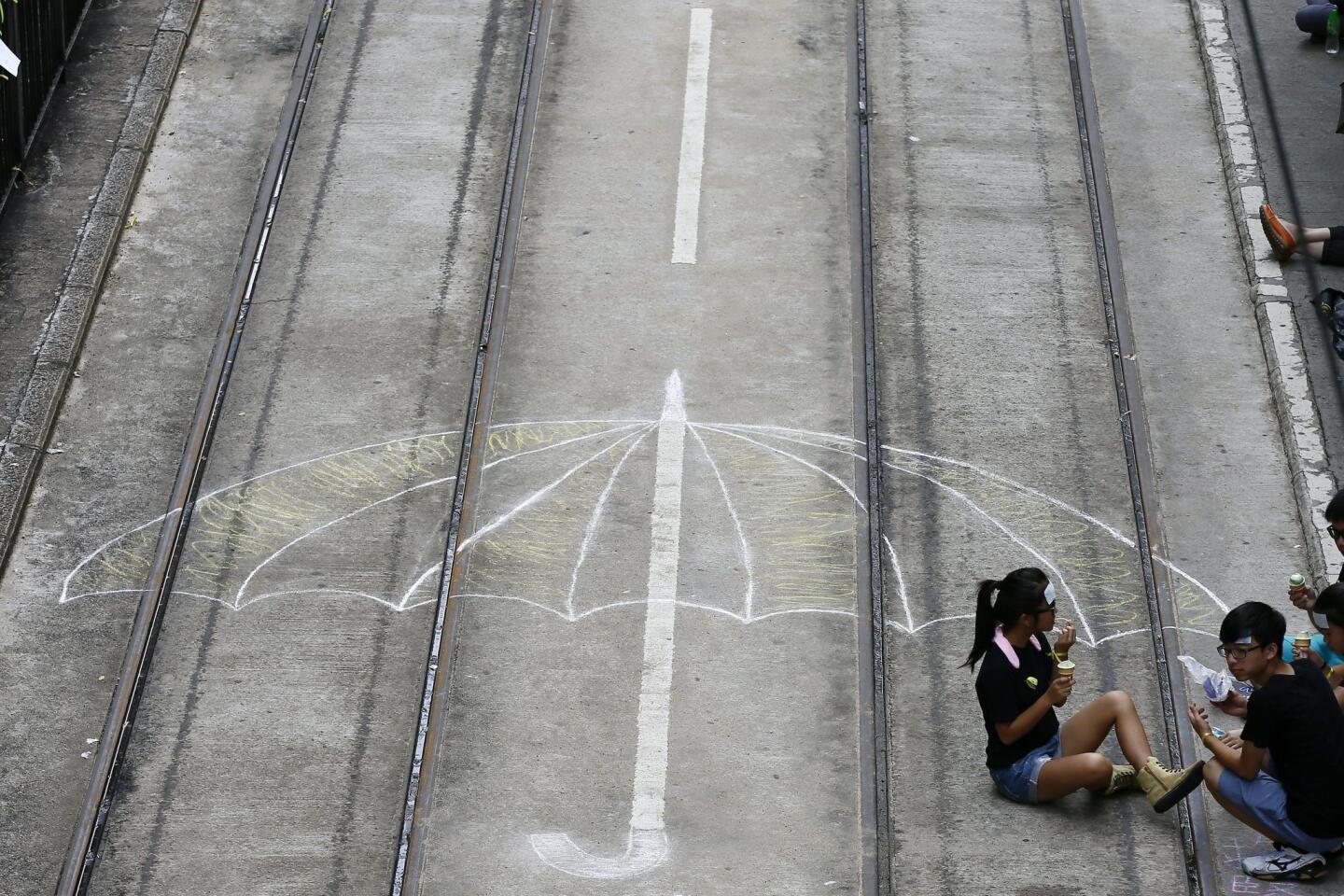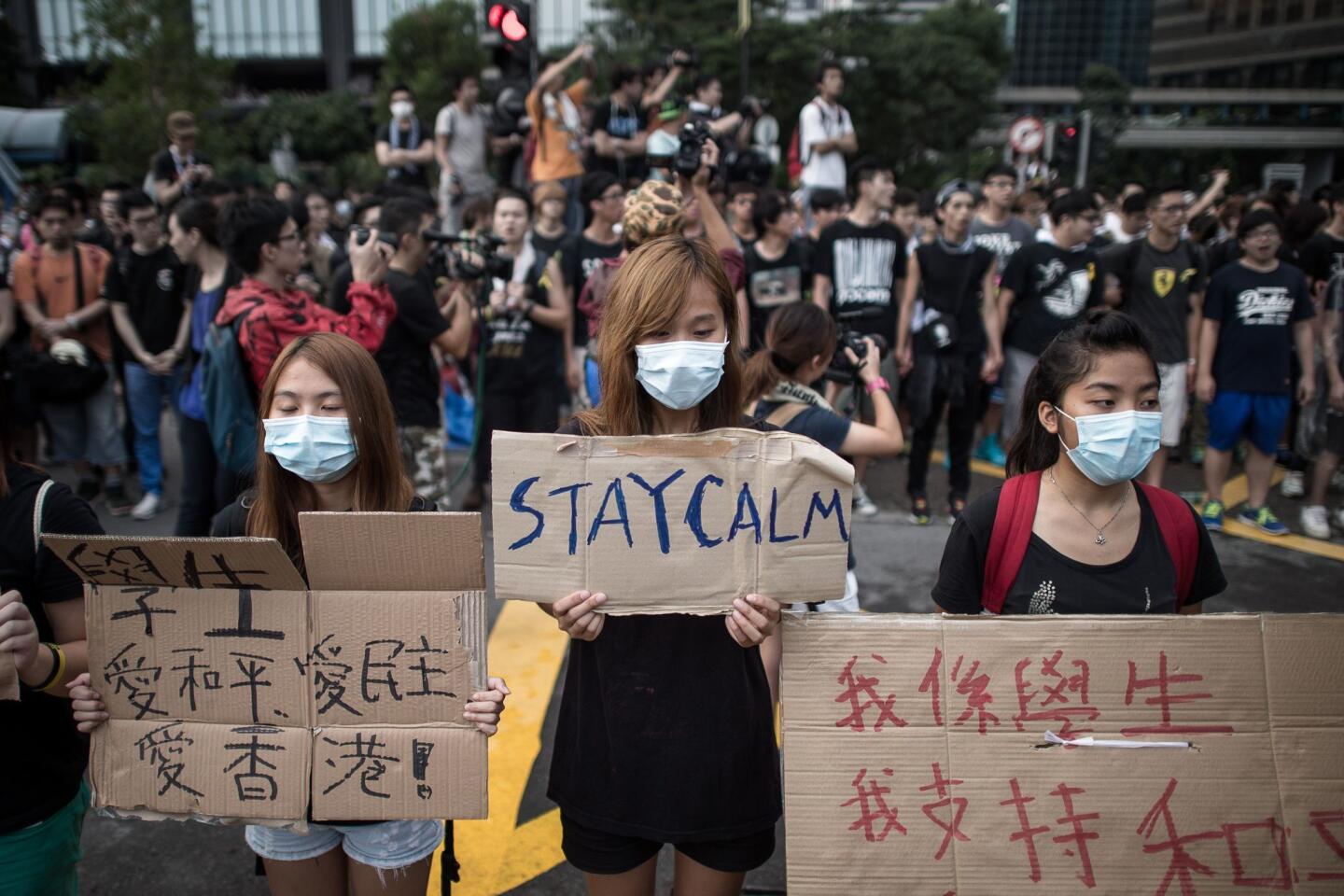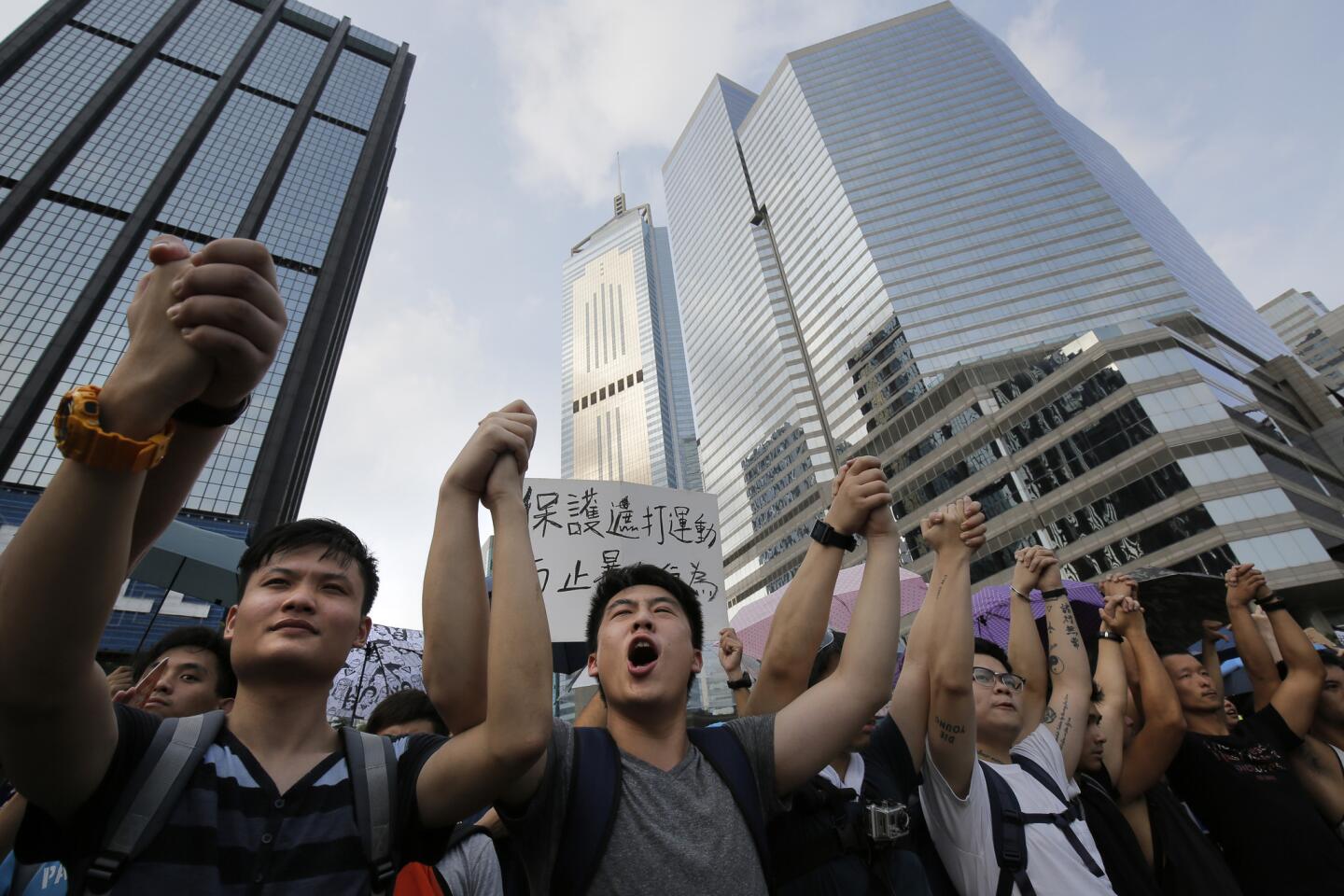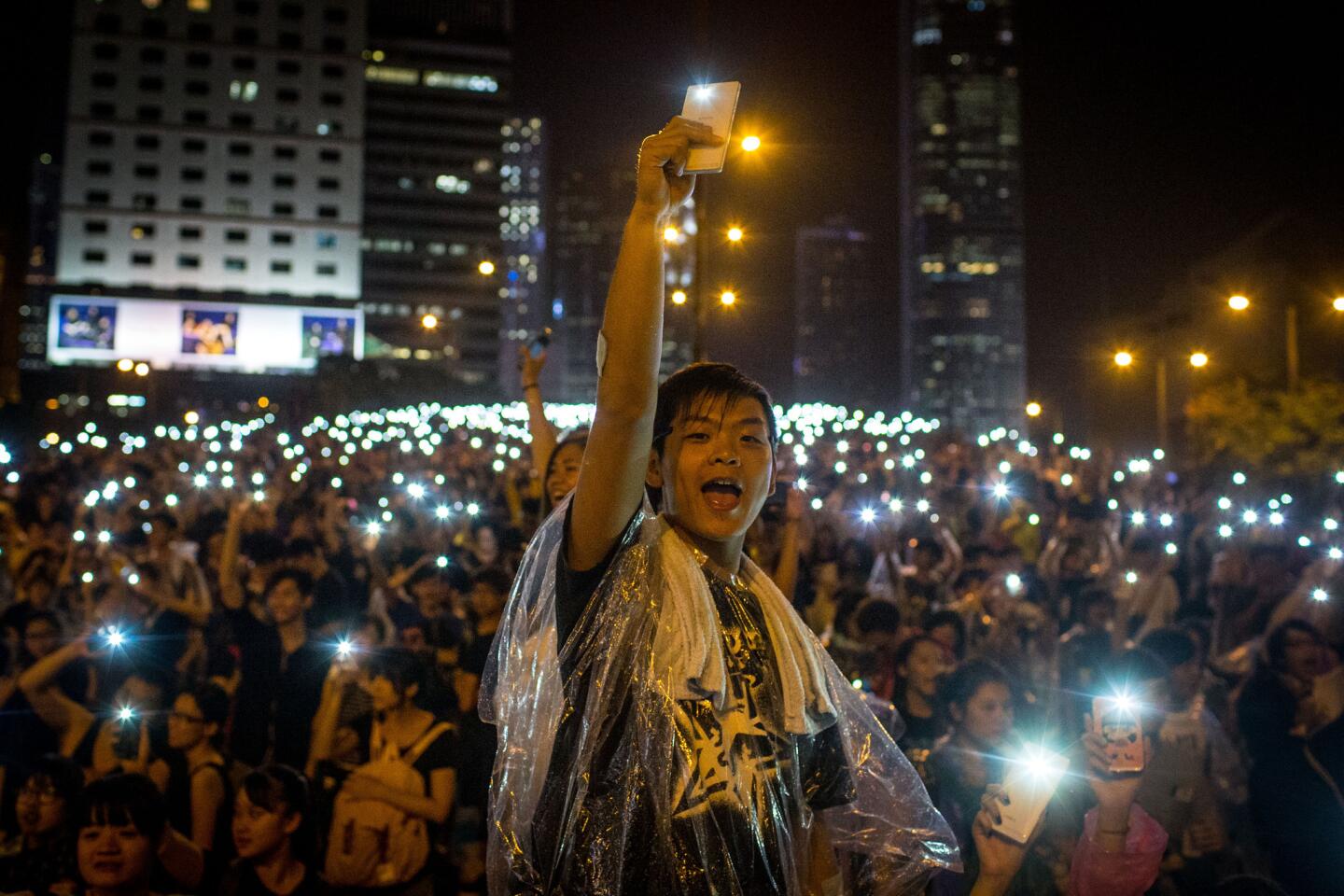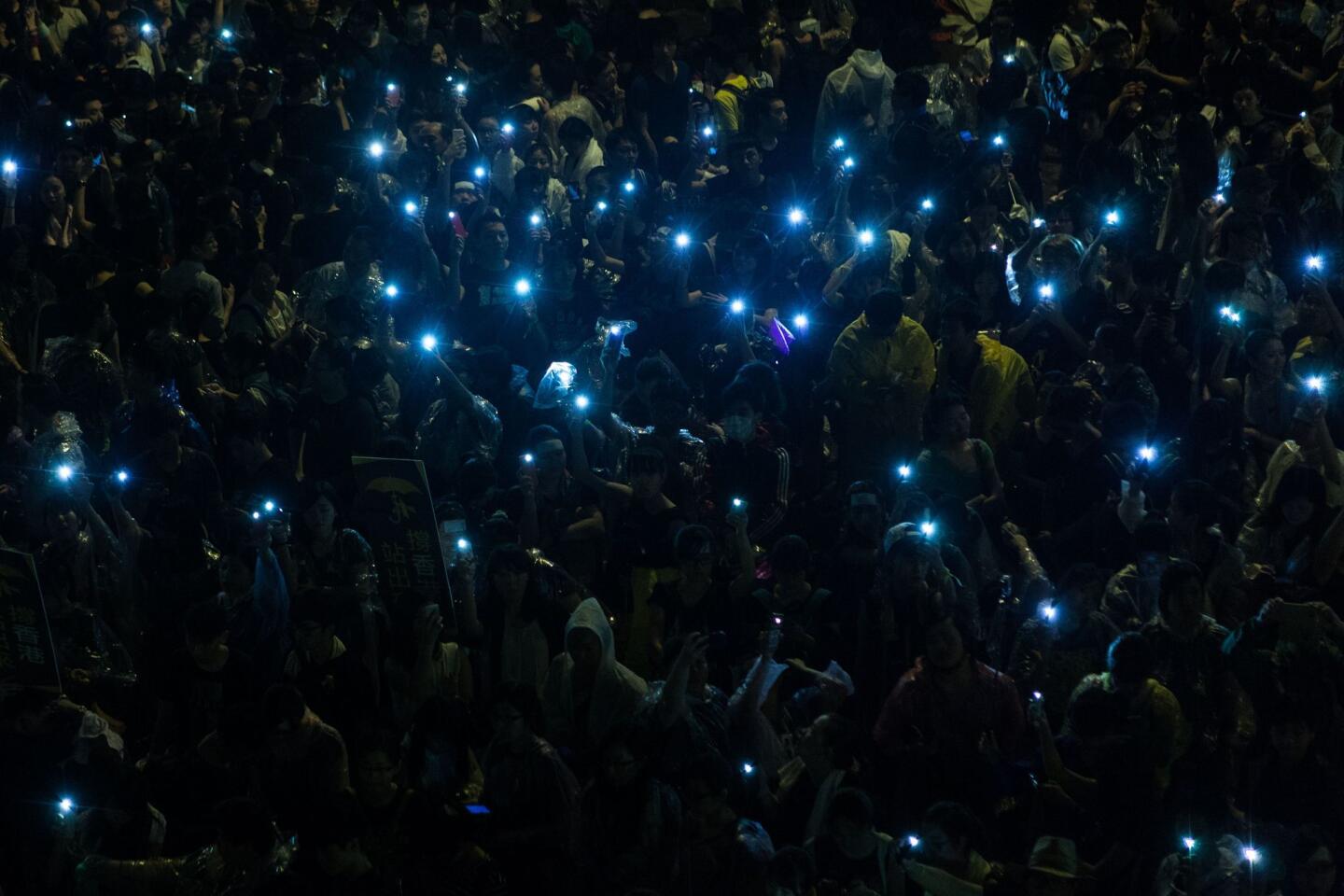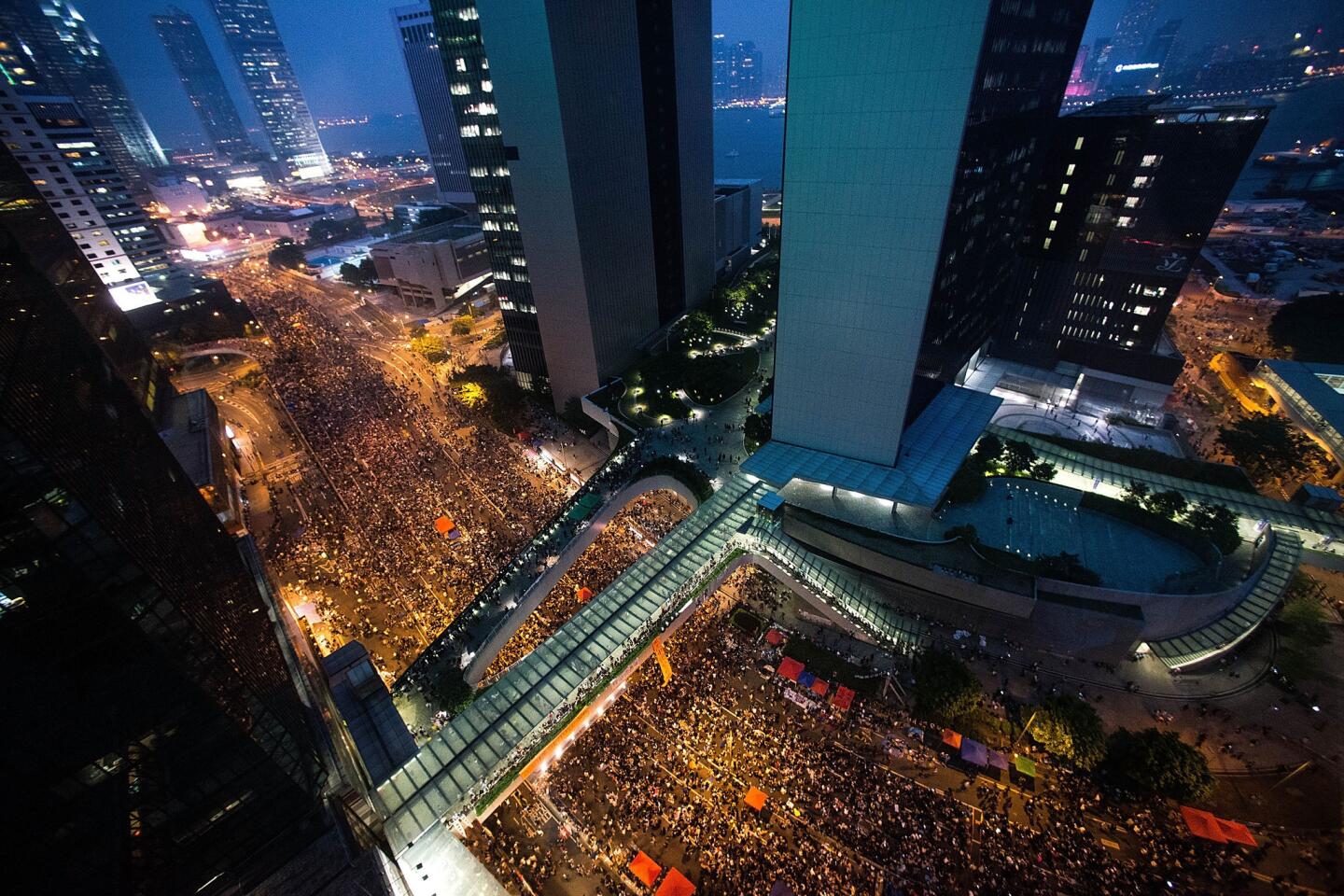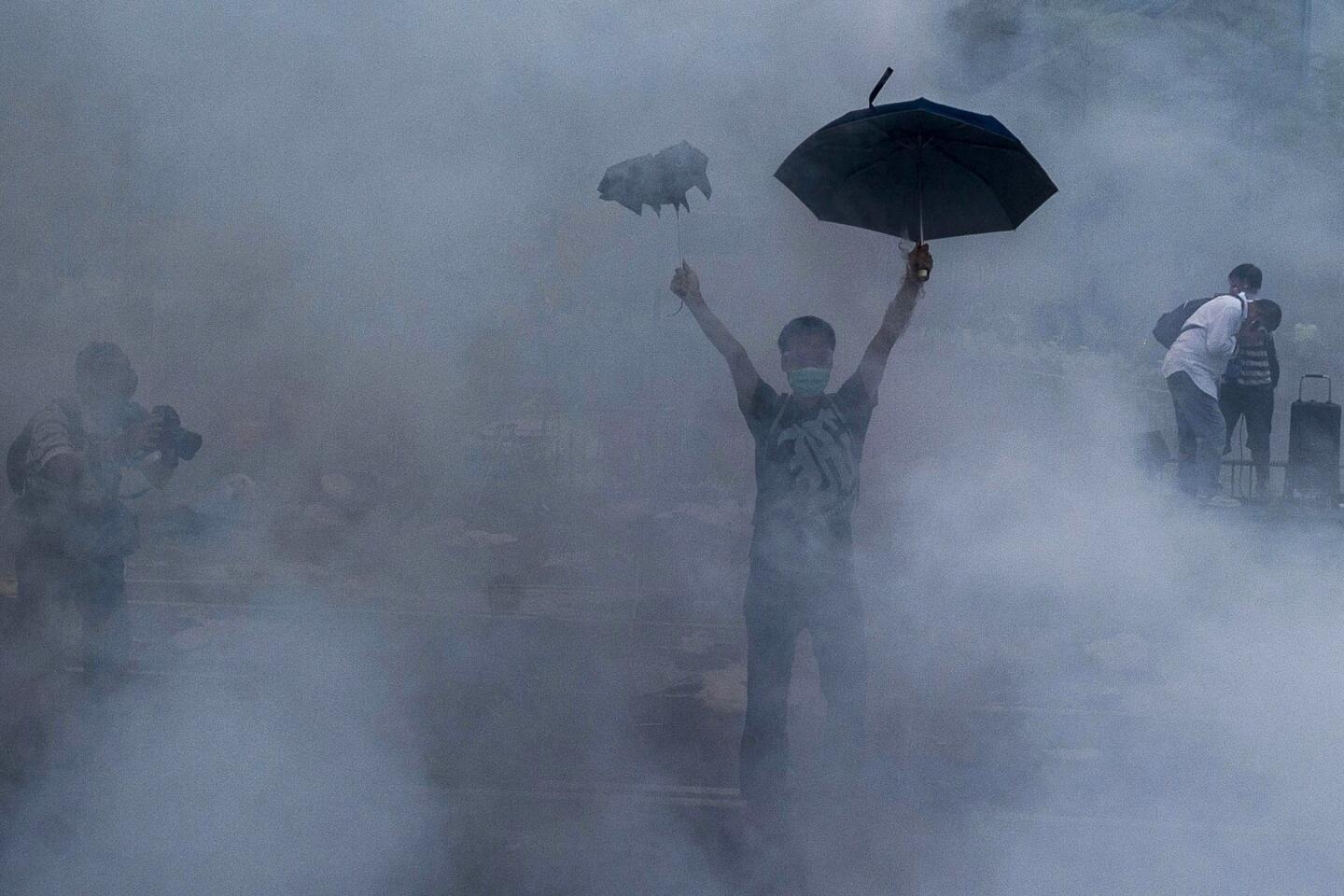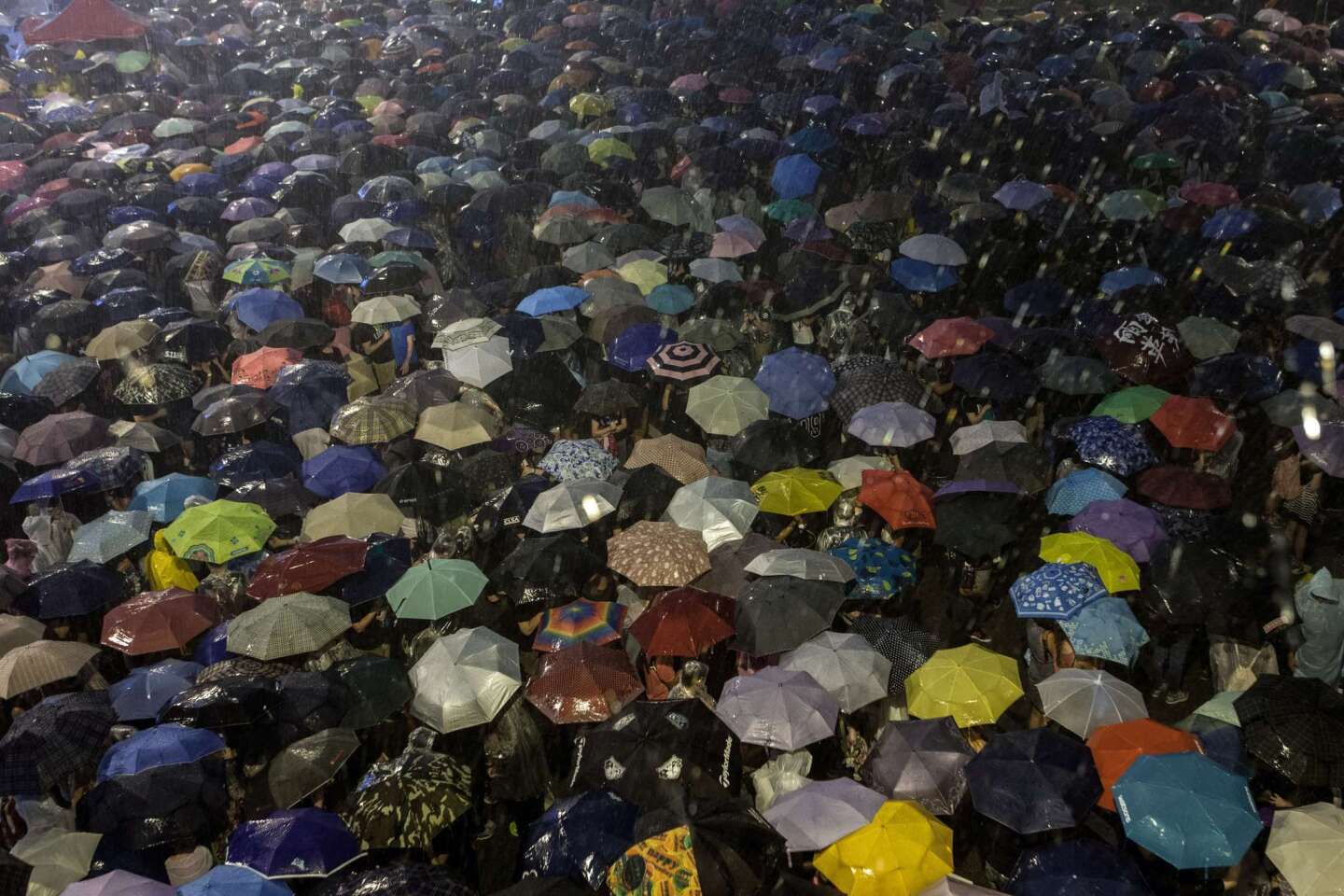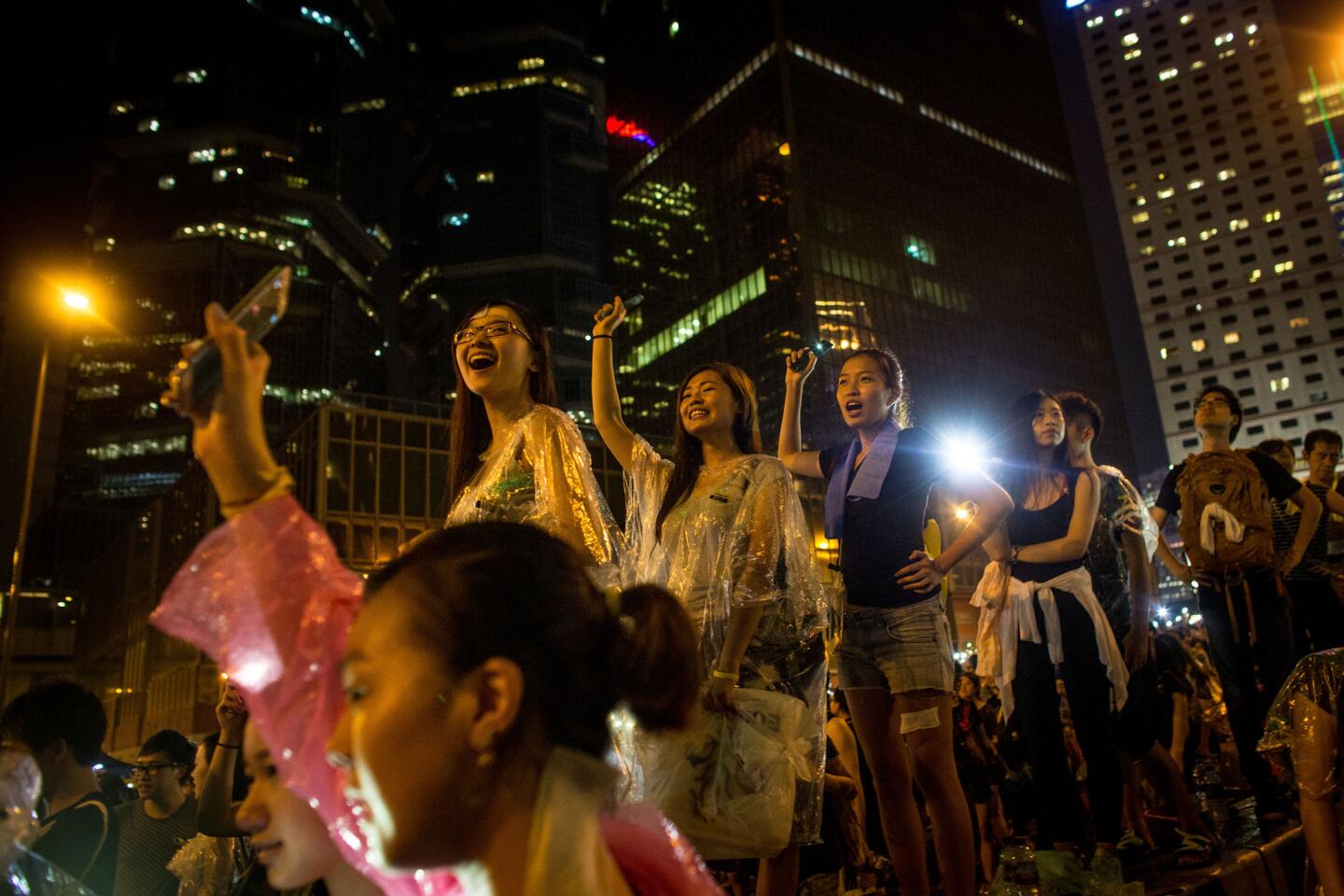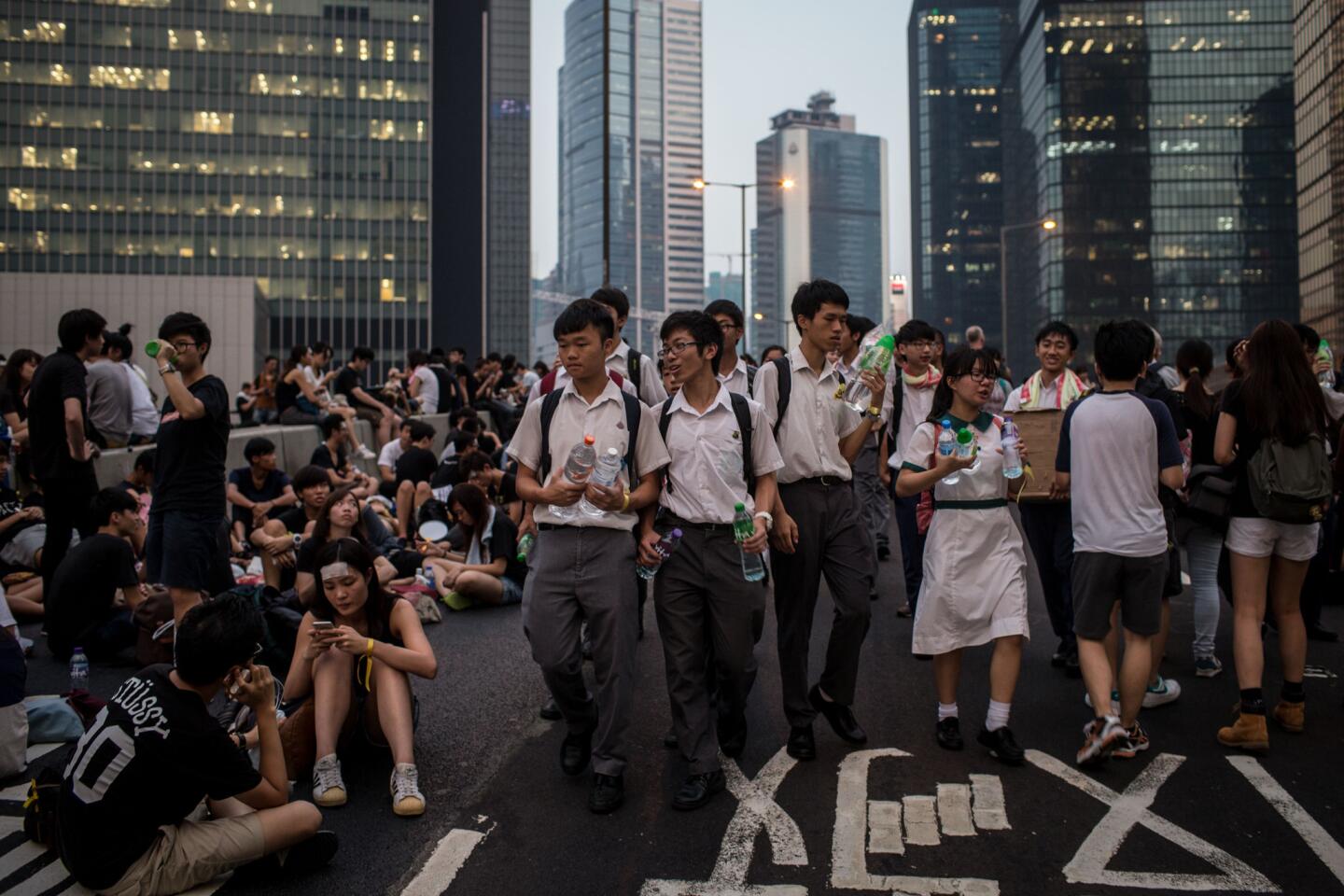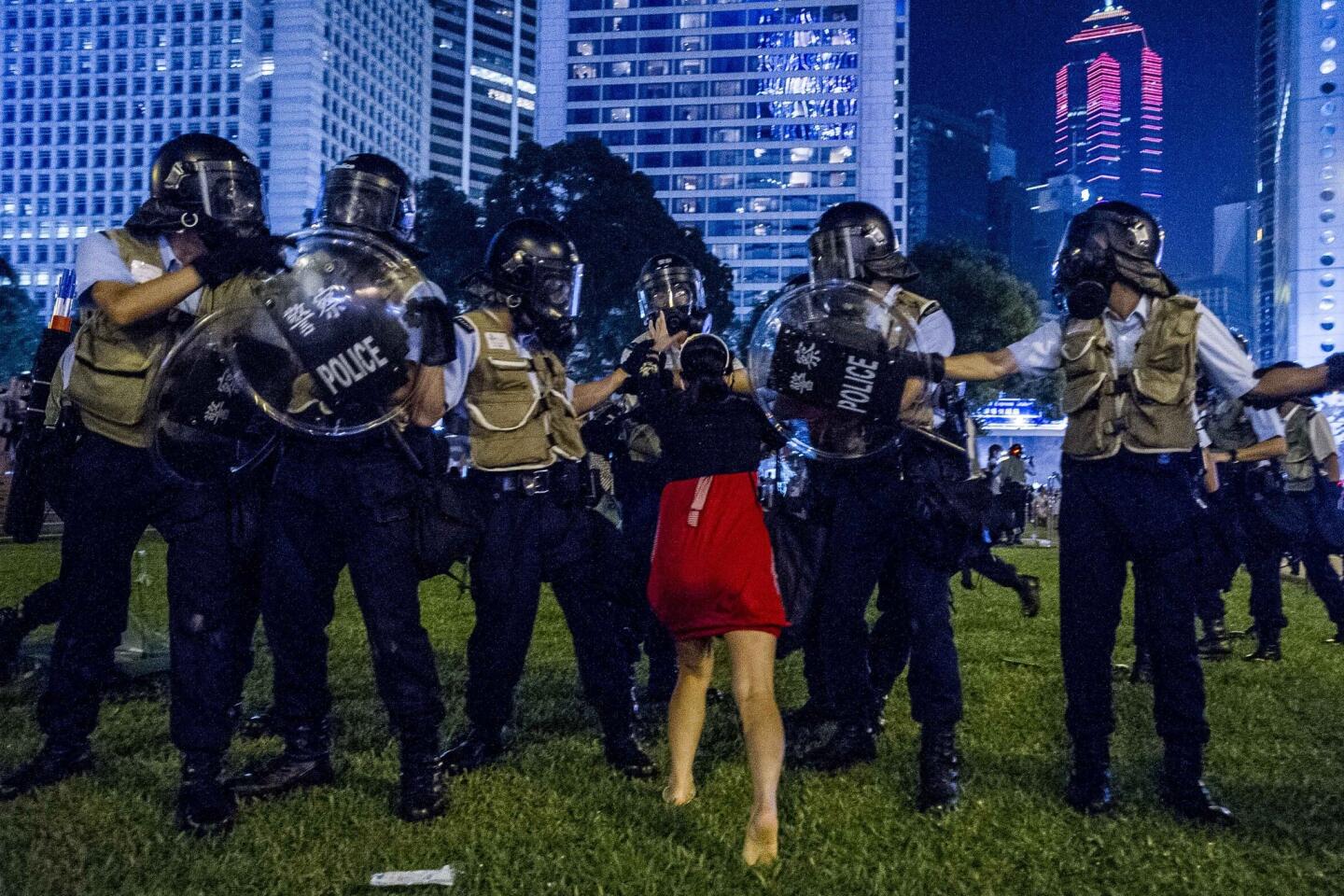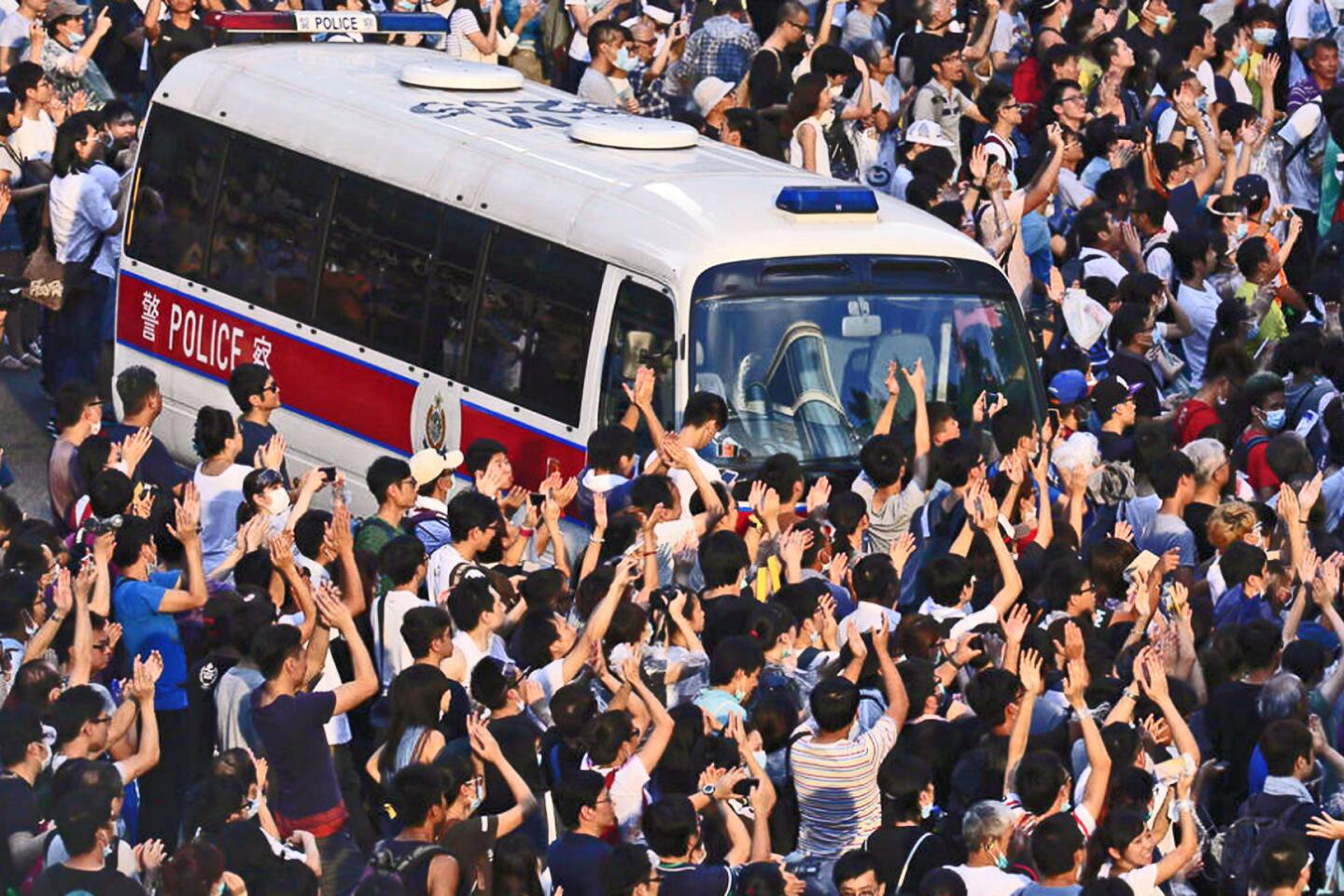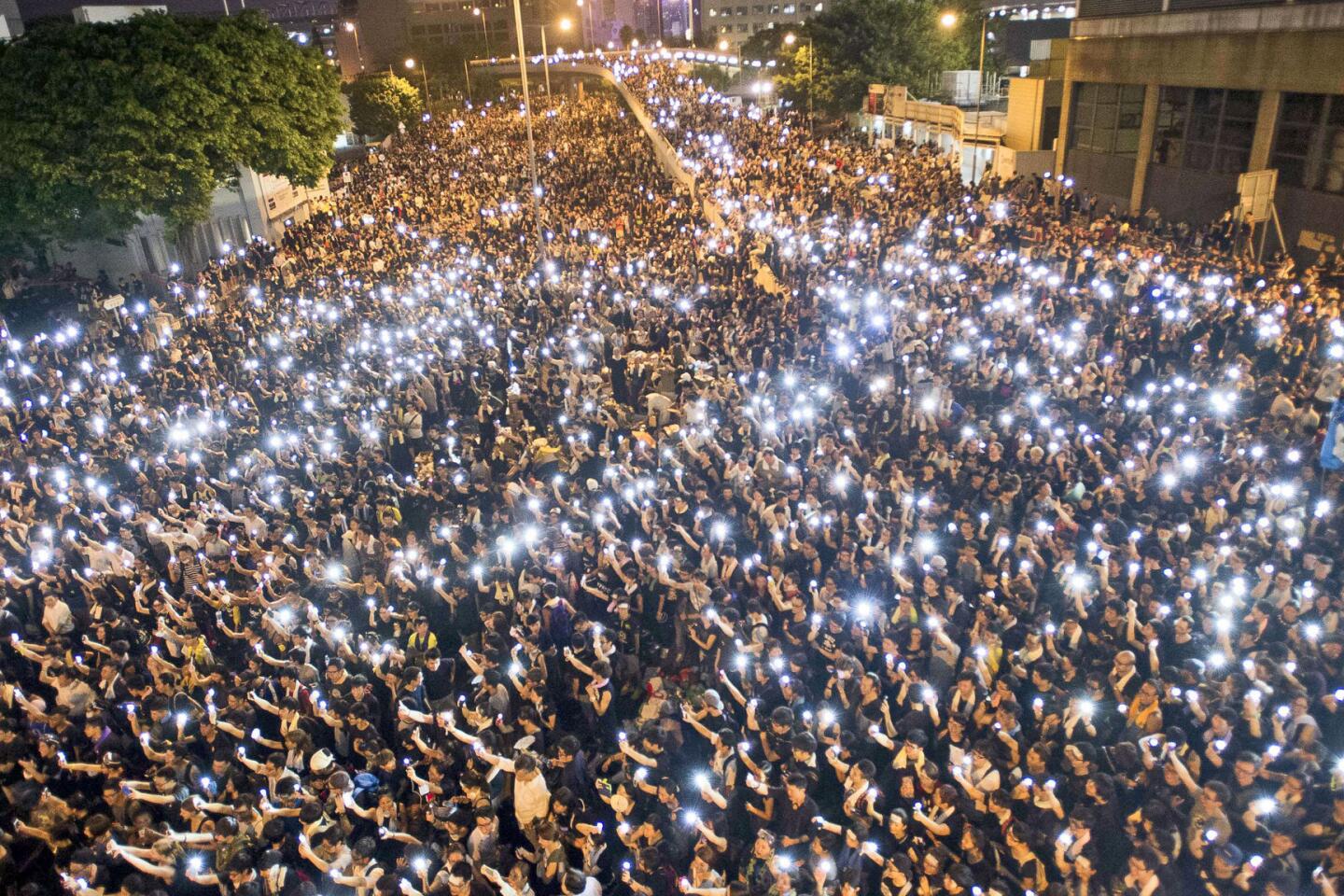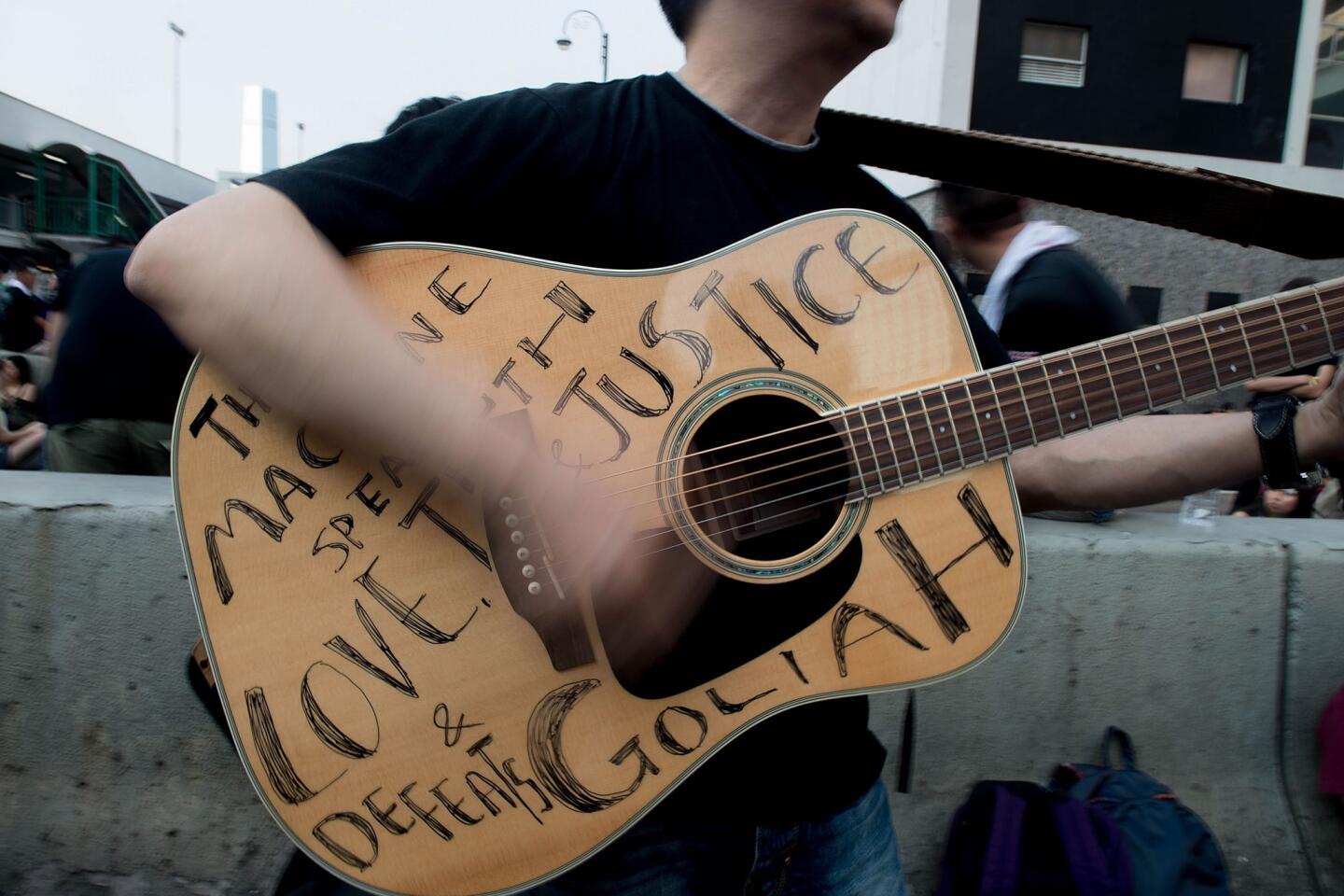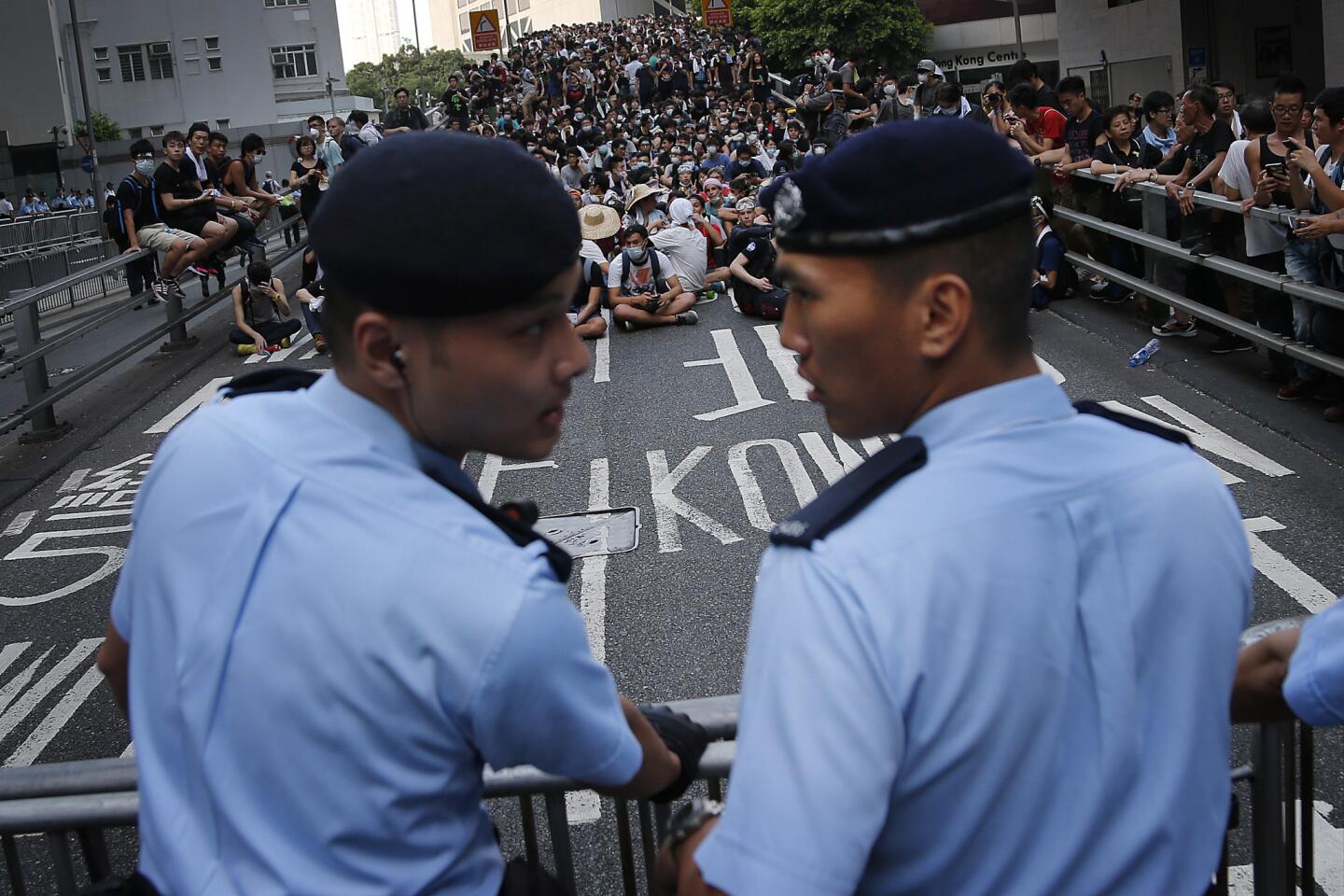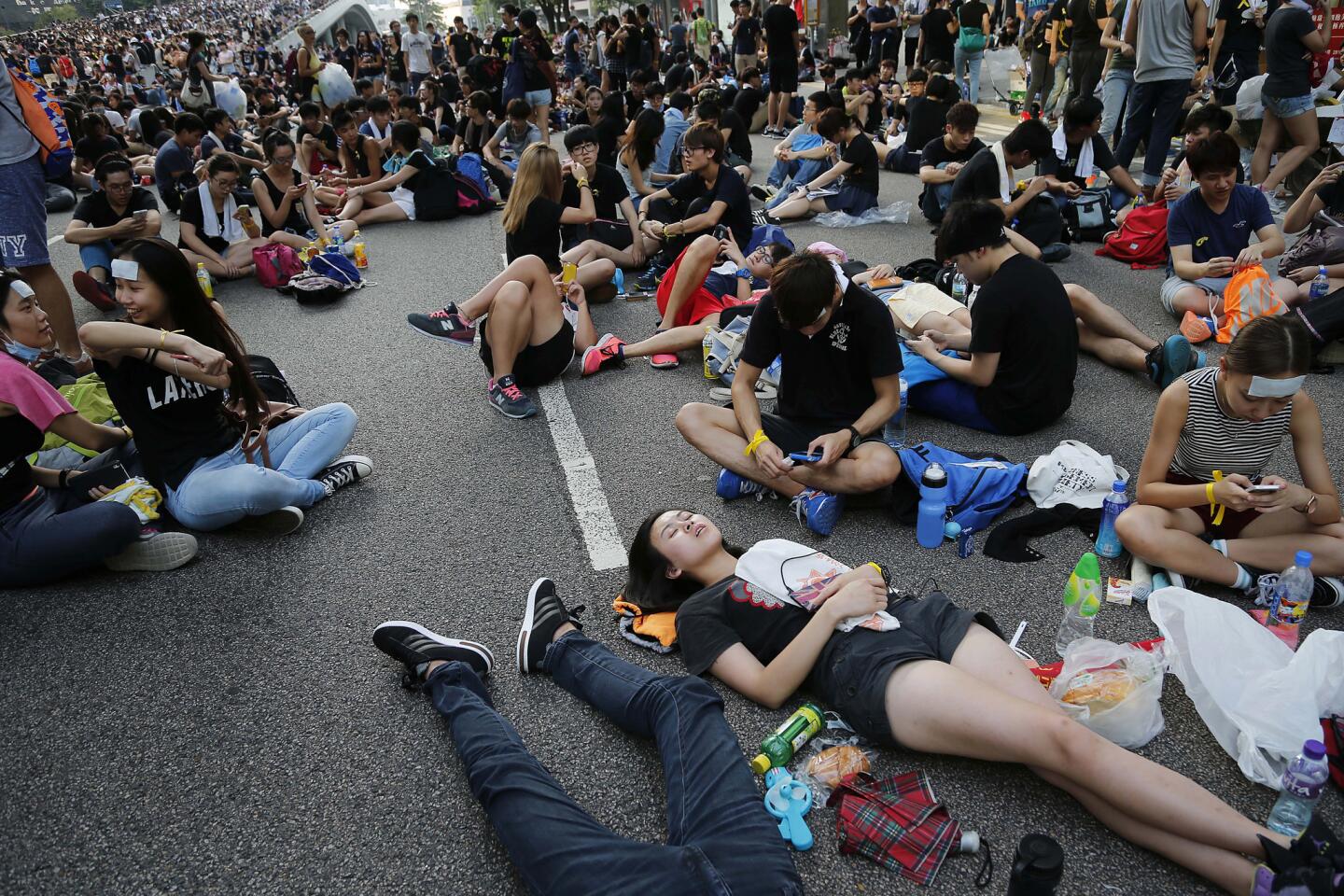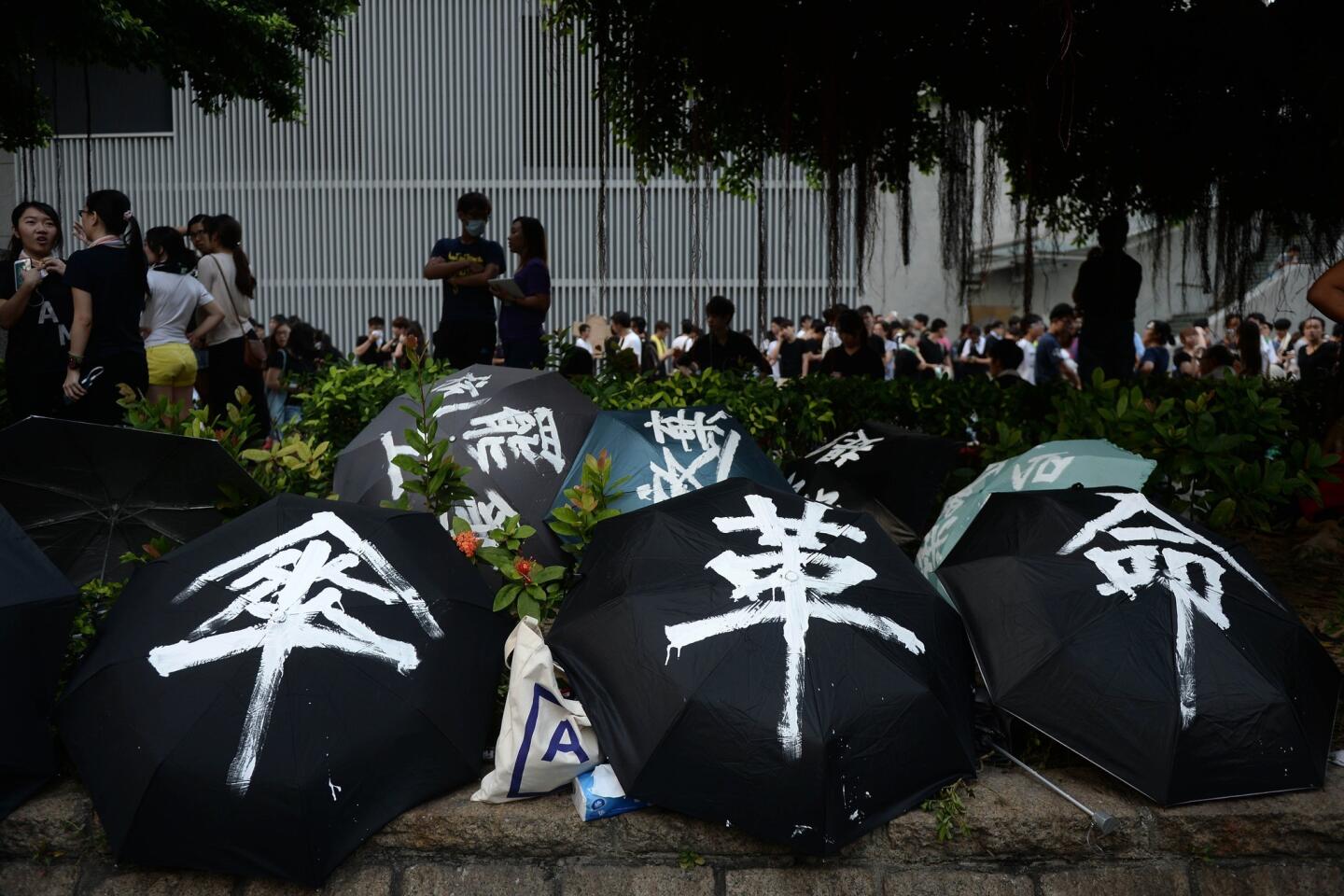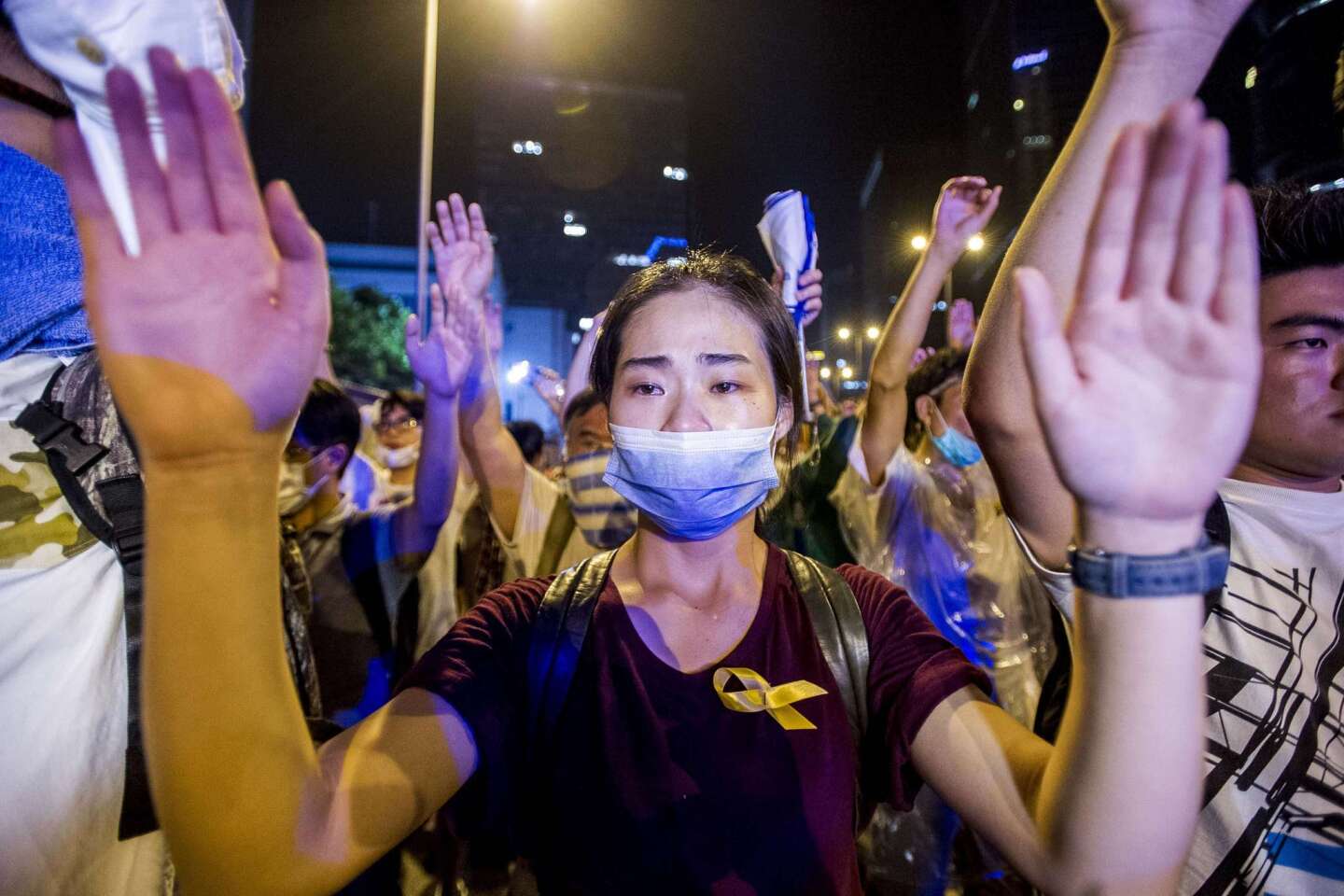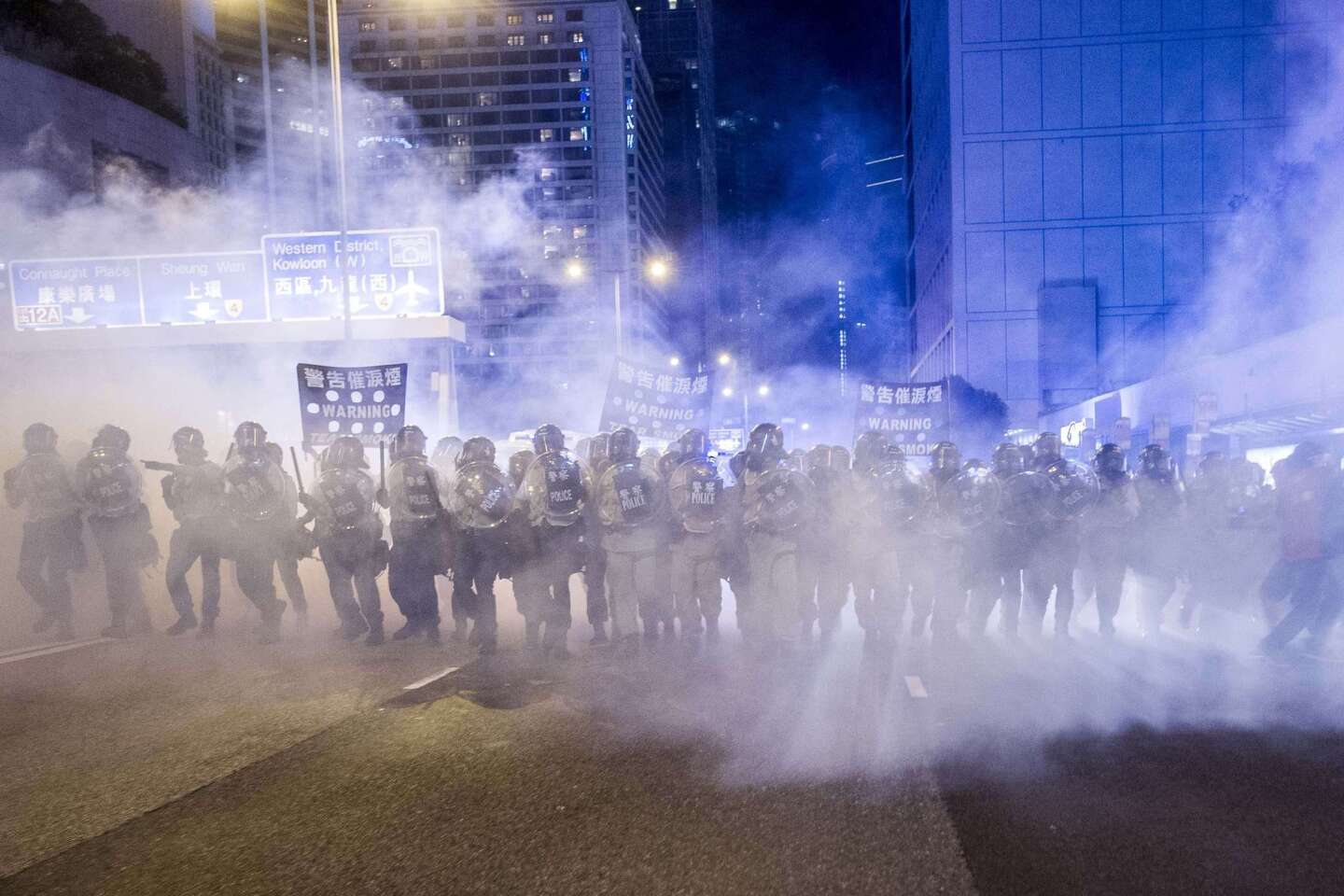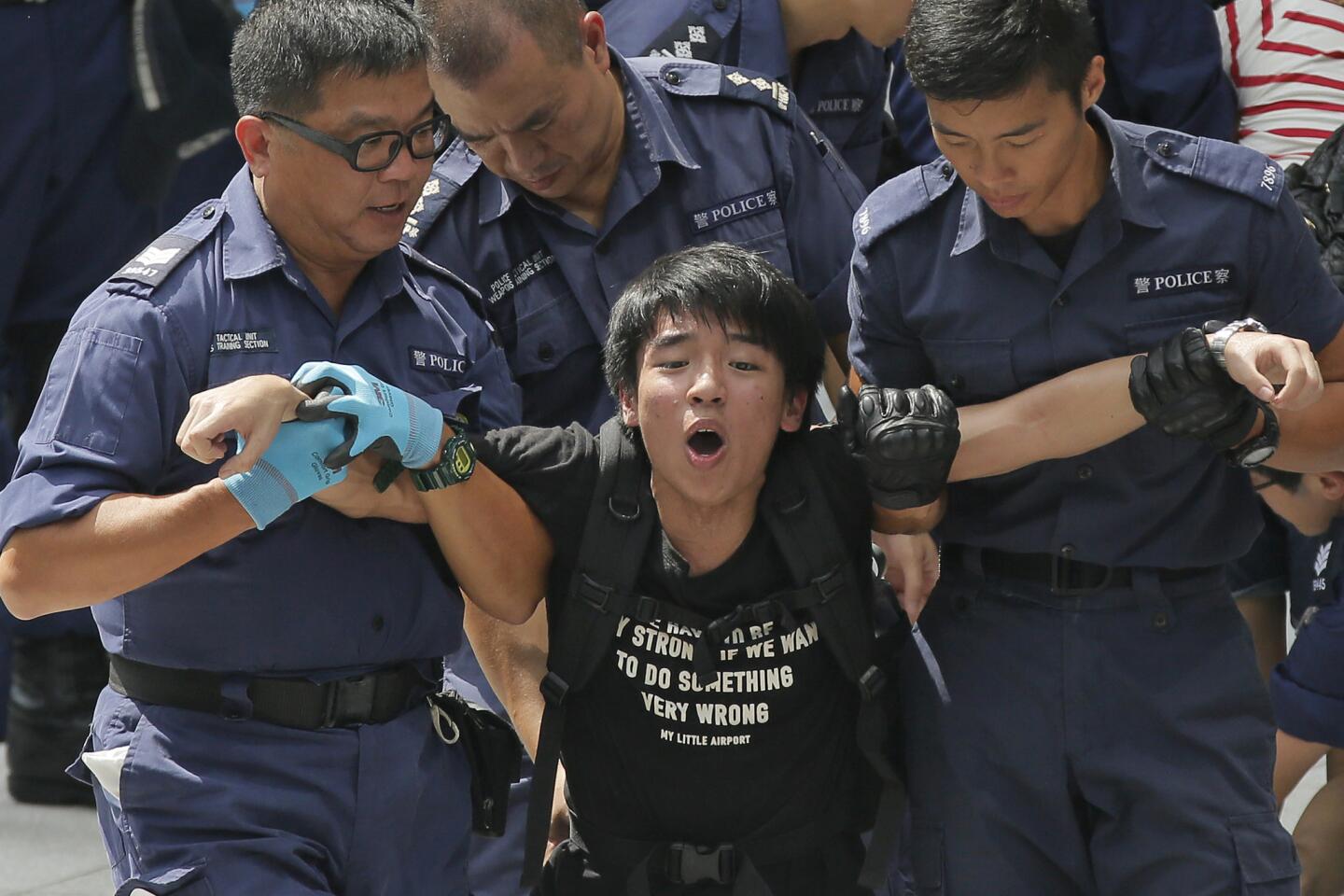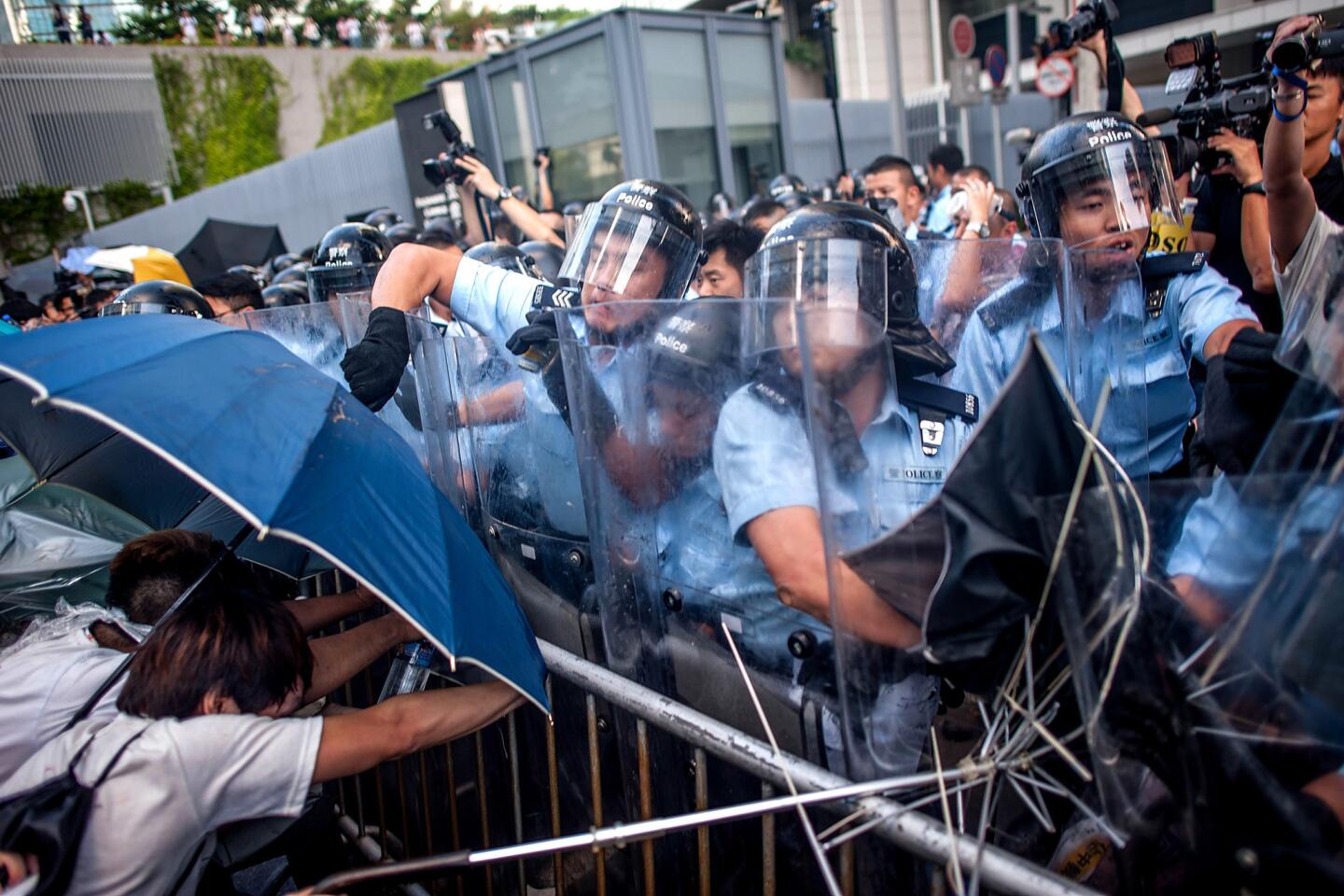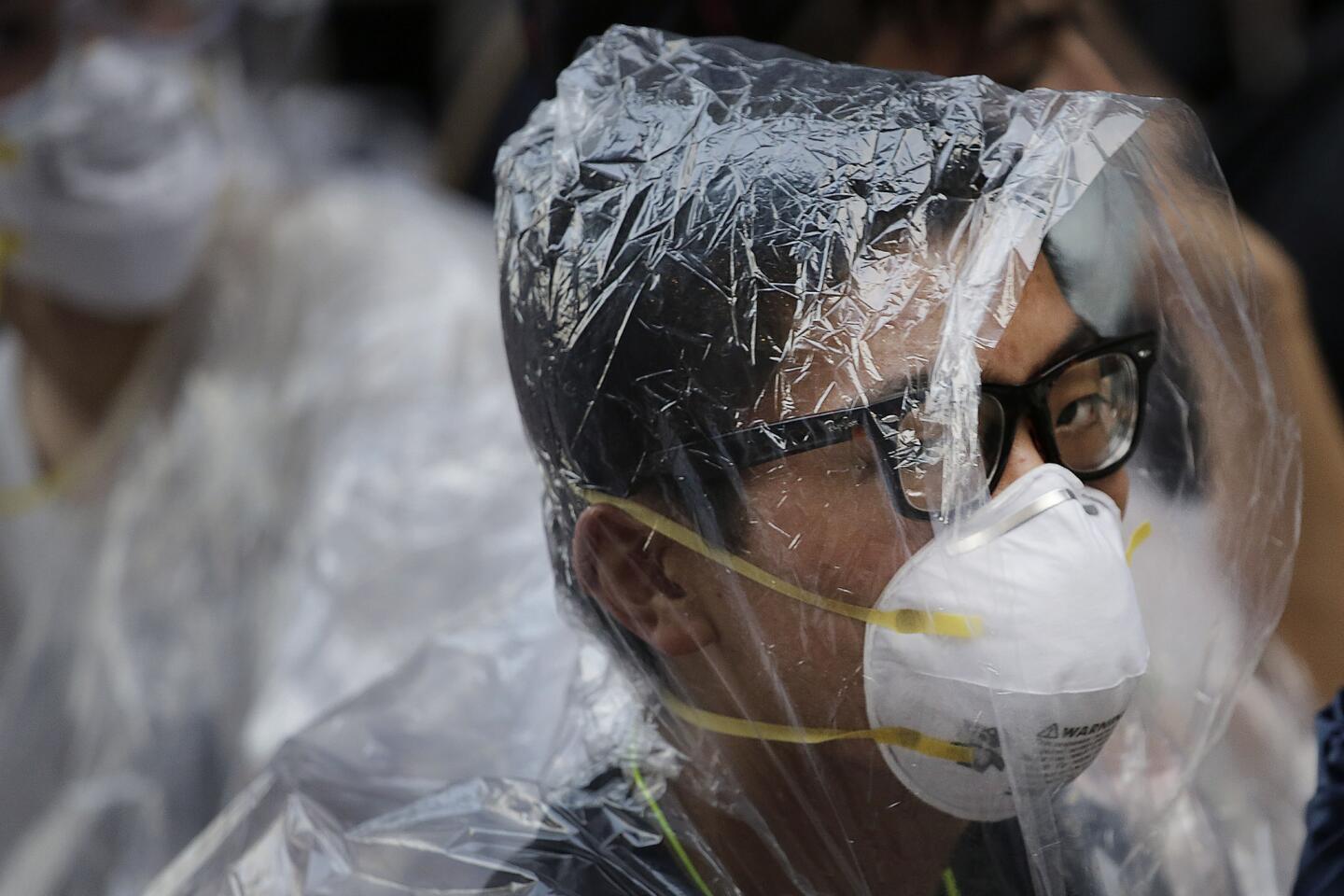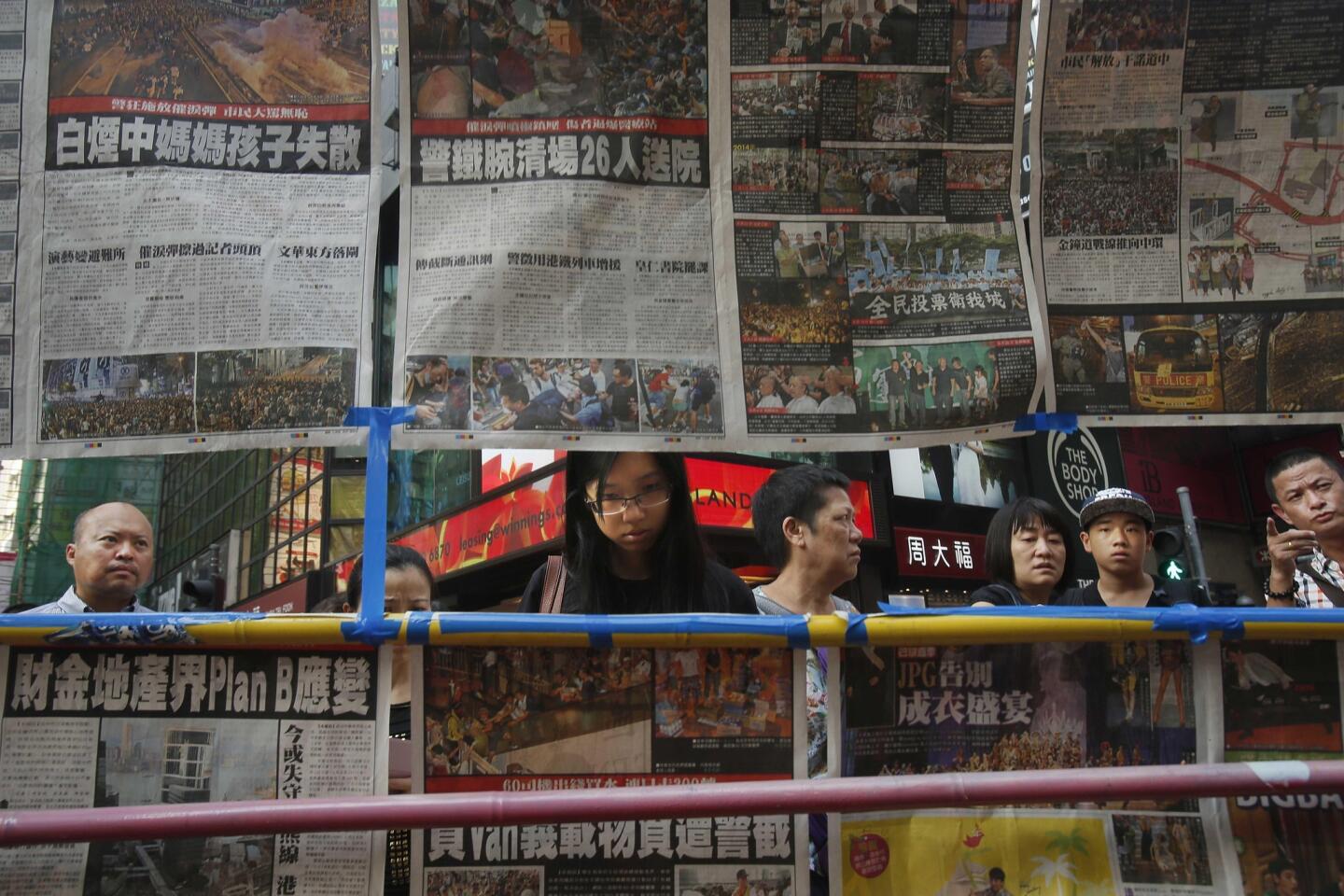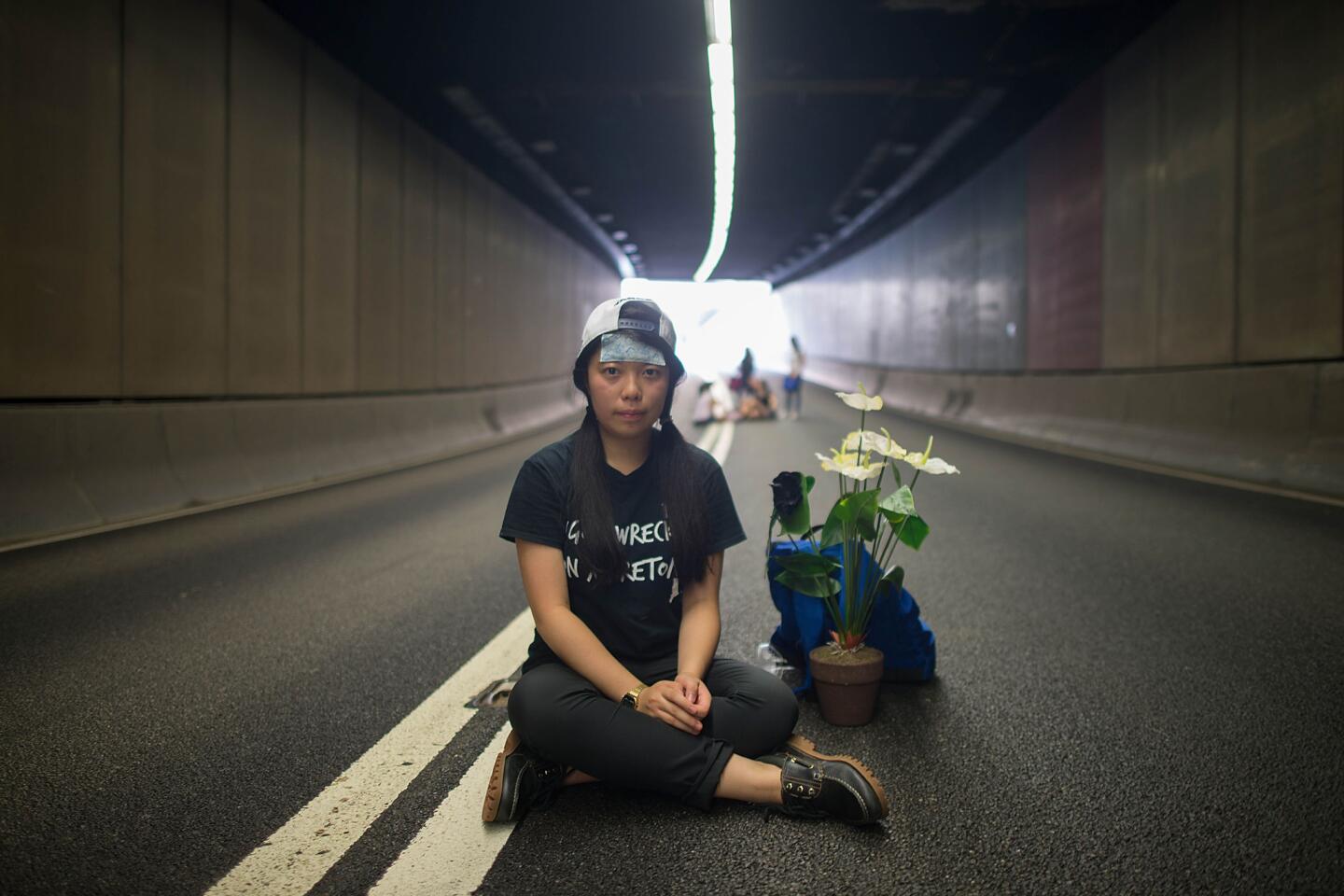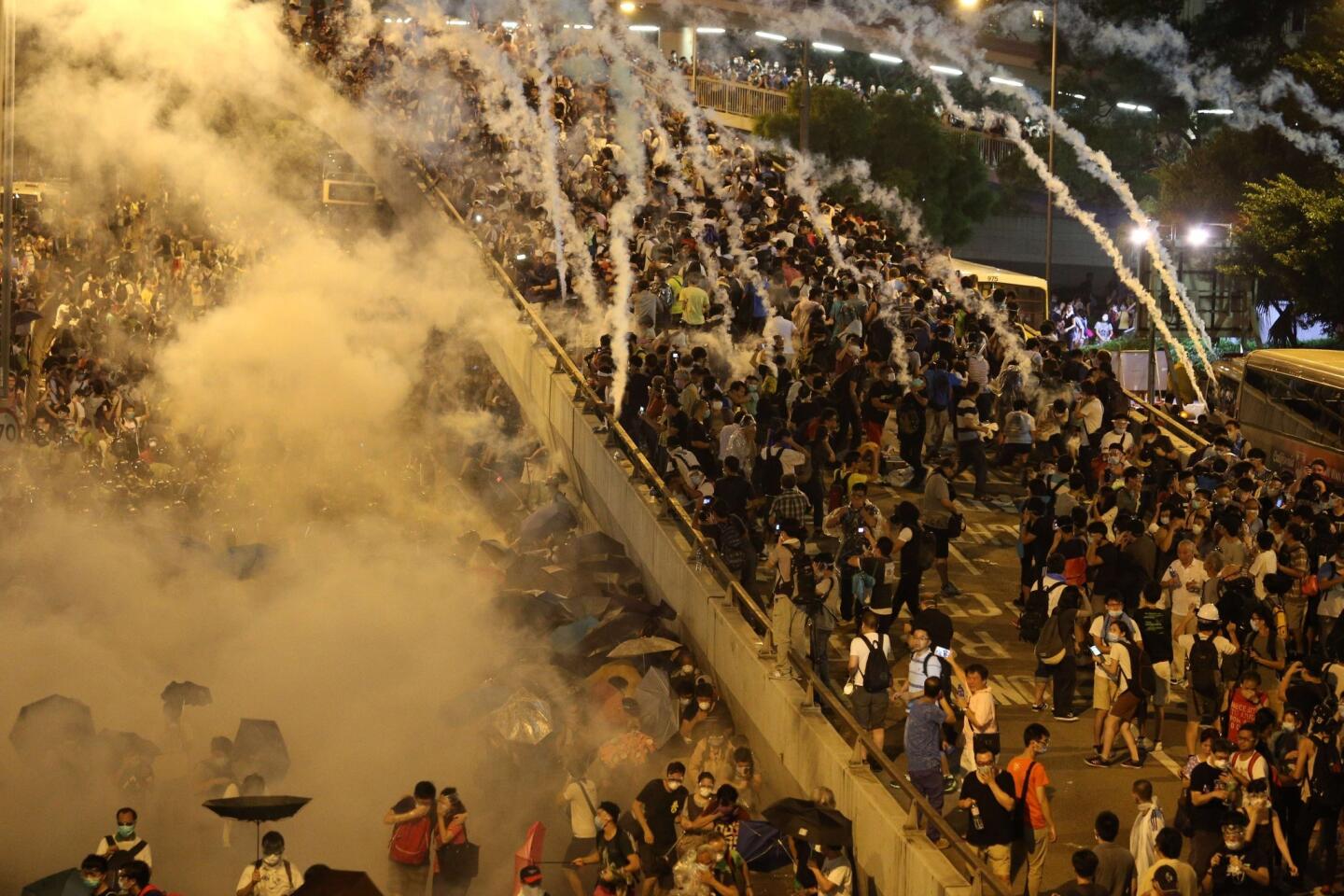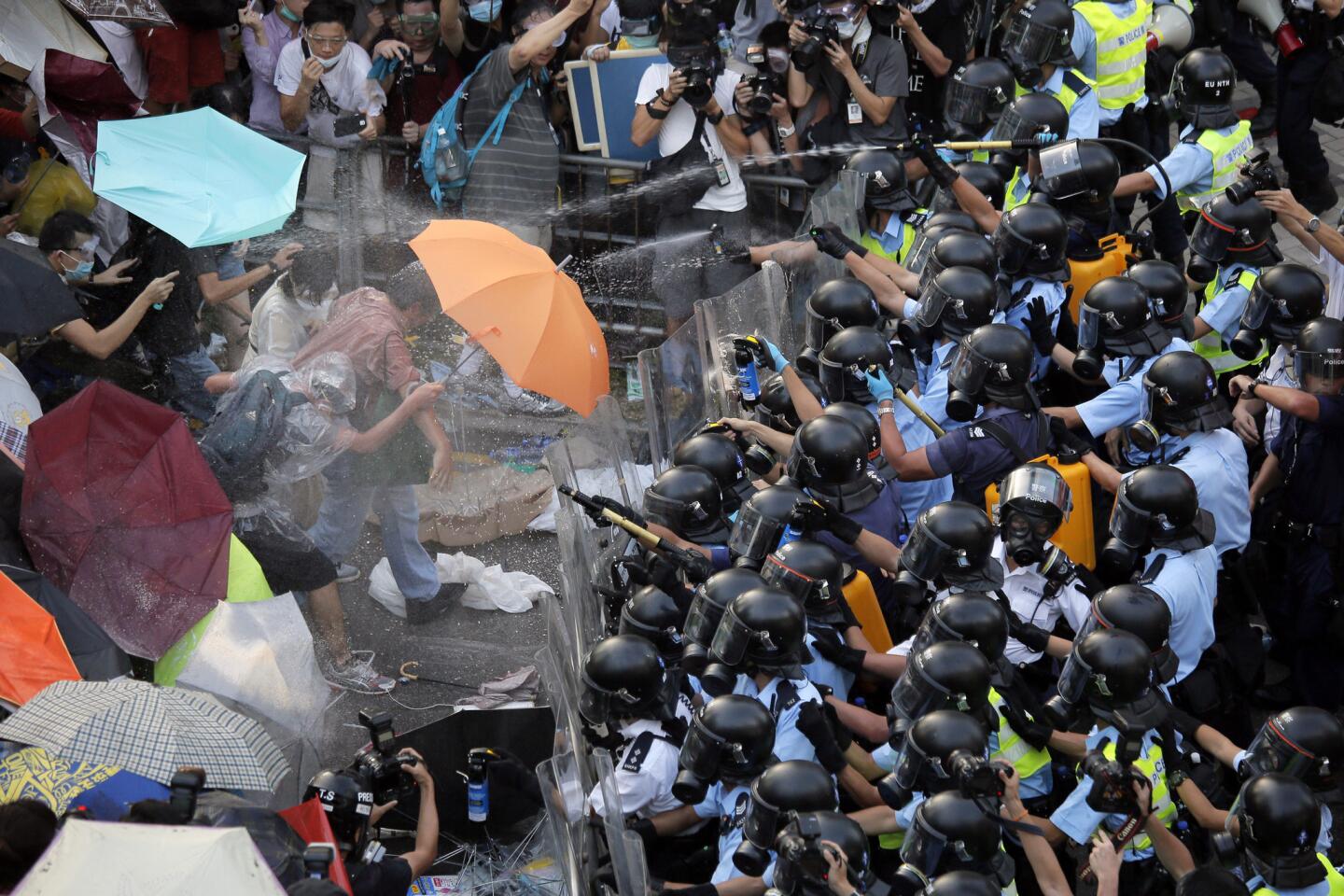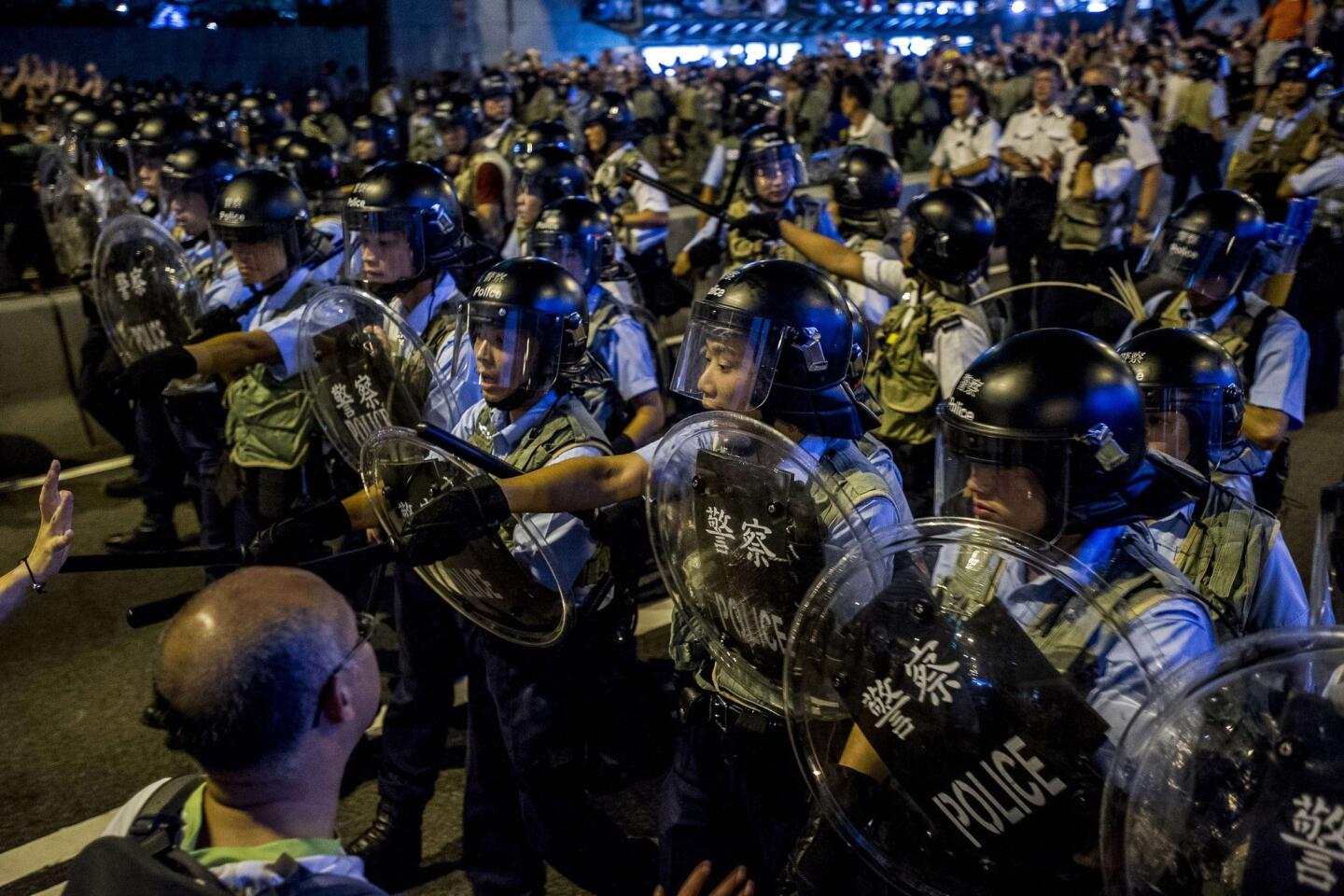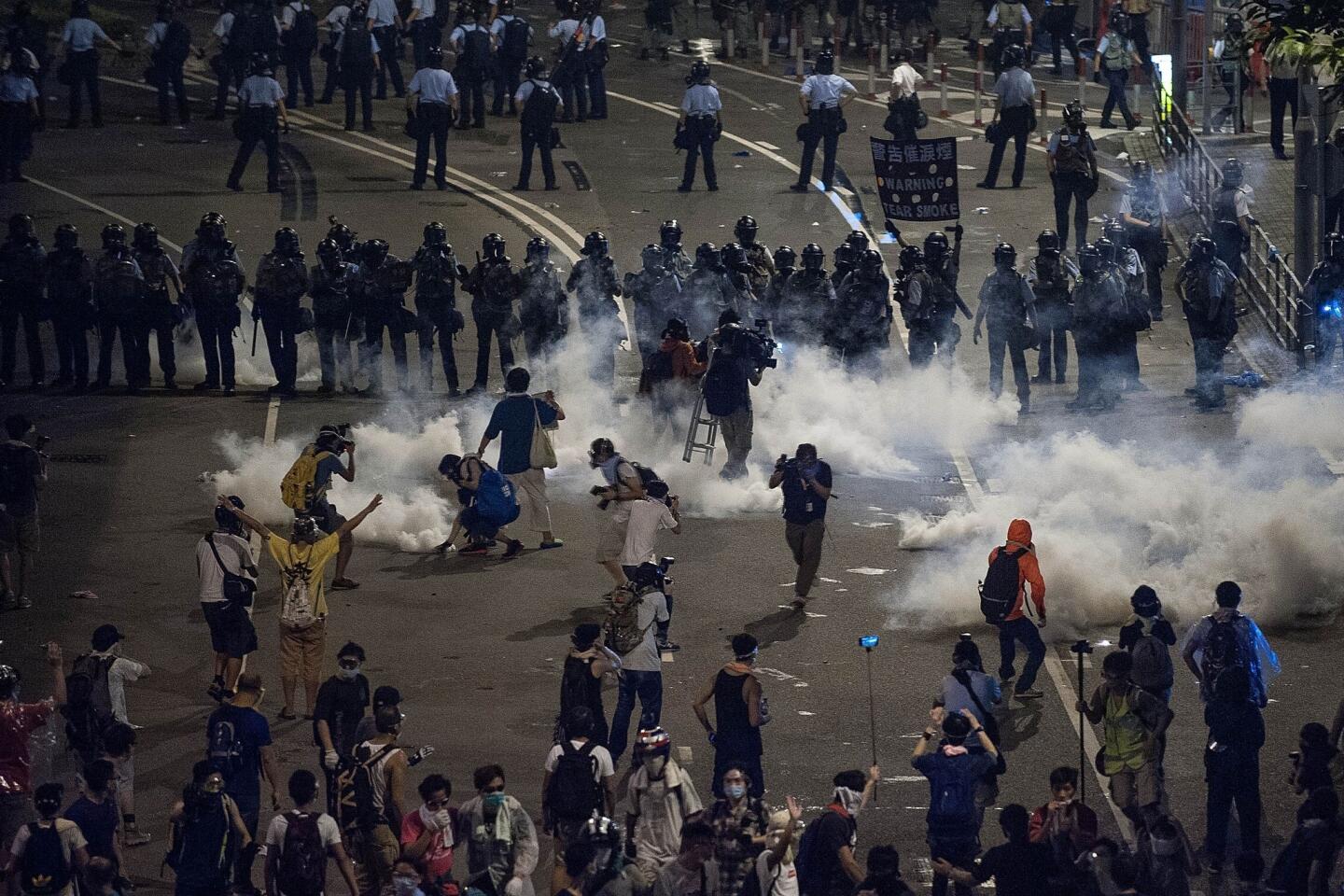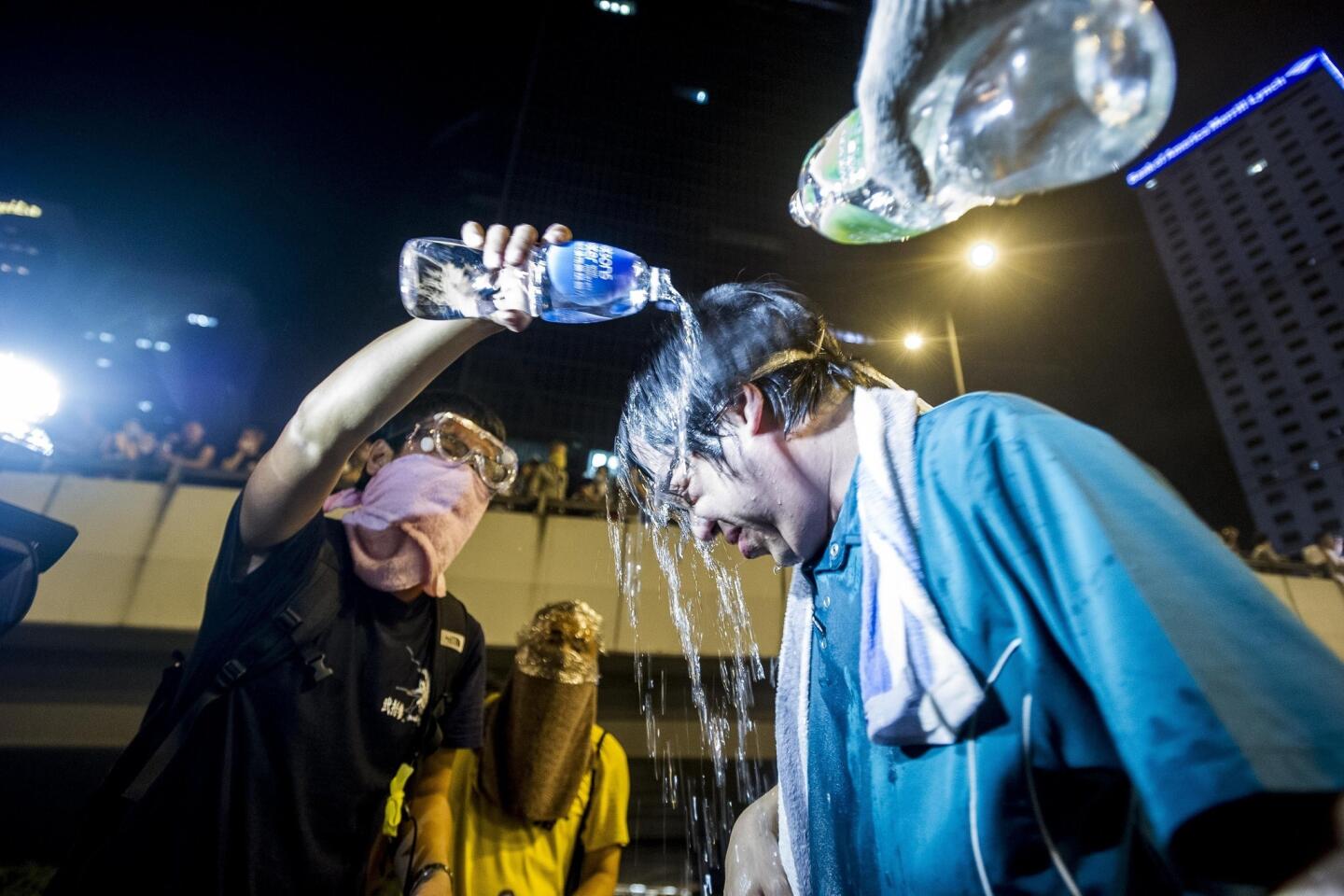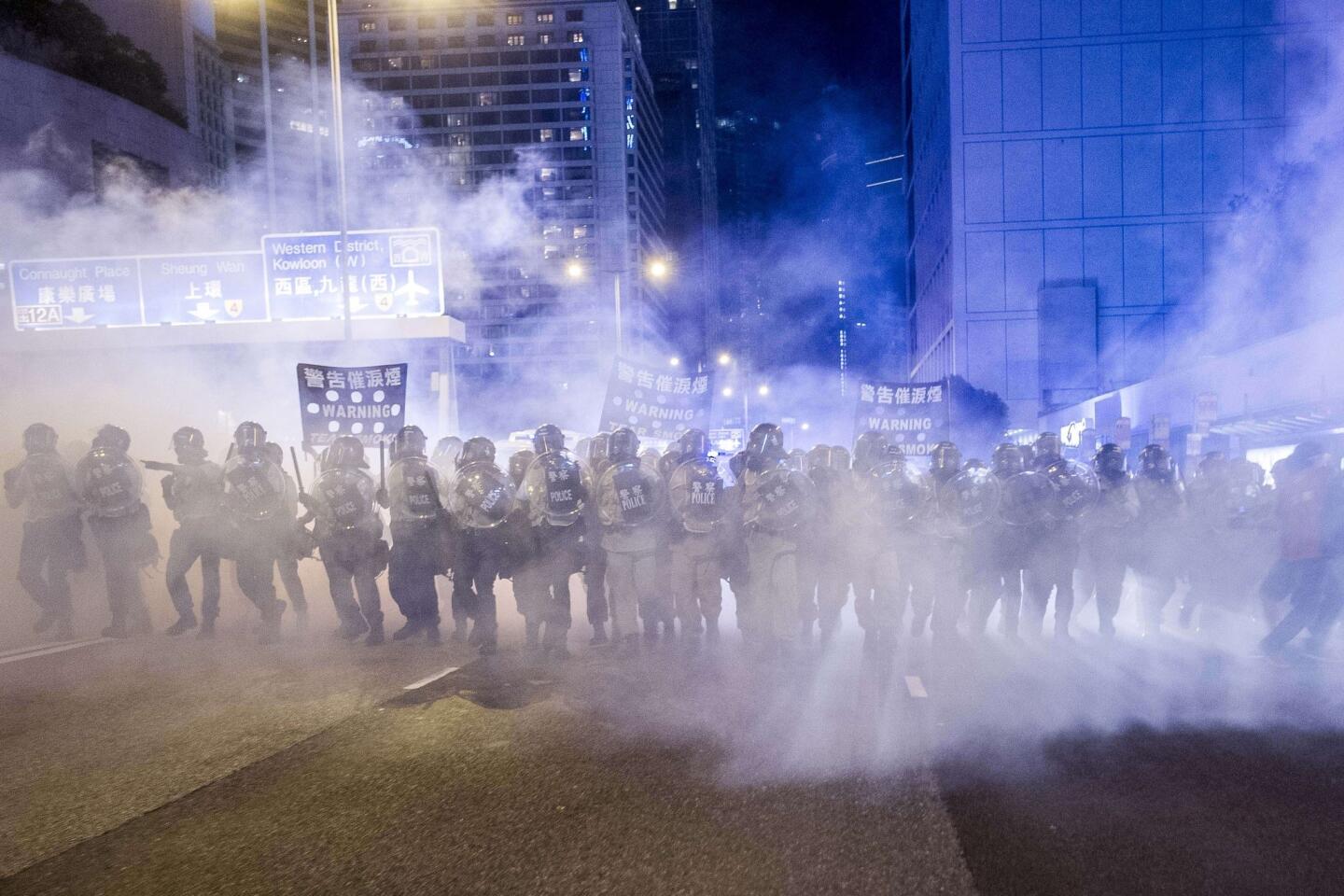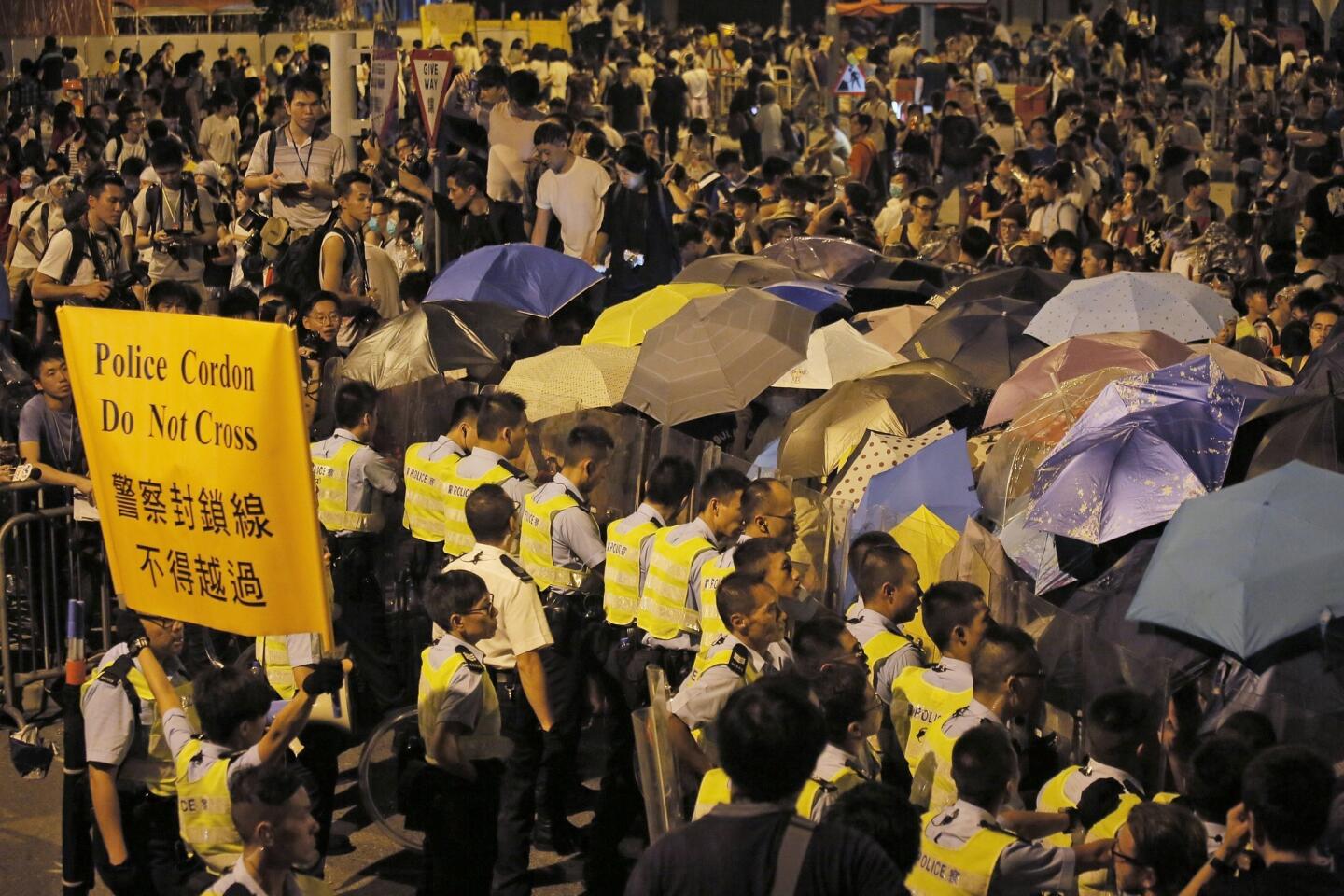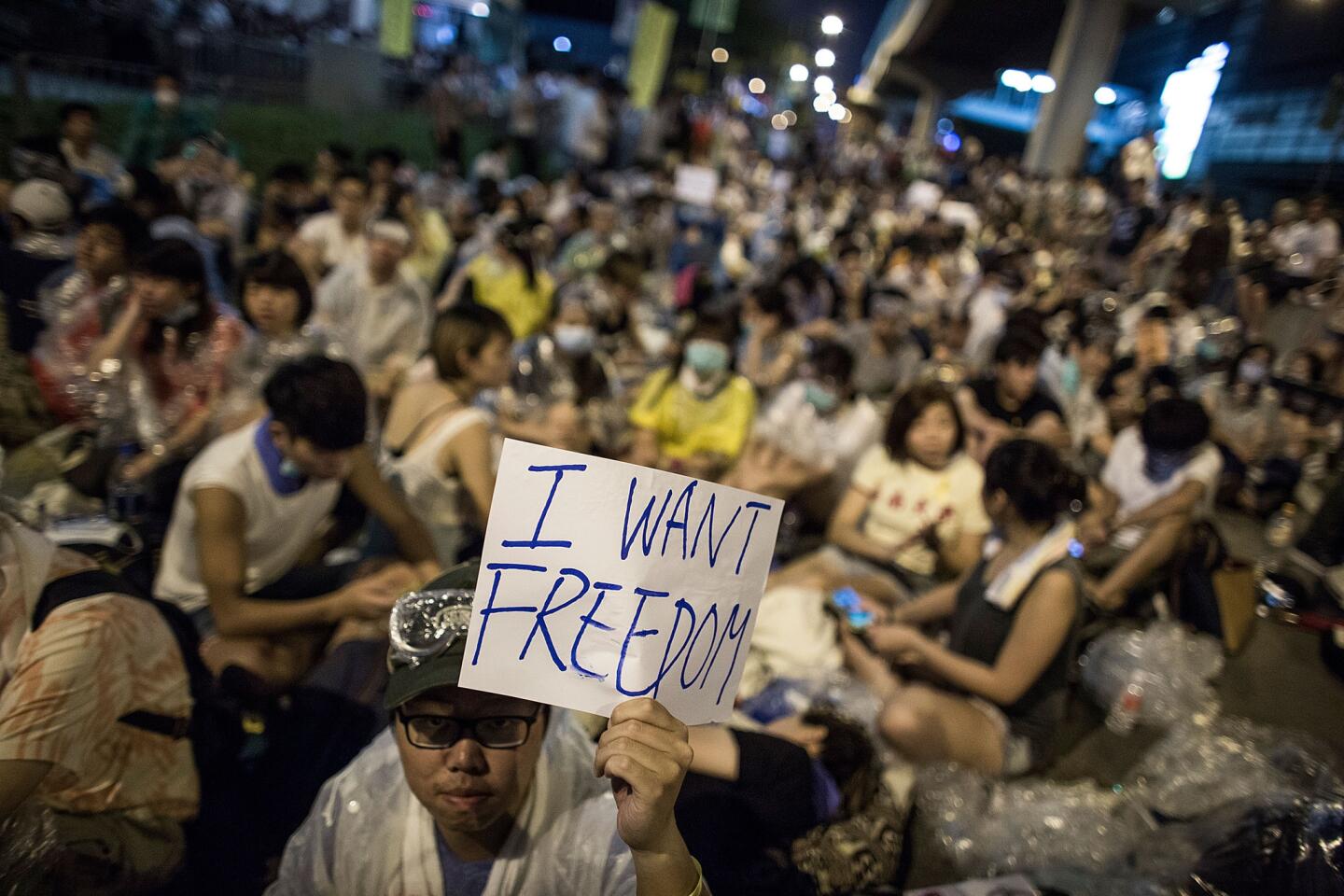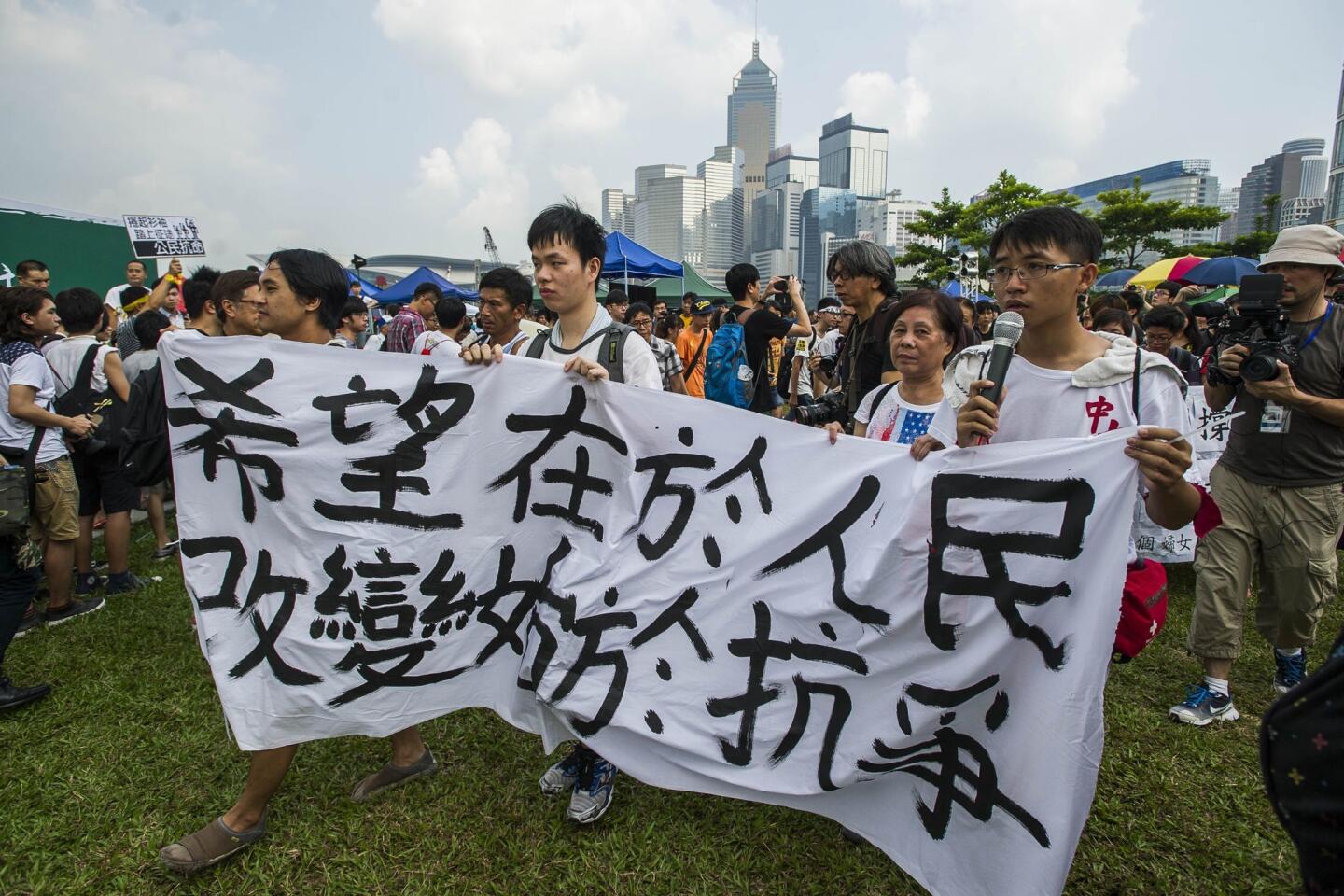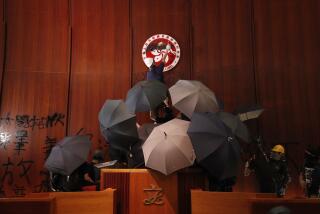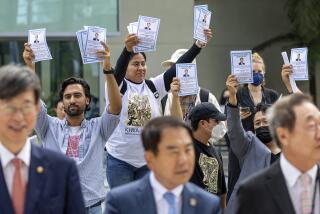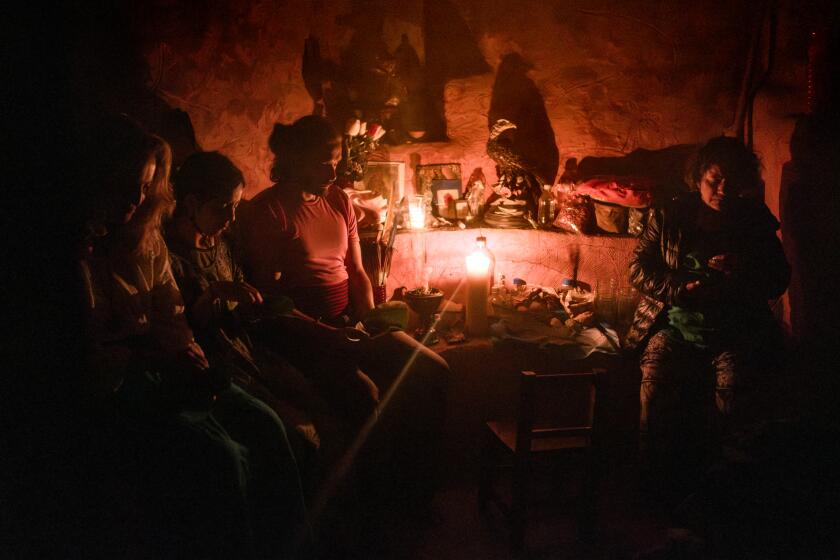Hong Kong merchants losing patience with protesters
If commerce is the lifeblood of this fast-dealing metropolis, Ben Pui was having little of it Saturday idling behind his glass shop counter filled with exotic medicinal herbs.
“Business is down 90%,” said Pui, whose pharmacy is directly across from one of the most heated protest sites, a densely packed neighborhood known as Mong Kok. “It’s just crazy. A lot of stores could close. The protesters aren’t being rational. They should go stay at the government offices.”
As demonstrations for democratic reforms reached their seventh day, Hong Kong’s business community is finding it increasingly hard to stomach the widespread disruptions.
The Hang Seng Index saw its steepest decline since March last week. Banks closed branches near demonstration sites. And luxury retailers were starved for mainland Chinese tourists, who have been prevented by nervous leaders in Beijing from visiting Hong Kong during one of the territory’s prime holiday seasons.
A Hong Kong-based economist at ANZ Banking Co., an Australian and New Zealand lender, estimated sales at luxury stores were down 70% since the holiday started Oct. 1 – amounting to a loss of $285 million.
The Hong Kong Federation of Restaurants and Related Trades estimated business would drop 30% over the holiday, according to news reports.
High-end hotels near the primary protest sites on Hong Kong Island are also experiencing disruptions. The Upper House, an ultra-trendy boutique hotel in the business district Admiralty, canceled its anniversary party Wednesday, deciding it was “prudent to have as few people in the area as possible,” according to an email sent to guests.
On Friday, Hong Kong’s financial secretary, John Tsang, called for the demonstrations to end, saying any prolonged unrest could result in “permanent damage” to the city’s economy.
That was of little consequence to many protesters in Mong Kok on Saturday, many of whom were still smarting from clashes a day earlier with opponents, an often menacing band of middle-aged men who were shown to have ties to criminal gangs known as triads, according to police.
“I understand the inconvenience this is causing the shops, but we’re trying to get a direct response from the government. Until they do that, we’ll stay here,” said Mattson Yeung, a 21-year-old communications major at Hong Kong Baptist University, who wore a construction helmet and stationed himself in a blocked intersection ordinarily bustling with traffic.
On three corners of the intersection were branches for Citibank, HSBC and Shanghai Commercial Bank. All were shuttered behind metal gates.
Hong Kong’s embattled Chief Executive Leung Chun-ying called for talks between students and members of his administration Thursday. But the meeting was ditched after students accused the government of failing to protect them from violent opponents Friday in Mong Kok.
The protesters, consisting largely of high school and college students, have been calling for Leung’s resignation. The unrest was sparked by the announcement that Beijing would vet all candidates for chief executive instead of giving residents greater say.
But the spillover of anger is also driven by longstanding grievances, not the least of which is the belief that Beijing is stifling Hong Kong’s separate identity and flooding the city with speculative money that has skyrocketed housing prices and made it harder for ordinary residents to get by.
Resentment toward mainlanders has continued to grow. In Mong Kok on Saturday, democracy demonstrators demanded that their hecklers produce Hong Kong identification cards, suspecting many came from across the border.
Shouting matches between the two sides, punctuated by profanity, erupted throughout the day next to barricades erected by the protesters.
“You don’t have to work? You have money to blow,” an enraged middle-aged woman shouted to demonstrators.
Fresh-faced students, many carrying neon-colored backpacks and wearing high-top sneakers, coached one another not to argue and to avoid confrontation.
“Just ignore them,” one student said under a tarp where supplies such as bottled water and bread vied for space with exhausted protesters. One sat amid the chaos and read her textbook – “Introduction to Financial Accounting.”
Unlike Friday, there was a noticeable police presence at the scene to defuse tension at the barricades.
Still, many protesters felt they were at the mercy of mobs intent on driving the occupiers out.
“I’m really scared,” said Ruben Chan, 30, an IT worker. “I don’t believe the police are doing enough.”
Follow @dhpierson for news from Hong Kong.
More to Read
Sign up for Essential California
The most important California stories and recommendations in your inbox every morning.
You may occasionally receive promotional content from the Los Angeles Times.
